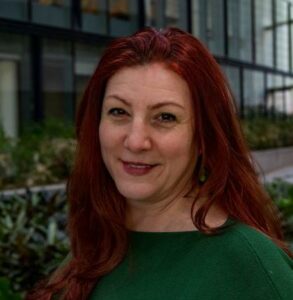
European Innovation Council
Dr. Alina Maria Tomoiaga is a chemist and materials scientist with a strong interdisciplinary background in biomedical research, pharmaceutical development, and European innovation policy. As Policy Advisor at the European Innovation Council, she works closely with EIC Programme Managers for Health Biotechnology and Medical Devices to shape breakthrough-driven innovation strategies. In this role, she supports the translation of frontier research into high-impact technologies and viable business opportunities. With prior leadership experience in pharmaceutical quality control, she has guided multiple products through regulatory approval. Her scientific work has focused on nanomedicine and targeted drug delivery systems. Dr. Tomoiaga brings together hands-on R&D experience, regulatory expertise, and innovation policy insight to foster Europe’s health tech ecosystem. She is an advocate for cross-sector collaboration and evidence-based decision-making in support of public health and brain research.
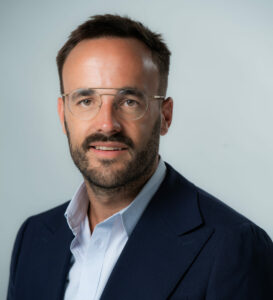
Capricorn Partners
Antoine is investment director at Capricorn Partners, where he has spent the past five years focusing on digital health and medtech investments. Within this function, he serves as a director on the boards of several portfolio companies such as Neotiv, Bingli etc. Prior to joining Capricorn Partners, he was a venture manager at a pre-seed accelerator program, supporting early-stage digital healthcare start-ups. Earlier in his career, he gained experience in the medical 3D printing and digital health sectors as a business developer and commercial manager.
Antoine holds a Master of Science in Bioscience Engineering and a PhD in Biomedicine from KU Leuven, as well as a master’s degree in general management from Vlerick Business School.

International Bureau for Epilepsy
Hello! I’m Donna and I joined the International Bureau for Epilepsy [IBE] as Chief Executive Officer in January 2022! Although my qualifications are in journalism, I have spent my whole career working in non-profit organisations, serving people living with neurological disorders. Directly prior to joining IBE, I worked as Executive Director for the European Federation of Neurological Associations, where I also served as a board member of the European Brain Council. Since joining IBE I have been actively involved in shaping and implementing our new strategic direction, with a focus on bringing lived experience to the centre of our organisation. With our growing team, I am excited about the new flagship projects and initiatives we are rolling-out to serve and support our chapters, and epilepsy advocates, worldwide. The role I now enjoy at IBE builds on my previous experience, but has offered new and exciting opportunities for me to connect with inspiring people from across the world, and to get involved in global awareness raising, capacity building and policy advocacy for epilepsy. I also continue to engage with the wider neurology community in my role as Chair of the OneNeurology Global Partnership; positioning IBE as a leader in this field.

Professor of Psychiatry at the University of Hertfordshire, and a Consultant Psychiatrist at Hertfordshire Partnership University NHS Foundation Trust
Naomi Anne Fineberg is Professor of Psychiatry at the University of Hertfordshire, and a Consultant Psychiatrist at Hertfordshire Partnership University NHS Foundation Trust. She is the National Clinical Lead of the NHS England Severe OCD and BDD Services, Co-Chair of the World Psychiatric Association Anxiety & Obsessive-Compulsive Disorders Scientific Section, Secretary of the International College of Obsessive-Compulsive Spectrum Disorders and Scientific Coordinator of the Horizon Europe Network for Problematic Usage of the Internet.
Professor Fineberg has a substantial track record in the investigation of the neurobiology and treatment of obsessive-compulsive disorders and behavioural addiction including problematic usage of the Internet. She has coauthored several international clinical guidelines. She is Editor in Chief of Comprehensive Psychiatry.

Co-founder and CEO, 21 Impact Labs
Brian is a global entrepreneur in health, blockchain, mobile and internet-based software and health service businesses. He has raised hundreds of millions of dollars in private equity funding for companies he has co-founded and led the purchase and sale of several enterprises. Brian is currently the CEO and co-founder of 21 Impact Labs, which is pioneering the future of brain health via the xponetiq app and therapeutics. Brian also is a founding steward of Cerebrum DAO, a tokenized community funded and governed network that is funding cutting edge therapeutics to advance brain health and prevent and cure neurodegenerative diseases.
Brian also serves as the Executive Chairman for Asian Urgent Care Development, which is the controlling joint venture partner with FastMed with exclusive rights to commercialize the FastMed Healthcare brand via an innovative new technology-enabled primary care membership primary health service across Greater China. Formerly, Brian served as co-founder and managing director of Pacific Springboard, which secured the exclusive rights to the FastMed Healthcare and Topgolf brands for the Greater China and pan-Asian markets, co-founder and COO of privately-held Moxie Software and co-founder and CEO of iMark.com, which was acquired for $340 million by a publicly traded software company. Brian is a passionate advocate for inclusion awareness and education. He served as a board member of Trinity Episcopal School of Austin and The Rise School of Austin, an inclusion based early childhood school. Brian is currently a member of the Entrepreneurship@Cornell Advisory Council at Cornell University.
He holds a BS in Engineering from Cornell University and an MBA from Harvard Business School.
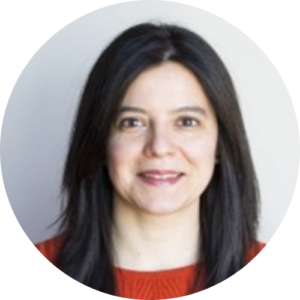
Educational Neuroscientist, National Institute of Education, Nanyang Technological University
Astrid Schmied is an Educational Neuroscientist with the Science of Learning in Education Center at the National Institute of Education, Nanyang Technological University, Singapore. She works at the intersection of neuroscience, psychology, and education to optimize the teaching and learning process across the lifespan. In addition, Astrid studies the global evolution of Educational Neuroscience and focuses on the translation and impact of this research to academic and non-academic audiences. Since global advocacy is at the heart of her personal and professional aspirations, she engages in programs that promote education and science policy, public science, and scientific outreach. Astrid has conducted research at governmental offices, schools and universities, and non-profits. Her pedagogical practices and investigations have expanded from K-12 to university students to older adults, including interventions in socially vulnerable spaces and minorities in different countries.
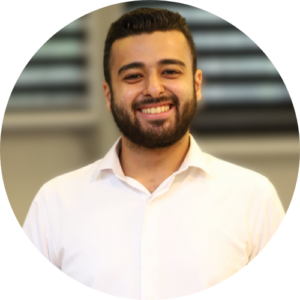
Founder, Neurochem Lab
Abdulrahman Abou Dahesh is a Fulbright scholar pursuing his graduate studies in Neuroscience at The University of Texas at Dallas. He is dedicated to communicating science and making neuroscience education accessible to the public.
As the founder of Neurochem Lab, an edtech startup, Abdulrahman makes neuroscience engaging and relatable for elementary and middle school students, adding a layer of storytelling and gamification. The objective of this immersive educational experience is to promote emotional intelligence, healthy lifestyle habits, and increased science literacy among students through understanding the biological mechanisms of their brains and bodies.
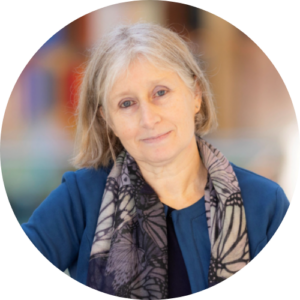
Head of School of Public Health, UCC & Chief Scientist, National Suicide Research Foundation, Ireland, University College Cork
Professor Ella Arensman is Head of the School of Public Health, Professor of Public Mental Health with the School of Public Health, College of Medicine and Health and Chief Scientist with the National Suicide Research Foundation, University College Cork. She is Vice President of the European Alliance Against Depression and past President of the International Association for Suicide Prevention. She is Visiting Professor with the Australian Institute for Suicide Research and Prevention, Griffith University, Brisbane, and an advisor for WHO. Over more than 35 years, she has initiated numerous national and international interdisciplinary research consortia on suicide and self-harm surveillance, intervention and prevention programmes for suicide, self-harm, depression, anxiety, and excess mortality among young people and adults with mental health conditions. Examples of ongoing research consortia and programmes include: Self-Harm Assessment and Management of Self-Harm in General Hospitals (SAMAGH), Adapting and Implementing EAAD´s Best Practice Model to Improve Depression Care and Prevent Suicidal Behaviour in Europe (EAAD-Best), Early Identification of Suicide and Self-Harm Risk and Comorbid Mental and Physical Disorders: An Interdisciplinary Training, Research and Intervention Programme (MHAINTAIN), Mental Health Promotion and Intervention in Occupational Settings” (MENTUPP), COVID-19: Estimating the burden of symptomatic disease in the community and the impact of public health measures on physical, mental and social wellbeing and and Promoting Positive Mental and Physical Health at Work in a Changing Environment: A Multi-level Approach (PROSPERH).

Serial Entrepreneur, CEO & Founder, Research & Innovation Management Services bvba
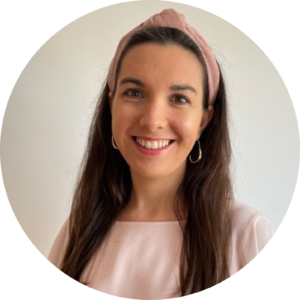
President, MiGRA Portugal
Madalena Plácido is the co-founder and president of MiGRA Portugal, the Portuguese Migraine and Headache Patients’ Association, since 2019. As a lifelong migraine sufferer, she is deeply committed to patient advocacy and advancing research on migraine.
She is a PhD candidate in Epidemiology and Public Health at the National School of Public Health, focusing her research on the effectiveness and implementation of workplace interventions for managing migraine. Her broader research interests include patient-reported outcome measures, health services research, and outcomes research.
With a master degree in pharmacy, Madalena has extensive experience in real-world evidence, health economics, and outcomes research. She previously worked in consulting and currently is the Senior Real-World Evidence and Outcomes Research Manager at Promptly Health, a start-up dedicated to providing comprehensive real-world evidence solutions through the collection, harmonization, and analysis of health data using the Observational Medical Outcomes Partnership Common Data Model (OMOP-CDM).
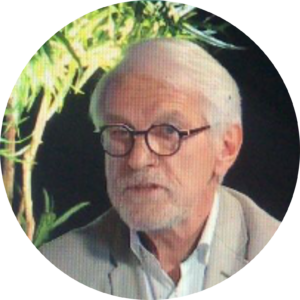
Neurologist, Liège University; Secretary and Founding Past President, Belgian Brain Council
Jean Schoenen, M.D., is a prominent figure in the field of neurology and headache research, renowned for his extensive contributions to understanding and treating migraine and other headaches, as well as for his pioneering work in regeneration in the adult central nervous system. With a distinguished career spanning decade, Schoenen’s expertise encompasses both clinical and animal research, with a particular focus on the pathophysiology and therapy of migraine, as well as the study of spinal cord injury models and the effects of cellular and molecular therapies.
As the Honorary Full Professor at the University of Liège since 2013, Schoenen continues to lead the Headache Research Unit, furthering advancements in headache disorders. Additionally, he serves as the Founder and Past President, Secretary of the Belgian Brain Council, demonstrating his commitment to interdisciplinary collaboration and advocacy in neuroscience.
Schoenen’s dedication to academic excellence is reflected in his numerous scientific prizes and honors, including the Cumings Lecture, Harold G. Wolff Award, and Lifetime Achievement Award from the European Headache Federation. He has also made significant contributions to scientific literature, with over 500 peer-reviewed articles, several books, and numerous book chapters to his name.
With an impressive H index and citations, Schoenen’s research has had a profound impact on the field of neurology, particularly in understanding the genetic basis of migraine and exploring novel treatment modalities. His pioneering work continues to inspire and inform future generations of researchers and clinicians in the quest to alleviate the burden of migraine and other debilitating headaches.
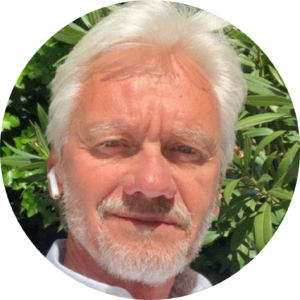
Former Vice President of Quality and Regulatory, Medtronic Europe; Life-Sciences RA & QA, Waypoint LS.
Life Sciences expert in Regulatory Affairs and Quality Assurance systems with focus on solutions underpinning Healthcare strategies and Business objectives.
Member of the Board of Directors and Treasurer of the European Forum of Good Clinical Practice, Belgium. Member of the Board of Directors of SimpliNext, Switzerland. Member of the Supervisory Board of DIABETER, a group of Diabetes clinics in the Netherlands, and chair of the SupervisoryF Board of NOK/Best Care Foundation, a group of Obesity Clinics in the Netherlands.
From July 2004 – May 2019, he was Vice President EMEA Regulatory Affairs & Quality at Medtronic International Trading, Switzerland, and founder and President of Medtronic BioPharma Europe. He retired from Medtronic in May 2019.
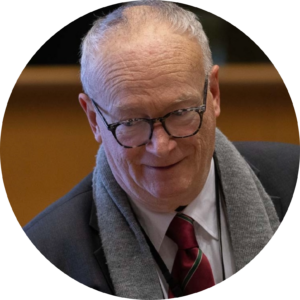
Director, Belgian Brain Council
Roland Pochet, PhD, honorary Professor at the Faculty of medicine, Université Libre de Bruxelles, performed research on an animal model of Amyotrophic Lateral Sclerosis. From 2010-today, Secretaty General of the Belgian Brain Council and recently President of the new European Brain Data Hub.
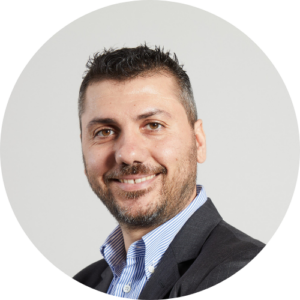
Sr. Product Manager MedTech, InSilicoTrials
Dr Vincenzo Carbone is Senior R&I Project Manager at InSilicoTrials. Vincenzo joined InSilicoTrials after obtaining his PhD in Biomechanical Engineering at the University of Twente in 2016. His activities focus on the use of computational solutions for the development and regulatory evaluation of new medical products and personalized treatments, in order to reduce costs and time of the research and development process. Vincenzo is contributing author of the recently published open book:Toward Good Simulation Practice: Best Practices for the Use of Computational Modelling and Simulation in the Regulatory Process of Biomedical Products | SpringerLink
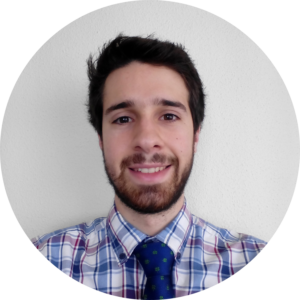
BRAINTEASER Clinical Partner, Servicio Madrileño de Salud (SERMAS)
I was born in Pamplona, Spain, where I pursued my medical degree at the University of Navarra. I later completed my neurology specialty at the Gregorio Marañón University Hospital in 2023. I’m working since then in the Multiple Sclerosis Unit at this same hospital and have been actively involved in the BRAINTEASER Project.
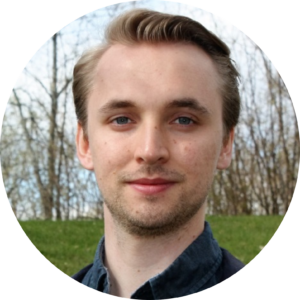
Research Coordinator, Oslo University Hospital; AI-Mind Project Coordinator
Vebjørn works as a project coordinator for the EU-project AI-Mind. His relevant experience include work as a technician in the EEG/ERP laboratory at the Department of Neuropsychiatry and Psychosomatic Medicine at Oslo University Hospital. He holds a bachelor’s degree in Molecular Biology from the University of Oslo, and is currently a student of medicine.

Senior Innovation Project Manager, ECHAlliance
Natalia holds a University degree in Economics and Trade at University of Rome “La Sapienza” (Italy). Since graduating from university, she has been working for over 20 years in an international context dealing with funds raising, mostly as part of complex ICT based research and development projects.
Natalia has acquired a detailed knowledge of the functioning of the European Commission funding programmes, having the chance to follow a large number of project ideas belonging to different research and scientist groups that were seeking for funding or co-funding opportunities. In this framework, her principal responsibilities were related to the project proposals preparation and management, and in case of funding award, these responsibilities extended to the administrative and content management of the project, including but not limited to activities concerning contractual, budgeting, costing, reporting, first and second level auditing, results’ dissemination and project organisational issues.
In order to efficiently cope with the complexity and diversity of project activities and different disciplines, her work is always executed in close collaboration with the sector’s experts that participate in the project.
Exposure to the above professional experiences have given Natalia the possibility of acquiring organisational and interpersonal skills to manage the teamwork in an efficient and effective way and have enhanced her communication and problems solving capacities.
Natalia has also delivered a number of training courses on the subjects of the European Union policies and European Commission funding programmes, deepening the technicalities related to the operational preparation and management of co-funded projects.
In the last years, she has acquired a thorough knowledge in the management of projects, enabled and supported by innovative ICT solutions, focussed on eHealth, chronicity management and frailty prevention.
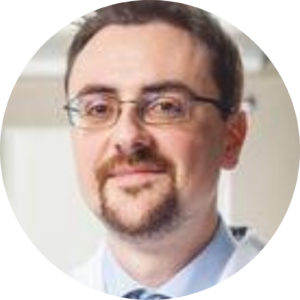
Assistant Professor, Department of Neuroscience – University of Turin; BRAINTEASER Clinical Partner
Umberto Manera is Assistant Professor and Neurologist at the “Rita Levi Montalcini” Department of Neuroscience of the University of Turin and the Neurology Unit of “Città della Salute e della Scienza di Torino”. He has been working at the ALS Center in Turin since 2010. He mainly deals with clinical research on ALS. His scientific activity includes several topics, including neuroepidemiology, the evaluation of disease phenotypes and respiratory function assessment measures, biomarkers, neuroimaging. He also works as a sub-investigator for various randomized clinical trials. He is currently co-author of more than 110 scientific articles published in international peer-reviewed journals.
The Turin ALS Centre (CRESLA Torino) is part of the “Rita Levi Montalcini” Department of Neuroscience of the University of Turin (UNITO). UNITO is one of the largest Italian universities, with about 80.000 students, 3.900 employees, 1.800 post-graduate and post-doctoral research fellows. The Turin ALS Centre is also part of the Medical Department of Neuroscience and Mental Health of the Città della Salute e della Scienza di Torino (City of Health and Science of Turin), Neurology 1 Unit. The Turin ALS centre represents the Regional ALS Reference Centre for Piemonte Region and currently has more than 300 ALS patients followed up. The centre is involved in clinical research (clinical trials, genetics, deep phenotyping) and basic research in collaboration with several laboratories in Italy and Europe.

CEO, European Multiple Sclerosis Platform (EMSP)
Elisabeth Kasilingam serves as the Chief Executive Officer of the European Multiple Sclerosis Platform (EMSP) and Vice President of the European Patients’ Forum. In these roles, she is dedicated to enhancing the quality of life for patients with multiple sclerosis (MS) and other chronic conditions through the implementation of effective, results-driven projects, policy campaigns, and advocacy initiatives.
With over 15 years of experience in the European political arena, Ms. Kasilingam has a strong background in human rights, with a specialization in the health and social sectors. At EMSP, she has been instrumental in developing capacity-building programs to support national MS patient organizations and spearheading health and social advocacy campaigns. She is also deeply committed to fostering the development of young patient advocates through various engagement activities.
Ms. Kasilingam has led the European MS Platform’s efforts on the MS Barometer and related surveys, building robust evidence to influence policy makers and drive positive changes that impact the lives of people affected by MS. Her leadership and vision continue to propel initiatives that aim to improve the well-being and empowerment of the MS community.
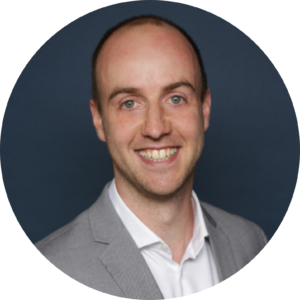
Business Development Manager EMEA, Garmin Health
Dr. Leon Brudy works as B2B Business Development Manager at Garmin Health where he is in charge of data-driven partnerships in research and clinical trials for the regions of Europe, Middle East, Africa and India. Previously he worked as research associate at the German Heart Center Munich and the Faculty of Sport and Health Sciences at the Technical University of Munich where he completed clinical work as part of his dissertation on physical activity, quality of life and cardiovascular risk in patients with congenital heart disease. Additionally, he holds academic degrees in Health Science, Political Science, and Economics.
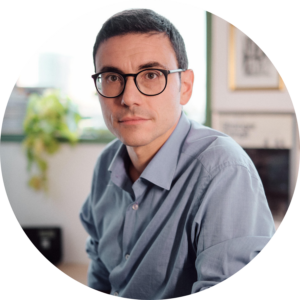
Professor, University of Padua; HEREDITARY Project Coordinator
A computer engineer, Gianmaria Silvello is professor at Department of Information Engineering of the University of Padua. His research spans knowledge management, intelligent information systems, information access, algorithmic fairness, digital libraries and data provenance and citation. He has published 200+ scientific papers in national and international venues. He is the coordinator of the Horizon Europe project HEREDITARY (HetERogeneous sEmantic Data integratIon for the guT-bRain interplaY, 2024-2027). More information at https://www.dei.unipd.it/~silvello/
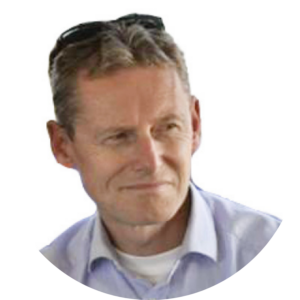
Senior Industry Scientific Director, European Institute for Innovation through Health Data (i~HD)
Mats Sundgren, PhD, MSc, is a distinguished authority in Health Data Strategy, serving both industry and academia. With an impressive career spanning over 37 years in the pharmaceutical industry, Mats has made significant contributions across various domains, including Discovery, Development, Manufacturing, IT R&D, Patents, Clinical Science, and Data Science & AI. His work places him at the forefront of technological innovation in the field.
In 2022, following an illustrious 12-year tenure as the global integration lead for Electronic Health Records (EHR) services at AstraZeneca, Mats expanded his professional endeavors. He now holds several key roles: Senior Industry Scientific Director and co-founder of the i~HD (European Institute for Innovation through Health Data), Executive Strategic Advisor for IgniteData, which develops a system-agnostic EHR-to-EDC solution for clinical trials, and Chairman of the Board of the Research Foundation IMIT (Institute of Managing Innovation and Technology). IMIT includes prominent institutions such as Chalmers University of Technology, Royal Institute of Technology, Lund University of Technology, and Stockholm School of Business. Additionally, he serves as a Board Member of the Center for Health Governance at Gothenburg University. In July 2024, Mats assumed the role of Scientific Adviser for IOMED, a company specializing in AI-powered technology for healthcare data activation.
Mats has an extensive portfolio of work, including over 70 publications, books, and patents in Life Science, Economics, and Social Science. His areas of expertise encompass Health Data Science & AI, Clinical Science, Clinical Trials Management, Business Modelling, Innovation & Creativity Management, and Device Development.
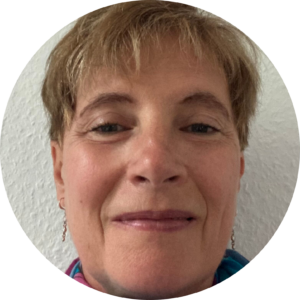
Principal Scientific Manager, Innovative Health Initiative (IHI)
Elisabetta is Italian born and trained in Italy and UK as a doctor in Veterinary Medicine, MSc in Animal Laboratory Science and PhD in Molecular Neurobiology. Elisabetta worked thereafter in UK, Sweden, Denmark, and Belgium. Elisabetta has a solid scientific background with a focus on translational research and neuroscience acquired working for more than a decade in prestigious academic institutions in UK and Scandinavia. Elisabetta has also large experience in R&I and in scientific management in the private sector, acquired via a series of positions at increasing level of responsibility in the pharma industry and in biotech in Denmark. From 2010 to present Elisabetta has worked at the Innovative Medicine Initiative first, and then at its successor the Innovative Health Initiative (IHI), where currently she is the most senior scientific staff, responsible for the planning and coordination of the organization’s scientific priorities as well as for the strategic area neuroscience. Elisabetta has a deep and long experience in alliance management, stakeholder engagement across the public-private spectrum, fostering and setting up of public-private partnerships, management of complex and large portfolio of international research consortia and on funding mechanisms. processes and administration of European Research programmes.
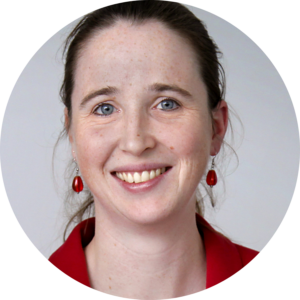
Professor, University of Liège, KU Leuven, VPHi; Research & Technology Working Group Leader, Avicenna Alliance
Liesbet Geris is professor in Biomechanics and Computational Tissue Engineering at the University of Liège and KU Leuven (Belgium). Her research focusses on the development of multi-scale and multi-physics in silico and in vitro models. Together with her team and their clinical and industrial collaborators, she uses these models to investigate the etiology of skeletal pathologies, design cell-based treatments and optimize their manufacturing processes. She has received 1 ERC starting grant and 2 ERC consolidator grants to finance her research and has won a number of young investigator and research awards. She is the executive director of the VPH Institute, advocating the use of in silico modeling in healthcare through liaising with the clinical community, European Commission and Parliament, regulatory agencies and patients. She is the coordinator of the EDITH CSA, generating the roadmap for the Virtual Human Twin. Besides her research work, she is often invited to give public lectures on the challenges of interdisciplinarity in research, women in academia and digital healthcare.
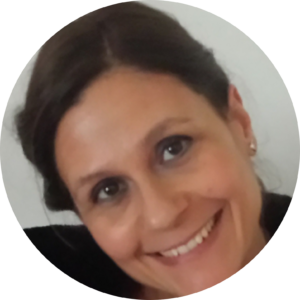
Prof, PhD, University of Padova, Information Engineering Department; BRAINTEASER Scientific Coordinator
Barbara Di Camillo is Full Professor in Computer Science at the Department of Information Engineering, University of Padova. Her research activity is centered in the development and application of advanced modeling, data mining and machine learning methods for high-throughput biological data analysis in the field of bioinformatics and predictive modeling in medicine. She has also a great expertise in biological network inference using differential equation based models, Boolean and Bayesian Networks for deterministic and stochastic modeling of disease progression, transcriptional networks and signaling pathways. She has been PI and WP leader of projects funded by the EU, Italy and industry and has received numerous awards in particular in the field of reverse engineering and machine learning applied to clinical and biological data.

Project Adviser, European Health and Digital Executive Agency (HaDEA)
Claudia Prettner works as Project Adviser in the health research unit of the European Health and Digital Executive Agency (HaDEA). Her expertise lies in EU tech and AI policy, with more than a decade of experience in the field. Claudia previously worked as Policy Officer at the European Commission, where she developed policy strategies on digital health, ePrivacy and online disinformation. She also worked in the NGO sector, in particular at Amnesty International, as Legal Adviser on technology, data protection and human rights. Claudia holds degrees in law and business law from Austria and Spain.

Child and Adolescent Psychiatrist and Psychotherapist, Central Institute of Mental Health
Alexander Häge is the Deputy Medical Director of the Clinic for Child and Adolescent Psychiatry and Psychotherapy at the Central Institute of Mental Health in Mannheim, Germany. He is a Specialist in Child and Adolescent Psychiatry and Psychotherapy and leads the Research Group Paediatric Psychopharmacology as well as the Research Group ADHD in Childhood and Adolescence. His research focuses on clinical trials, particularly on the efficacy, tolerability, and safety of new pharmacological treatment approaches.
He has been involved in various research activities funded by the pharmaceutical industry and the German Federal Ministry of Education and Research (BMBF). He has predominantly participated in EU-funded research projects, including the EU-FP7/H2020 projects: Attention Deficit Hyperactivity Disorder Drugs Use Chronic Effects (ADDUCE), Pediatric European Risperidone Studies (PERS), Suicidality: Treatment Occurring in Pediatrics (STOP), Translational Approaches to Compulsivity Disorders (TACTICS), Effects of Nutrition and Lifestyle on Impulsive, Compulsive, and Externalizing Behaviors (Eat2beNice), and Prevention and Remediation of Insulin Multimorbidity in Europe (PRIME).
In 2019, his research group was awarded the AGNP Research Prize for the SEMA Project (Subjective Experience and Medication Adherence in Adolescents with Psychiatric Disorders). Alexander Häge contributed to the development of the S3 Guidelines on ADHD and Conduct Disorder and is a member of the AGNP Pediatric Psychopharmacology Working Group and the European Network for Hyperkinetic Disorders (EUNETHYDIS).
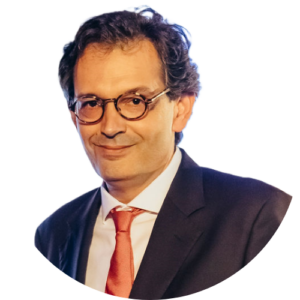
Chair, Guideline Production Group, European Academy of Neurology (EAN)
João Costa born in 1974 and graduated in Medicine from Faculdade de Medicina, Universidade Lisboa (FMUL) in 1998. He specializes in Neurology, Clinical Neurophysiology, and Clinical Pharmacology.
He holds a Master’s degree in Neurosciences from FMUL, a Master’s degree in Neurological
Electrodiagnosis from the University of Barcelona, a Doctor of Medicine in Neurology from FMUL, and a Postdoctoral Research Fellowship from CIBERNED (Spain Ministry of Health).
He is currently engaged in various activities, including serving as Associate Professor of Clinical Pharmacology and Therapeutics at FMUL, Director of the Medical Education Department at FMUL, and as external senior scientific consultant for IQVIA. He is also Principal Investigator at the Clinical Pharmacology Unit in the Institute of Molecular Medicine and works as a Medical Doctor at Hospital da Luz in Lisbon.
Furthermore, he is a Board Member of the Education working group at the European Association for Clinical Pharmacology and Therapeutics, chairs the Guidelines production group at the European Academy Neurology, and is the President of the Clinical Pharmacology College at the Portuguese General Medical Council. He is also a member of the National Pharmacy and Therapeutic Commission as well as the National Council for Drugs Policy.
Throughout his career, as a former Deputy Director of the Center of Evidence-Based Medicine (FMUL), he has worked on over 400 HEOR projects that facilitate the entry of new health technologies into the market.
In his scientific career, he has published over 300 full papers indexed in Medline/Embase (Hindex of 47; more than 8000 citations). His most relevant awards include the Scientific Prize of the University of Lisbon (2018) and the Bial Medicine Prize (2020). He was listed among Top 2% scientists in the world (2022) according to Stanford University / Elsevier..

Prof. Dr., Amsterdam UMC/VUMC and PsyQ; Chair, Section on Neurodevelopmental Disorders Across the Lifespan, European Psychiatric Association (EPA)
J.J. Sandra Kooij is a psychiatrist and professor on Adult ADHD at Amsterdam University Medical Center/VUmc, the Netherlands.
She is also head of the Dutch Expertise Center Adult ADHD at PsyQ, founder and president of the DIVA Foundation that distributes the Diagnostic Interview for ADHD in adults (DIVA-5) in currently 30 languages (www.divacenter.eu), as well as chair of the European Network Adult ADHD (www.eunetworkadultadhd.com) and of the section Neurodevelopmental Disorders at EPA.
She cofounded in 2023 the Head Heart Hormones Network (www.h3-netwerk.nl) on women with ADHD, hormonal fluctuations and health, and in 2024 the international online education platform ADHD Powerbank www.adhdpowerbank.com.
In 2002 she started a specialised department for adult patients with ADHD and the Dutch Expertise Center adult ADHD at PsyQ, the Hague, where she still works. She is involved in education, lecturing, publishing books and research papers, as well as webinars and podcasts. Her research focuses on ADHD in women, ADHD in elderly, and on ADHD, sleep and health.
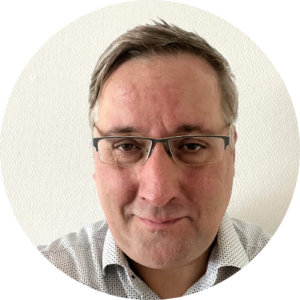
Director / Chief Scientific Officer, Drug Target ID B.V.
In 2002, Geert Poelmans graduated with the University Degree of Doctor of Medicine (M.D.) at the Catholic University of Leuven, Belgium. In 2011, he defended his Ph.D. thesis entitled: “Genes and protein networks for neurodevelopmental disorders” at Radboud University, The Netherlands, and was awarded the Ph.D. degree cum laude. Geert has extensive training and work/research experience in child and adolescent psychiatry/adult psychiatry and clinical/molecular genetics. Currently, he is Director and Chief Scientific Officer at Drug Target ID B.V., a spin-out company of Radboud University that he founded in 2012 and that is devoted to building so-called ‘molecular landscapes’ of complex genetic disorders – which includes identifying and further developing novel biomarkers and drug targets within these landscapes – in collaboration with academic and industrial partners. In addition, Geert is Research Associate at the Department of Cognitive Neuroscience, Radboud University Medical Center, The Netherlands.
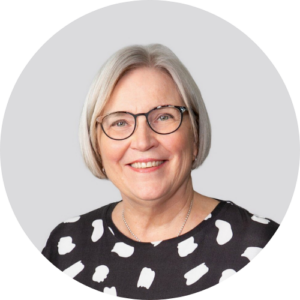
President, ADHD Europe
I’m currently working as Executive Director for the Finland ADHD Association – the only ADHD organisation in Finland. This is my 12th year. I have been also a board member of ADHD Europe from 2021 and President of ADHD Europe from 2023.
ADHD Europe is the voice of ADHD people. We advocate on behalf of people with ADHD for their rights to have equal access to diagnosis and treatment and serve as a platform for our member organisations to share information and collaborate on research to help the European community.
My work at the ADHD Europe has included the lead of communication, ADHD Awareness month, Masterclasses on research projects, Attending Resausch meetings , Broadcasting, Living Library in Leiden etc.
Before I started working for the ADHD Association, I worked for 3 years as Executive Director in a nursing home for elderly people.
Earlier I worked for over 10 years as a director for child protection, several kindergartens, and international children´s home and rehabilitation unit. I have a strong experience of human resources.
For over thirty years I have been working with disability questions. Nowadays I put a lot of effort to affect laws and join discussions which take place in our society. A lot of things are going on and it´s important to be a part of discussions.
I have also a good team at our organization which can support me with my work.
I see that ADHD Europe has a very important role for adhd-people and their relatives. I have learned a lot of European countries and how neuropsychiatric matters are different in Europe from country to country.
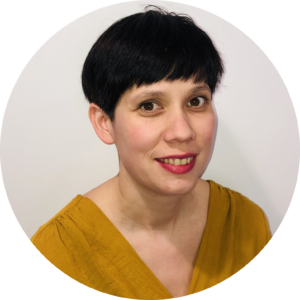
Director for Research, Alzheimer Europe
Ange joined Alzheimer Europe in 2019 as a Project Officer, beginning a new role as Director for Research in October 2023. Ange obtained her PhD in vascular biology at the University in Cambridge, graduating in 2008. Prior to joining Alzheimer Europe, Ange worked as an assistant professor at the University of Glasgow, leading translational research projects on vascular diseases associated with ageing. As Director for Research, Ange leads stakeholder engagement and communication workstreams for a number of EU-funded research projects spanning topics from dementia detection to data sharing and artificial intelligence. She also represents the organisation in steering committees and Working Parties at EU level.

Professor, Örebro University; TIMESPAN Coordinator
Henrik Larsson is Professor of Psychiatric Epidemiology at Örebro University and affiliated researcher at Karolinska Institutet, Sweden. The overall objective of his research team’s work is to understand how genes and environment influence mental health problems across the life span, to understand the interplay between mental and physical health, to map developmental trajectories and consequences of mental health across the lifespan and to identify the benefits and risks associated with pharmacological treatment interventions. His team use large real-world data sets, such as national health registers, the Swedish twin register and clinical cohorts. Henrik has (co-) authored about 500 original peer-reviewed papers and has a broad international research and clinical network. He is editor-in-chief of JCPP Advances and scientific coordinator of the Horizon 2020 project TIMESPAN https://timespan.eu

Professor, Head of Department, Psychiatrist, University Hospital Frankfurt
Andreas Reif is a German Psychiatrist, who received his training at the University Hospital Würzburg, where he also did his residency and later on became Vice Chair. In 2014, he took over the position of Chair of the Department of Psychiatry, Psychosomatic Medicine and Psychotherapy at the University Medical Center Frankfurt, where he is also full professor. Andreas Reif’s clinical and research interests include affective disorders (TRD, bipolar disorder, suicidality) and adult ADHD; his research is translational in nature and revolves around the ideas of precision psychiatry, i.e. identifying the best therapy at the exact time for a given individual patient. He has published more than 650 original papers and reviews, also in the most prestigious journals such a the New England Journal of Medicine, Lancet and Science, and has an h² index of 97. He is an internationally renowned speaker and active in several learned societies, especially the German Psychiatric Association (DGPPN), where he is an executive board member, as well as ECNP, where he is president elect. Also, he is involved in several clinical guidelines and outreach programs.
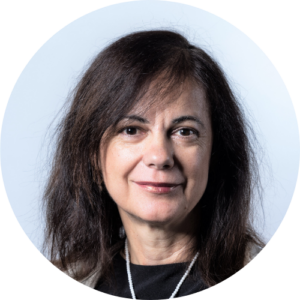
Project Advisor, European Health and Digital Executive Agency (HaDEA)
Marina Koussathana works at the Health Research Unit of the European Health and Digital Executive Agency (HaDEA). The Health Research Unit of HaDEA is responsible for the implementation of Health Cluster of the EU Horizon Europe (HE) and the legacy programme of Horizon2020.
Marina provides advice from application stage to the implementation of EU health research projects and monitors their achievements in research and innovation to generate new knowledge and solutions that could positively impact people’s health and well-being. Her portfolio includes a variety of health research domains, such as obesity prevention, diabetes, brain diseases, infectious diseases, and non-communicable diseases.
Marina has been at the European Institutions since 2009. Throughout her career, she has worked at the European Commission (EC), as policy analyst on EU health and food policies at the Joint Research Centre (JRC), and as policy officer on health threats and health determinants at the Directorate-General for health and food safety (DG SANTE). She has been also policy officer at the European Safety Authority (EFSA), in Parma, engaging with EU partners on scientific cooperation on food risk assessment. Prior to joining the European Institutions, she worked for the Hellenic Food Authority as risk manager.
Marina has been contributing to EU policies on health and food, e.g. on health security, adapting health to climate change, EU Strategy on Nutrition, Overweight, and Obesity-related health issues, COVID-19 response, health technology assessment, crisis management and risk assessment, food safety and food sustainability.
Marina studied chemical engineering at the National Technical University (NTUA), in Athens, and holds a Doctor of Philosophy (PhD) degree in chemical engineering.
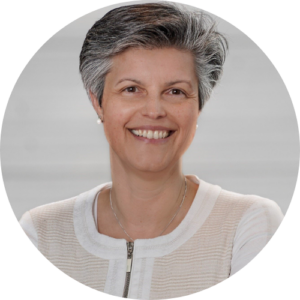
Project Department Head, Radboudumc
Barbara Franke is Professor of Molecular Psychiatry at Radboud University in Nijmegen, The Netherlands. She is the head of the Department of Cognitive Neuroscience at Radboud University Medical Center (Radboudumc) and represents the Radboudumc in the Board of the Donders Institute for Brain, Cognition and Behaviour. Barbara is one of the internationally leading scientists in the field of biological psychiatry; international collaboration and team science are a strong motivator for her. She leads several international consortia in the field of research into psychiatric conditions and their comorbidity, including the Horizon 2020-funded PRIME consortium. She is also a member of the Coordinating Committee of the Psychiatric Genomics Consortium (PGC) and the co-leader of PGC’s ADHD Working Group, a member of the Board of Directors of the International Society for Psychiatric Genetics (ISPG), the founder and leader of the International Multicenter persistent ADHD Collaboration (IMpACT) and the ECNP Network ADHD across the lifespan, and a cofounder of the international ENIGMA Consortium on neuroimaging and brain genetics. She holds honorary professorships at Goethe University in Frankfurt, Germany, and at Aarhus University in Denmark.
Barbara is a molecular biologist and geneticist by training. She studies the biological contribution to neurodevelopmental conditions, especially ADHD, and their mental and somatic comorbidities in children and adults. Beyond gene-finding, she uses complementary approaches (bioinformatics, cell-based and small animal models, and neuroimaging genetics) to map biological pathways from gene to behaviour and disease. It is her goal to make biological information useful for improving the diagnosis, monitoring, and treatment of psychiatric conditions and to contribute to their re-conceptualization.
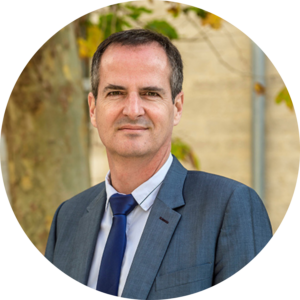
President, Non-Pharmacological Intervention Society
Gregory Ninot has been a full professor at the University of Montpellier since 2008, specializing in the evaluation of non-pharmacological interventions (NPIs) in the healthcare field. He was recruited to the university as lecturer in 1999. He has a complete double degree in sports science and psychology applied to health. He has been associated Director of the Desbrest Institute of Epidemiology and Public health (INSERM, University of Montpellier) since 2021. He has been a research fellow at the Montpellier Cancer Institute since 2018 and has contributed to the research activities of the Montpellier Cancer SIRIC since its inception in 2013 in the fields of cancer prevention and supportive care. He has been a member of the Institut Universitaire de France (IUF) since 2024. In 2011, he founded a collaborative academic platform in Montpellier for participatory research dedicated to NPIs evaluation methodologies, which became an international scientific society in 2021 under the name Non- Pharmacological Intervention Society (NPIS). In 2016, he co-founded the International Behavioural Trials Network (IBTN), an international research network on clinical trials evaluating interventions designed to improve health behaviours. He is an associate professor at the Université du Québec à Montréal (UQAM). He is the author of 14 books and 175 scientific publications, most of which concern the evaluation and implementation of NPIs.
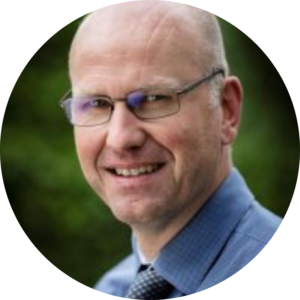
Director Flemish Expert Centre on Dementia Care
Director of the Centre of Expertise on Dementia Flander, Jurn Verschraegen is a registered social nurse who initially worked as a home care nurse where he first experienced what dementia means for those living at home. He gained further expertise in hospital social work. Later, he worked in two residential care centers with specific focus on people with dementia. He is author or co-author of various books about dementia. He serves as a guest lecturer at several (nursing) colleges.

Consultant Therapist, Health and Social Care Lead, UK Dementia Research Institute
Sarah Daniels is an occupational therapist specialising in rehabilitation for people with complex neurological conditions, working within a range of clinical settings. She joined UK Dementia Research Institute Care Research and Technology Centre in 2019. Before that she worked at Imperial College Healthcare NHS trust as a therapy lead for neuro-rehabilitation.
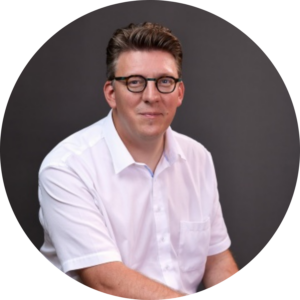
Professor and Geriatric Psychiatrist, UPC-KU Leuven, Mission Lucidity, Belgium
Prof. Dr. Maarten Van Den Bossche is an (elderly) psychiatrist, psychotherapist and doctor of medical sciences. He works within the adult and geriatric psychiatry department of the UPC KU Leuven.
Dr. Van Den Bossche is supervisor at the department for dementia with behavioral or physical problems, Cog k, on campus Kortenberg and responsible for the psychiatric part of the Sleep Center on campus Gasthuisberg. He also supervises the liaison function for geriatrics at UZ Leuven on Campus Pellenberg.
In addition, Maarten Van Den Bossche conducts scientific research into (neuro)psychiatric and neurodegenerative disorders within the field of geriatric psychiatry.
As treasurer, Maarten Van Den Bossche is a member of the executive committee of the Flemish Society for Psychiatry and is a board member of the Foundation Tijdschrift voor Psychiatrie.
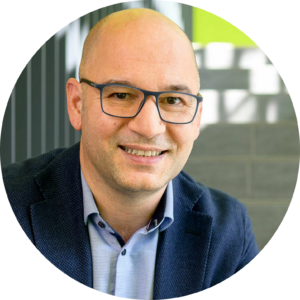
Research Group Leader, Clinical Neurophysiology and Memory, DZNE, Germany, CSO and Co-founder Neotiv
Emrah Düzel has trained as a neurologist in Germany (in Bonn and Magdeburg). He is working as a cognitive neurologist on the functional anatomy of human episodic memory networks, neuromodulatory circuits, their clinical and mechanistic alterations in aging and neurodegeneration and their scope for plasticity. He leads the Institute of Cognitive Neurology and Dementia Research and Memory Clinic at the OvG University Magdeburg. As speaker of the Magdeburg site of the German Center for Neurodegenerative Diseases (DZNE, Helmholtz Society), he supports the implementation and analysis of imaging and cognition measures for early Alzheimer’s disease. He is also a part time group leader at the Institute of Cognitive Neuroscience at the Univ. College London, a fellow of the Max-Planck School of Cognition and co-founder of the digital health start-up neotiv. He is head of the Memory Clinic of the University Clinic Magdeburg. Within the newly founded German Network of Memory Clinics, he coordinates a working group on Digital Health and Telemedicine. Emrah Düzel is speaker of the newly established Collaborative Research Center 1436 “Neural Resources of Cognition”.

Post-Doctoral Researcher, Institut de Cerveau, Paris Brain Institute
I am a CNRS postdoctoral researcher in neuroscience at Lyon Neuroscience Research Center (CRNL). I have an initial training background in engineering and a PhD in psychology. I do multidisciplinary research on characterizing and explaining individual differences of self-regulation (i.e., the control of oneself by oneself) in humans. For this purpose, I use in particular behavioral monitoring in ecological contexts, combined with neuroimaging and machine-learning techniques. My driving force is to build scientific knowledge that could improve people’s health through more personalized prevention, diagnosis and treatment of disorders of behavioral self-regulation. I have a specific interest in behavioral symptoms (such as apathy and disinhibition) observed in neurodegenerative dementias. They constitute a major clinical challenge as they are still poorly understood and treated despite their strong negative impact on patients’ and caregivers’ everyday life.
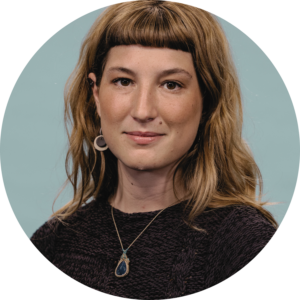
Community Manager, Patient Innovation
Gemma Tria, originally from Barcelona, holds a Bachelor’s degree in Social and Cultural Anthropology from both the Universitat de Barcelona and the Faculty of Social and Human Sciences at Nova de Lisboa. She has completed training in Social Assistance and received specialized instruction in personal assistance for individuals with physical and cognitive disabilities, which deepened her connection to the Independent Living Movement.
Her interests lie in public policies and medical anthropology, focusing on how social factors influence health outcomes and disease experiences. Since early 2023, Gemma has been involved with Patient Innovation, where her work aligns with these interests by valuing the subjective experiences of patients and studying how living with a disease can drive innovation, thereby enriching practical solutions at the intersection of health, community support, and policy development.
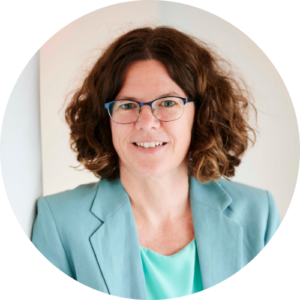
Deputy Director, Health and Environment Alliance
Anne Stauffer is HEAL’s Deputy Director, Strategic Lead. She leads HEAL’s activities on climate change, energy and air quality and provides strategic input for HEAL’s organizational development, advocacy and engagement of stakeholders.
The Health and Environment Alliance (HEAL) is the leading not-for-profit organisation addressing how the environment affects human health in the European Union (EU) and beyond. HEAL’s over 80 member organisations include international, European, national and local groups of health professionals, not-for-profit health insurers, patients, citizens, women, youth, and environmental experts.
Anne has 15+ years experience on environmental, climate and health issues and has led HEAL’s members and partners advocacy on key policy files including the revision of the EU Ambient Air Quality Directive (AAQD), the 7th EU Environmental Action Programme (7 EAP), the National Emissions Commitments Directive (NECD – on air quality), pesticide and biocide reduction efforts, as well as EU climate mitigation and adaptation policies.
Anne also contributes to various EU funded research projects including UBDPolicy on reducing the urban burden of disease, and CATALYSE on climate change and health.
She represents HEAL on the board of the Global Climate and Health Alliance (GCHA), is a past member of the WHO-civil society working group on climate and health, and has participated in HEAL’s high-level health delegations to the UNFCCC COP negotiations.
Anne frequently chairs webinars and events including ENBEL conference on health impacts of climate change (2023), Webinar on Building health bridges for clean air (2023), Webinar on Reducing the urban burden of disease: from science to policy action (2023), Webinar on Wood burning – a sustainable energy alternative or a health threat? (2023).
She is the author of numerous articles and publications including Health sector awareness and engagement on climate across Europe (2023), co-author of HEAL’s Curing Chronic Coal series (2021-23), Prioritising walking and cycling in the EU mobility strategy (Euractiv, 2020), Toolkit on communicating on air quality and health: Inspiring practices, challenges and tips (2018), Toolkit: Coal power generation and health in Iskenderun Bay, Turkey (HEAL 2016), The Unpaid Health Bill in Turkey (HEAL 2015), Exposure to air pollution during pregnancy linked to ADHD (Euractiv, 2014), Making it easier to breathe: air pollution and children’s health (Portugese Rev. salud ambient, 2013).
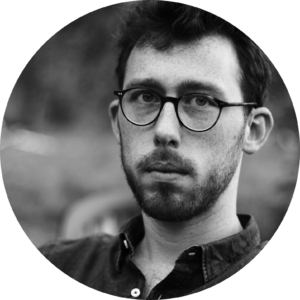
Thomas Foiadelli is the coordinator of the “Climate change and Sustainability” working group of the European Pediatric Neurology Society (EPNS) and member of the “Environmental Influences on Neurology” task force of the European Academy of Neurology. He is a clinician and researcher, mostly focused on Neuroimmunology and Epilepsy, currently working in University Hospital San Matteo, University of Pavia (Italy).
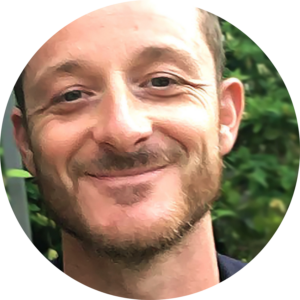
Born in Lyon in 1979. Adrien Rivollier worked first as stage manager on TV feature films broadcast on France 3 TV. He directed his first 52’ documentary in 2005, « A hard landing », shot in a juvenile detention center. This film was the starting point for a series of documentaries about the justice system and difficult youths; notably « Childhood at court » (2008) or « Criminal Games » (2012), which were both widely seen on France 2 TV and both awarded as Best documentary by Childhood Foundation award.
With his film « Tigran » (2014 – Mezzo TV), a portrait of Armenian Jazz Pianist Tigran Hamasyan, Adrien leads his first project uniting his passion for music with his previous films’ intimate approach. His way of working is that of immersion over several months at the heart of his subject. « Cheikh Mondher, Profession Imam » (France 3 – 2019), a 73’ portrait of the Imam of the Grande Mosque in Lyon is an example of it. Recently he shot several 26’ documentaries for France 5 TV and regularly films classical music concerts. Playing the drums and piano as well as running occupy the time he has left!
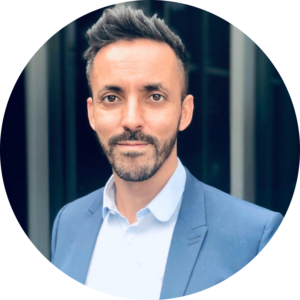
After graduating as a materials engineer from the University of Paris, Hassan worked in a research laboratory before an international expatriation adventure of more than 15 years.
France, UK, US, Switzerland, Taiwan, Spain, China in charge of developing Solar Energy technologies while exploring the extraordinary local cultures. Back in Switzerland in 2013 as Director of Research and Development, time to practice triathlon again.
In 2022, Hassan’s father diagnosed and suffering with Alzheimer suggested him to do something for the Alzheimer cause and the community . Next day, to answer his dad’s request he launched the “5 Ironmans Beat Alzheimer’s” initiative to: 1) raise community awareness of Alzheimer’s, 2) promote early prevention through best practices in health and wellness, and 3) to ultimately beat Alzheimer’s and all dementia related diseases.

Stephanie is a dedicated professional with extensive experience in patient engagement and advocacy. She has worked in various local, regional, and global roles in the industry, focusing on a wide range of disease areas, as well as broader above disease area initiatives like brain health in neuroscience. Before entering into patient advocacy, Stephanie spent nearly 20 years as a leader in the research and consultancy sector where she managed large teams to conduct strategic projects for the healthcare ecosystem. She is an expert and trainer for in-depth qualitative methodology. Her academic background lies in psychology, educational science, and sociology and she recently earned a certificate of advanced studies in “Mind Body Medicine and Healthy Lifestyle Adaptations”. Her passion lies in empowering people impacted by disease and enhancing their voices within the healthcare system.

Based in Kristiansand, Norway where I live together with my husband. We have two adult daughters.
My Family is strongly affected by Huntingtons disease (HD). My mother, brother and sister have all passed away with the disease. I have been engaged in patient engagement and advocacy since I was 20 years of age. First in the Norwegian Huntington association (LHS) for more than 30 years, the last 10 of them as President. In 2016 I was elected President of the European Huntington Association (EHA) and started to work full time for the organisation as CEO, a position I still hold.
Since 2023 I have been the President of European Federation of Neurological Associations (EFNA). Since 2017 I have been actively engaged as a patient advocate (ePAG) in the European Reference Network for Rare Neurological Diseases (ERN-RND)
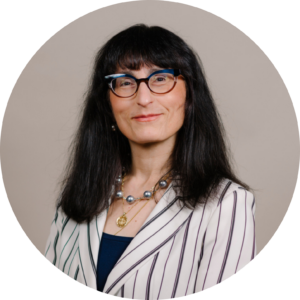
Elena Moro is Professor of Neurology at Université Grenoble Alpes and at the Department of Psychiatry, Neurology and Neurological Rehabilitation of CHU Grenoble in France. She graduated in medicine at the University of Trieste, Italy, and completed her residency in neurology at the Rome Catholic University. She then went on to complete a fellowship in movement disorders in Grenoble, France. After receiving her PhD in neurosciences, she joined the Division of Neurology at Toronto Western Hospital, Canada, as medical director of the surgical programme for movement disorders. In 2012, she moved to Grenoble, France, where she is currently director of the Movement Disorders Center and head of the Department of Psychiatry, Neurology, Neurological Rehabilitation and Forensic Medicine.
Her main research is focused on restoring brain function, especially with deep brain stimulation. To date, she has published more than 200 papers based on clinical research in movements disorders. Prof. Moro has trained many medical students, PhD students and neurology fellows. She has previously served on the EAN Board as Treasurer (2018-20) and Secretary General (2020-22).

Senior Executive and entrepreneur with long-term track record in Biotech/Pharma. Profound international experience in the relevant industry also regulatory aspect. Extensive and global business network in biofluid diagnostics with particular attention to salivary biometrics for prevention and therapeutics. Founder of three Biotech companies in preventive medicine, oncology and two advocacy groups supporting Brain Health. Vocational mentor for young scientists and dedicated advocate for democratizing precision health. Growth oriented and goal-driven, creates value through co-creation, actionable innovation leading to economical and social impact.

Neurologist, Chairman of EplC Ensemble pour le Cerveau, Vice-Chairman of the Belgian Brain Council, Professor of Neuropathology at HENALLUX (Haute Ecole de Namur Liège Luxembourg), Head of the Neurology Department at CHU UCL Namur Dinant, Chairman of the Association Parkinson francophone belge. As a specialist in Parkinson’s disease, he has a particular interest in the preventive approach and the early detection of the signs of this disease and its complications, advocating a broad, multidisciplinary, synergistic approach between healthcare professionals and patients and their family carers.
Early detection and management of falls, swallowing disorders, confusion, sleep disorders, and inadequate compliance with drug treatments would avoid increasing the burden of brain diseases, which is borne mainly by the patient and his or her family. To this end, complementary non-medicinal approaches are proving to be highly effective, even if their mode of action sometimes seems unclear. And good management of Artificial Intelligence should enable us to open up the future to integrative medicine. He recently recalled a number of epidemiological studies showing the impact of the environment and pollution on the onset and aggravation of many diseases. He is also interested in migraines, sleep disorders, dementia, multiple sclerosis and epilepsy and their impact on daily life.
For some two years now, Gianni Franco has been a member of the Non-Pharmacological Intervention Society, where he is in charge of the international development delegation.
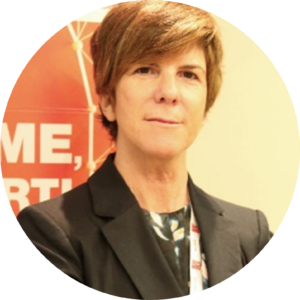
Paola Zaratin is the Director of Scientific Research for the Italian MS Society and its Foundation. She has over 30 years’ of experience working in Neuroscience research acquired in Public, Private and Patients’ Organizations, and 20 years in the field of MS. She also has 21 years of experience working in Drug Discovery and Development in the Neuroscience area. Paola professional education is on neuronal plasticity mechanisms underlying Multiple Sclerosis and neurodegenerative diseases. As director of scientific research of the Italian MS Society Foundation, Paola has developed a management model for the Italian MS Society portfolio that also allows effective programs of technology transfer aimed at developing new therapies (pharmacological and rehabilitation) for people with MS. She has been a coordinator of several international research projects. In her quality as Coordinator (2018- 2021) of the EU Responsible Research Innovation H2020 MULTI-ACT project (https://www.multiact.eu/ ), Paola led the development of a new research governance model and guidelines to engage patients as key stakeholders in multistakeholder health research initiatives. Paola is the co-chair of the global Patient Reported Outcomes Initiative for Multiple Sclerosis (PROMS; https://proms-initiative.org/, 2019-present); Member of the European Charcot Foundation Multistakeholder Initiative (https://www.charcot-ms.org/ms-initiatives, 2019-present); Member of ECTRIMS and National MS Society International Advisory Committee on Clinical Trials in MS (2022-present, https://www.ectrims.eu/ms-clinical-trials-committee/). Paola is author of more than 80 publications (1987-2024).
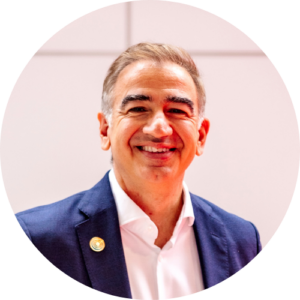
As Global Business Franchise Head for Neurology and Immunology at Merck Healthcare KGaA, Darmstadt, Germany, Dimitrios is leading a cross-functional team that is responsible for the development, the strategy, and the commercialization of key products in the relevant disease areas.
Prior to joining Merck, in his most recent roles, Dimitrios led Global Commercial Launches for high efficacy treatments in the field of Multiple Sclerosis. He has been actively working together with his teams, MS specialists, patient groups and key organizations across the globe in the field of Multiple Sclerosis and Neurology for the past 7 years.
Dimitrios has ~25 years of experience in health care, starting his career as a physician and then joined the pharmaceutical industry assuming roles of increasing impact over the past 15 years. He has led cross-functional teams across Commercial, Medical & Development both globally and in multiple countries.
A native of Greece, he is a physician by training, with a Specialty in Internal Medicine & Cardiology. Since joining roles in the pharmaceutical industry, he has been through various executive leadership programs including a most recent one at Wharton Business, University of Pennsylvania.
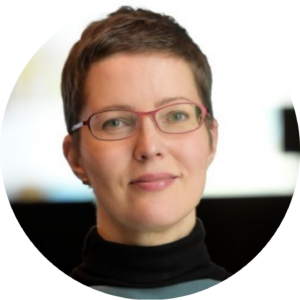
Before being seconded to EMA, Kaisa Immonen (MA) held the position of Director of Policy at the European Patients’ Forum (EPF), leading EPF’s policy and advocacy work, providing strategic analysis and advice, and maintaining high-level relationships with EU and international organisations and stakeholders.
She holds a Master’s degree in Health Policy, Innovation and Management (Maastricht University) and in International Relations (University of Kent at Canterbury/University of Tampere). Her personal interests include patient and citizen participation in healthcare improvement, patient safety, and health literacy. She has a background in policy, stakeholder management, and communications roles in non-profit organisations and the private sector.

Richard Lui is an award-winning journalist with over 30 years of experience in media, technology, and business. He has served as a news anchor for two decades at MSNBC, NBC News, CNN Worldwide, and Channel NewsAsia. Alongside journalism, Lui has spent 15 years in business, launching six brands across three tech cycles. Along with a patented fintech model with Citibank, he founded a critical narrative firm focusing on caregiving in 2017. He has held board seats at fintech and AI firms, is a fellow at the National Association of Corporate Directors, a US State Department Traveling Speaker, a Senior Fellow at the German Marshall Fund (GMF), and an ambassador for NGOs focused on gender equality and human trafficking. In 2021, HarperCollins Zondervan published his book, Enough About Me, on selflessness and caregiving. Lui also authored groundbreaking Inclusion@work risk reports released at Davos, SXSW, CES, and Cannes Lions. As a movie director, he recently released the Oscar- and Grammy-qualifying documentaries Sky Blossom (2021) and UNCONDITIONAL (2023), which premiered at the White House, U.S. Congress, United Nations, and European Parliament. An authority on inclusion and the care economy, Lui serves as an ambassador for the Elizabeth Dole Foundation, AARP, and the Alzheimer’s Association.

Christelle Baunez is Director of Research at CNRS. She is the leader of the Cognition and Physiopathology in the Basal Ganglia (CoPhyBaG) team at the Institut de Neurosciences de la Timone in Marseille. Her research uses a translational approach from animal models to human subjects to better understand their motivated behavior and their dysfunctions. Dr Baunez completed her PhD at Aix-Marseille university initiating her work on the subthalamic nucleus (STN) as a target for the treatment of Parkinson’s Disease. She then did a post-doc at Cambridge university (UK), deciphering the non-motor functions of the STN with TW Robbins. In 1997 she got a permanent position at the CNRS and followed her research on the STN functions. She published important results highlighting the STN role in reward-related processes and positioning it as possible target for the treatment of addiction. She has published 78 papers, has served as president of the scientific council of the Institute for Life sciences at the CNRS and that of France Parkinson. She is the Chair of the CARE committee (Committee on Animals in REsearch) of FENS.
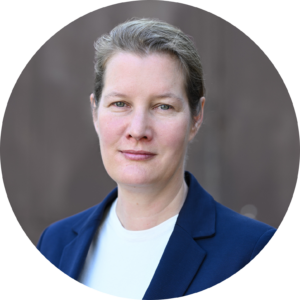
Dr. Ulrike Busshoff is Head of the International Health Research Department at the DLR Project Management Agency (DLR-PT), Germany. She oversees national, European and international research funding programmes in the area of brain health and global health. Besides conceptualizing and executing research funding programs on behalf of the German Federal Ministry of Education and Research she is also responsible for overarching topics like patient and public involvement, quality assurance in biomedical research, and ethical issues.
Dr. Busshoff is the coordinator of the ERA-Net NEURON (Network of European Funding for Neuroscience Research) that comprises ministries and funding agencies from 27 countries in and beyond Europe. Members in this network collaborate along a common research agenda, and with support by the European Commission to jointly fund research, networking and training activities in the area of neurological and mental disorders.
Since 2023, Dr. Busshoff is also the coordinator of the CSA BrainHealth. This EU funded network conceptualizes and prepares a European Partnership for Brain Health. This large-scale endeavour will support brain health research and innovation with the ultimate goal to preserve and promote brain health.
She serves also as member of the Advisory Board EU-Africa PerMed, an EU funded coordination and support action fostering joint projects in personalised medicine research between Europe and Africa. Dr. Busshoff holds a PhD in neurobiology from the University of Heidelberg, including research stays in the Netherlands as well as South Korea.
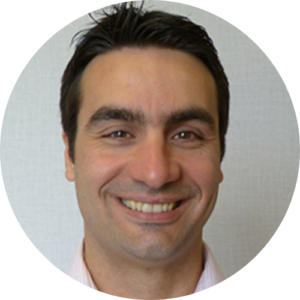
Pavel Balabanov, MD, PhD, is the Head of the Office for Therapies for Neurological and Psychiatric Disorders at the European Medicines Agency (EMA). With a robust background in clinical neurology and regulatory science, Dr. Balabanov has significantly contributed to the development and implementation of regulatory guidelines for neurological and psychiatric therapies.
Before joining the EMA, Dr. Balabanov worked as a consultant neurologist at the Clinic of Neurology, University Hospital in Plovdiv, Bulgaria, and served as a senior teaching professor at the Medical University of Plovdiv1. His academic and clinical expertise laid a strong foundation for his regulatory career.
At the EMA, Dr. Balabanov has been instrumental in advancing regulatory science, particularly in the field of neurological disorders. He has involved in the development of guidelines for new drugs targeting conditions such as Multiple Sclerosis (MS), Duchenne Muscular Dystrophy (DMD), and Amyotrophic Lateral Sclerosis (ALS)1. His efforts have included organizing scientific workshops to address critical issues in drug development, such as clinical trial readiness in Spinal Muscular Atrophy (SMA) and the role of registries in MS drug evaluation.
Dr. Balabanov has also spearheaded innovation initiatives aimed at improving regulatory processes. He led a task force to enhance operating procedures for managing new marketing authorization applications, ensuring more efficient and effective evaluations. Additionally, his role as a product lead for neurology medicinal products and as a member of the Scientific Advice section at the EMA has involved providing crucial guidance to applicants to align their drug development programs with current regulatory and scientific standards.
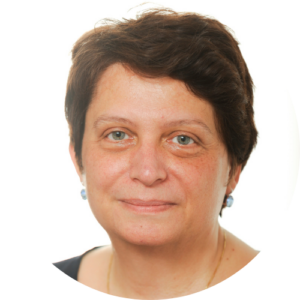
Magda Chlebus is Executive Director Scientific & Regulatory Affairs at the European Federation of Pharmaceutical Industries and Associations (EFPIA), representing the R&D-based pharmaceutical industry in Europe.
Magda and her team oversee policy and legislative developments that influence the research and regulatory environments for the healthcare industry in Europe. Their main goal is to enable fast translation of science and technology advances into research, medical and regulatory practice from medicines discovery and development to production and healthcare delivery.
Magda joined EFPIA in 1995. Her experience covers public affairs, science and innovation policies and research partnerships (including IMI and IHI). She is also a Board member of the Children’s Tumor Foundation Europe since 2019.
Magda, a Polish national, holds a Master’s Degree in applied Linguistics from the University of Warsaw.
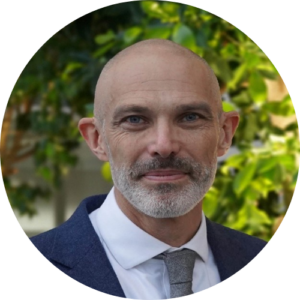
Dr Niklas Blomberg joined IHI as Executive Director in January 2024. He brings to the role extensive experience in both research and leadership roles in the life sciences.
A Swedish national, he has a bachelor’s degree in chemistry from the University of Gothenburg, and a PhD in structural biology and bioinformatics from the European Molecular Biology Laboratory (EMBL) in Germany.
He worked as a research scientist for AstraZeneca in Sweden for 14 years, taking on increasingly senior roles in the company, and leading the establishment of a team for data‑driven drug discovery in the respiratory and inflammation fields. During this time, he was industry co-lead of Open PHACTS, a project funded by the Innovative Medicines Initiative (IMI), the forerunner to IHI.
In 2013, he joined the fledgling research infrastructure ELIXIR. As its founding director, he oversaw the final negotiations between the member states to formally establish and launch ELIXIR. Under his leadership, the organisation built up its operational and project management capacity, grew to include 23 member states, and secured funding from both the member states and an extensive portfolio of EU-funded projects, including projects from IMI2, the European Open Science Cloud and the European Genomic Data Infrastructure.
https://www.linkedin.com/feed/update/urn:li:activity:7153671778274287616

Shiva Dustdar currently serves as the Head and Director of the EIB Institute, which brings the values and mission of the EIB Group close to society through philanthropic, academic, social and cultural activities supporting its climate, innovation and development priorities. Shiva has 30 years of experience in the financial industry working for large private and public institutions in New York, London and Luxembourg. Since joining EIB in 2003, she has worked in risk management, lending, investing and advising in innovative companies.
Shiva started her career in 1993 at J.P. Morgan in Investment Banking in New York before joining Fitch Rating Agency in 1999 to set up its European High Yield rating business. She holds a BA (Magna cum Laude) in Economics from Columbia University in New York and an Executive MBA from London Business School (LBS). Shiva is an innovation finance expert and regular speaker on innovation and impact financing, gender smart investing, digital and green financing and actively engaged in networks that promote sustainable and mission-oriented financing. In 2006, Shiva was nominated as one of the “Top 50 Women in Credit” by Credit Magazine and in 2023 received the WIN-Women International Global Inspiring Women Worldwide Award for being an “authentic, courageous feminine leader in the global stage”.
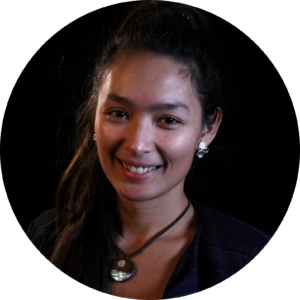



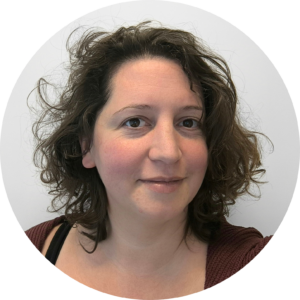
Lyuba Zehl leads the Data & Knowledge engineering team at the EBRAINS AISBL and coordinates Data & Knowledge management across the EBRAINS RI. She is also the product owner of the openMINDS metadata framework. She studied biology (BSc) and neuroscience (MSc) at the University of Cologne and became interested in metadata in the neuroscience-jungle to facilitate FAIR data sharing during her doctorate at the Juelich Research Centre / RWTH Aachen University in Germany. As a post doctorate she continued working at the Juelich Research Centre as a data & knowledge engineer for the Human Brain Project (HBP) paving the way for the launch of the Pan-European EBRAINS RI for neuroscience. In Oct 2023, she transferred to the headquarters of the EBRAINS AISBL, in Brussels, Belgium.
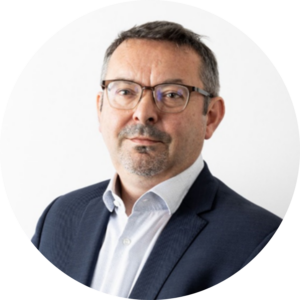
Dr. Hans Warrinnier joined Bioxodes following a leadership tenure at Roche Belgium where he held various senior leadership positions such as Medical Director. In this position, he led a team of 70+ across Clinical Operations, Medical Affairs and Medical Information, Drug Safety and Regulatory Affairs. He developed and supported affiliate and global clinical studies in different therapeutic areas, maintainingBelgium’s top spot in clinical trials per capita in the world. He delivered strategic expertise and advice for market access solutions in Belgium across different therapeutic areas, including oncology, hematology, neurology, immunology, and hemophilia. In addition to receiving his medical degree from the KU Leuven in Belgium, Dr. Warrinnier followed Business school programs from London Business School and Harvard Business School.
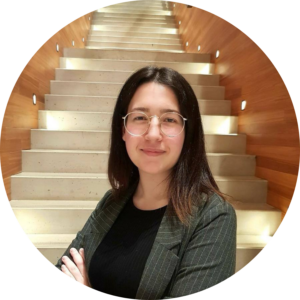
Chiara Lovati holds a Bachelor’s degree in Sociology from the University of Trento (IT) and a Master’s degree in Data Science and Society from Tilburg University (NL). Currently employed at Observa Science in Society, she serves as a sociological researcher on the Horizon Europe HEREDITARY project, focusing on the social aspects of the integration of multimodal health data to transform disease approach, treatment response, and medical knowledge. Her main research interests lie at the intersection between science and society, and within public communication of science and citizens engagement.

Jessica is currently completing her bachelor’s degree in science communication and bionics at the University of Rhine Waal in Germany, where she collaborated with several NGOs on projects ranging from sustainability to healthcare.
At IDF Europe she develops and maintains communication and dissemination strategies to increase IDF Europe’s outreach goals. She also supports the management of several EU funded projects such as PRIME and RECOGNISED and has helped develop a platform for people living with type 2 diabetes.
IDF Europe is the European chapter of the International Diabetes Federation (IDF). We are an umbrella organization representing 72 national diabetes organisations in 45 countries across Europe. We are a diverse and inclusive multicultural network of national diabetes associations, representing both people living with diabetes and healthcare professionals.
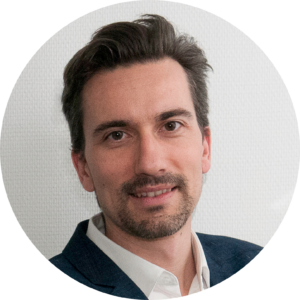
Guillaume Blivet is an entrepreneur and an innovator with 15+ years of global experience in multiple areas of healthcare, medical technologies, and disease management. Guillaume specializes in public health (MPH) and is also graduated with an Executive MBA.
He is Chief Innovation Officer of REGEnLIFE, a NeuroTech he founded in 2016. This company develops a novel medical device dedicated to people living with neurodegenerative diseases, specifically Alzheimer’s disease. This patented therapeutic solution is a non-invasive and painless application which takes the form of a helmet and an abdominal belt which together target both the brain and the gut.
He’s also Associate editor of the Journal on Alzheimer’s Disease and co-chair of the International Symposium on Sport-related Concussion.
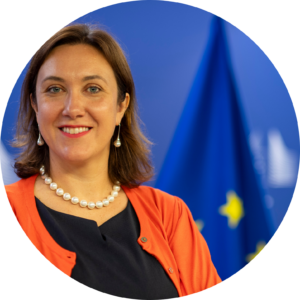
Kasia Jurczak is the Head of Unit “Combatting diseases” at European Commission’s Directorate General for Research and Innovation (DG RTD). Together with her dedicated team, she provides strategic steer for the funding available for health research and innovation under Horizon Europe, which covers both infectious and non-communicable diseases.
Kasia has 20 years of experience in the EU-level policy development, implementation, and research, in the areas of public health, labour and social policy, civil protection and humanitarian aid. Prior to joining DG RTD, she worked in the private office of Janez Lenarčič, the European Commissioner for Crisis Management, advising on response to COVID-19, scaling up EU’s health emergency preparedness and EU’s humanitarian aid in Latin America and the Caribbean. She also acted as an advisor to Marianne Thyssen, the European Commissioner for Employment, Social Affairs, Skills and Labour Mobility. Kasia has been working for the European Commission since 2012.
Kasia studied social science at the London School of Economics and Political Science (BSc) in the UK and University of Leuven (MA) in Belgium. She is a Polish national.
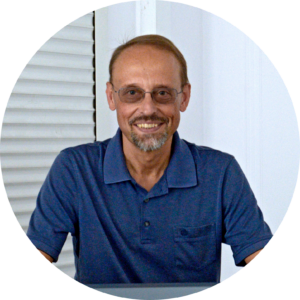
Leszek Kaczmarek is Professor at the Nencki Institute of Experimental Biology, Polish Academy of Sciences, Warsaw, Poland, head of the Laboratory of Neurobiology and President of the Center of Excellence for Neural Plasticity and Brain Disorders: BRAINCITY; a Nencki-EMBL Partnership.
Leszek Kaczmarek has got his PhD in experimental hematology, followed by D.Sc. (dr hab.) in the field of experimental oncology. He carried out postdoctoral studies in Philadelphia, USA and then was visiting professor in the University of Catania, Italy, McGill University, Montreal, Canada, University of California, Los Angeles and Institute of Photonic Sciences, ICFO, Castelldefels, Spain. Since 1986 his laboratory at the Nencki Institute has been investigating brain-mind connection at all the levels of brain organization from molecular to cellular to network to behavior in health and disease. Most of the work involves experimental animal models, however joint studies with clinicians on human neuropsychiatric disorders have also been pursued. The current major focus is on extracellular enzyme, matrix metalloproteinase, MMP-9, which his laboratory documented to play paramount role in neuronal/synaptic plasticity and then in learning and memory, development of epilepsy, schizophrenia, autism spectrum disorders and alcohol addiction.
Prof. Leszek Kaczmarek has also been very active in professional scientific organizations, serving on governing bodies of International Society for Neurochemistry, International Brain Research Organization, European Molecular Biology Organization, European Molecular Biology Conference (currently as the president), National Science Center (Polish research grant agency), Polish Academy of Sciences, Polish-US Fulbright Commission. He served in the panels of the European Research Council, including chairing the LS5 Neuroscience and Neural Disorders Consolidator grant panel. He has recently become the member of the ERC Scientific Council. Prof. Kaczmarek has been engaged in multiple outreaching activities promoting science into society and he co-authored a biology textbook at middle school level.
Prof. Leszek Kaczmarek is a member of the Polish Academy of Sciences, European Molecular Biology Organization and Academia Europaea. Prof. Kaczmarek has been awarded several prestigious research grants and recognitions including the Foundation for Polish Science (FNP) award for his research on inducible.
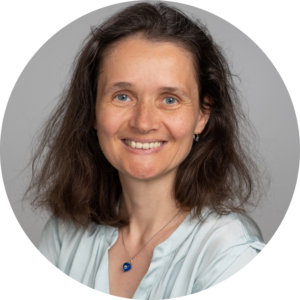
Ágota Dávid works as a science attaché at the Permanent Representation of Hungary to the European Union. Ágota is an international science policy expert with a strong interest in both bilateral and European science policy and science diplomacy. She has been working in the main research funding agency of Hungary, managed European project with various world regions. Currently she is representing the Hungarian research community in Brussels and is active in European Research Area related expert groups.

Baroness Greenfield, Founder and CEO of Neuro-Bio Ltd (www.neuro-bio.com) is a neuroscientist, writer and broadcaster. She has published over 220 papers in peer-reviewed journals, based mainly at Oxford University but has held research fellowships at the College de France Paris, NYU Medical Centre New York and Melbourne University. She holds 32 honorary degrees from UK and foreign universities, has received numerous honours including the Legion d’Honneur from the French Government, an Honorary Fellowship from the Royal College of Physicians, The American Academy of Achievement Golden Plate Award, and The Australian Medical Research Society Medal. She is also a Fellow of the Royal Society of Edinburgh.

Michel Goldman, MD, PhD, is the Founding President of the Institute for Interdisciplinary Innovation in healthcare at the Université libre de Bruxelles. He currently serves as Editor-in-Chief of the journal Frontiers in Medicine and was the first Executive Director of the European Innovative Medicines Initiative from 2009 to 2014. He is a member of the Royal Academy of Medicine of Belgium and of the National Academy of Pharmacy in France.
Author of over 450 scientific publications in the fields of clinical medicine and immunology, he now works with Belgian and French economists on issues of innovation and access to medicines. He is the author of the book “La médecine d’après, leçons du Covid-19”, published by the Académie Royale de Belgique, and edited the collective work “Les vaccins, ce que tu dois savoir”.
Michel Goldman is a laureate of the Lucien Steinberg Prize (shared with Pr. Peter Piot, 1997), of the Quinquennial Prize of the Belgian National Fund of Scientific Research (2000), and of the Spinoza chair at the University of Amsterdam (2001). In 2007, he was awarded the degree of Doctor Honoris Causa of the Université of Lille. In 2024, Michel Goldman was the recipient of the Blaise Pascal Medal for Medicine and Life Sciences awarded by the European Academy of Sciences.
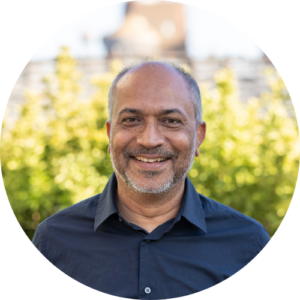
Nawal Roy, founder and CEO of Holmusk, established in 2015, is a pioneering force in AI-driven healthcare. Dedicated to creating the world’s largest real-world evidence platform for mental health, Nawal oversees Holmusk’s strategic direction and sets the tone for its sector defining ambition. Under his leadership, Holmusk has secured more than 100M USD of financing, completed two acquisitions in the U.S. and the U.K., and launched NeuroBlu, the premier source for mental health real-world data. Nawal curates a world-class team of clinical psychiatrists, computer scientists and data science experts, driving Holmusk’s mission for gold-standard of evidence in mental health. Beyond Holmusk, Nawal serves as a board member for Healthy Brains Global Initiative and as Co-chair of The Kennedy’s Forum’s Data and Measurement Committee since 2023. Additionally, Nawal’s influence extends to the World Economic Forum, where he was a member of the Global Future Council for Mental Health in 2021-22. His multifaceted leadership embodies a commitment to advancing mental health on a global scale, through innovation, collaboration, activism, and strategic policy advocacy.
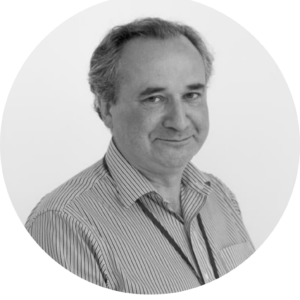
Biography pending.
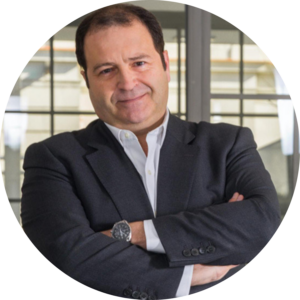
Raúl Martín-Ruiz is a Partner in Ysios Capital, a leading Spanish venture capital firm that provides private equity financing to early- and mid-stage, highly innovative life science companies bringing life-changing treatments to patients, with a focus on indications with high unmet needs.
Prior to joining Ysios in 2008, Raúl first worked in corporate business development (Licensing In and Licensing Out) at Laboratorios Almirall. He was subsequently responsible for developing and managing the business of the Company in the Americas and Africa through licensees and distributors.
Raúl’s background in research includes training in central nervous system pharmacology within the Department of Pharmacology of the University of the Basque Country (UPV-EHU), and in neurochemistry within the Department of Neurochemistry at the Institute for Biomedical Research of the Barcelona–Spanish National Research Council (IIBB-CSIC).
He currently serves on the boards of Kynexis, Synendos, and CorWave, and has previously been a board member at STAT-Dx (acquired by Qiagen), Prexton Therapeutics (acquired by Lundbeck), MedLumics, and Anaconda Biomed.
Raúl holds a Bachelor’s degree in Biological Sciences from UPV-EHU, and a PhD in Neuroscience from UPV-EHU and the CSIC.

Focused on accelerating health businesses and building partnerships to improve health and the quality of care. Prior to joining EIT Health, I worked as a business developer for a health start-up and successfully completed an internship at Medtronic Australia. A strong believer in co-creation by companies and users. If you like to exchange thoughts on innovation in health(care) or how to impact the world of tomorrow, please get in touch.
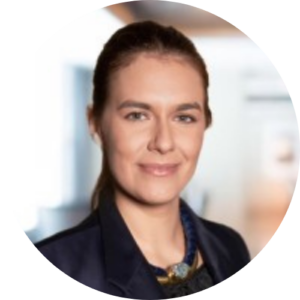
As the founder of MindSpark 360, I am deeply committed to transforming mental health globally by bridging the gap between scientific research and community needs. My work focuses on fostering strategic collaborations across various sectors to integrate innovative mental health solutions that are both effective and sustainable. Join me in our mission to shape a healthier future through groundbreaking initiatives and partnerships.
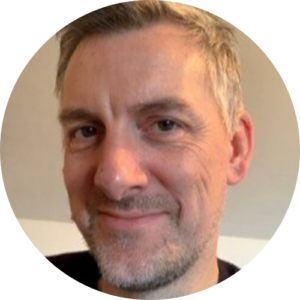
Ben Moore is the founder of vCreate, a secure clinical video management platform supporting rapid, precision diagnostics and decision-making.
Health Organisations are able to securely manage videos, photos and multi-language clinical data from patients and colleagues. This helps increase capacity, reduce cost and improve operational efficiency through cloud-based integration with the EHR.

Professor Lars Edvinsson (LE) is recognized leading expert in the field of vascular innervation and receptor regulation and his extensive research has been a major contributor to understanding roles of perivascular neural regulation in cerebral, coronary, and peripheral vasculature in health and diseases, with particular focus on stroke and primary headaches. This research has founded the development of novel drugs for the treatment of neurovascular diseases, primary headaches and stroke.

Dr. Karen Carr has over a decade of experience in Medical Affairs in the pharmaceutical industry, specializing in Migraine and Neuroscience. She is currently serving as the Scientific Director in International Medical Affairs for Migraine at AbbVie.
Karen has a rich background in migraine research and education, having led multiple real-world and collaborative studies in migraine. She has numerous publications across Migraine and in the field of Immunology.
In her current role at AbbVie, Karen advocates for practice-informing evidence generation and medical education initiatives to raise awareness and improve the care of people living with migraine.

I am currently the Past President of the Resident and Research Fellow Section of the European Academy of Neurology (EAN) and serve as the Co-Chair of the EAN Task Force on Artificial Intelligence in Clinical Neurology, alongside Maria-Chiara Malaguti. Additionally, I represent the EAN in the committee led by the European Brain Council, which is working on the development of a European Charter for the Responsible Development of Neurotechnologies.
Regarding my background, I completed my medical studies at the University of Pisa and earned my diploma from the Sant’Anna School of Advanced Studies (Pisa), where I also obtained a PhD in Translational Medicine with a focus on Neuroscience. I hold a Master’s in Advanced Neuroimaging from University College London and I am currently completing an online course on AI in Healthcare at the Massachusetts Institute of Technology. Furthermore, I will conclude my specialty training in Neurology at Geneva University Hospitals (HUG) in November 2024.
In terms of research, I am actively developing machine learning models to predict disease progression in neurodegenerative conditions at the Memory Center at HUG. I am also engaged in research on the ethical dimensions of brain stimulation in neurology, collaborating closely with Prof. Marcello Ienca and Dr. Georg Starke from the Intelligent Systems Ethics Group at the Swiss Federal Institute of Technology in Lausanne on the “Hybrid Minds” project.
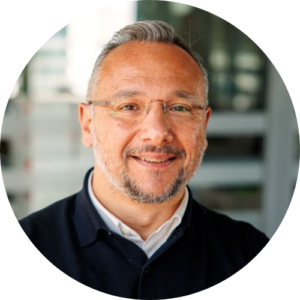
Biography pending
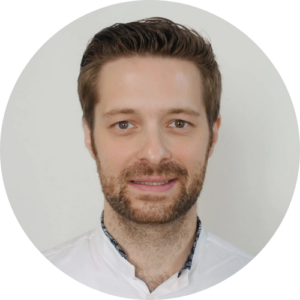
Medical & Scientific Director, European Society of Preventive Medicine (ESPM) and Scanderra GmbH; Innovation Advisor at Ageing Research, King’s College London (ARK)
Felix Strobl MSc, is Medical and Scientific Director at Scanderra GmbH in Basel, Switzerland. He is also Scientific and Business Development Manager of the European Society of Preventive Medicine (ESPM). Felix Strobl graduated in Neuroscience (MSc) from King’s College London, UK and brings a comprehensive and holistic perspective on health, prevention and aftercare to his work with a solid background in emergency medicine as a paramedic. Felix Strobl is also a trained tenor with international stage experience. He is the initiator of the Long Covid project MEA(Music, Emotion and Atmung/Breathing) in Switzerland, where he conducted research of the therapeutic potential of music in overcoming health challenges with the help of breathing techniques. As a dynamic speaker, he shares his insights with a wide range of audiences, including companies, educational institutions and health conferences. In addition to his scientific activities, Felix Strobl also works as a trainer and consultant for various companies. His work is characterized by an interdisciplinary approach that combines scientific knowledge with practical applications to promote holistic health.

Convergence Partners
Pascal has been in Healthcare for almost 20 years, of which he spent 12 years in MD roles at Pfizer in Europe, notably participating in the launch of a new global business unit focussed on Integrated Health and “Beyond the Pill” solutions. Following his industry career, he became Managing Partner at Argon Global Healthcare, a leading network of independent full service healthcare communications agencies. As an agency executive he served medical start-ups and scale-ups and already well established clients within the pharmaceutical, med-tech, digital therapeutics and health insurance industries around the world by helping them build their brand and develop their business. He is a passionate entrepreneur, board member and angel investor focussing on driving innovation in Healthcare and Life Sciences. Pascal started his career as a strategy consultant at Roland Berger & Partners. He holds a Master’s Degree from EM Strasbourg Business School and a Diplom Kaufmann Degree from Friedrich-Alexander University Erlangen-Nürnberg. He is also a Guest Lecturer at the Master in Marketing Farmaceutico at the University of Pavia.
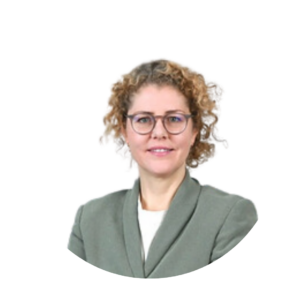
MindSpark 360
At MindSpark360, she brings a robust blend of neuroscience expertise and psychotherapy skills. With a PhD in Neuropsychology from the University of Zurich, she has pioneered research in electrophysiological biomarkers and multimodal imaging technology in psychiatry. As a co-founder of the Therapeutic Gaming Lab, Christine integrates serious gaming with psychotherapy to innovate treatment methods. Her work in psychiatric clinics has advanced traditional mental health practices.
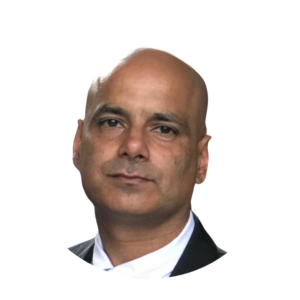
Royal Hospital for Children – Glasgow
Sameer Zuberi is Paediatric Neurologist at the Royal Hospital for Children and Honorary Professor, University of Glasgow. His interests include epilepsy, neurogenetics and innovation. He leads the Paediatric Neurosciences Research Group in the University of Glasgow and is clinical lead of the Scottish Genetic Epilepsy service. He is a Board Member & immediate past President of the European Paediatric Neurology Society (EPNS) and sits on the Board of the European Brain Council. Other roles have included Editor-in-Chief of the European Journal of Paediatric Neurology (2015-21 and Chair of the International League Against Epilepsy (ILAE) Commission on Classification & Terminology (2013-17). He co-designed vCreate Neuro, a smartphone video diagnosis and management web-application. Established in Glasgow in 2020 it is now used by >100 services in the UK and internationally.

European Brain Council (EBC)
Professor Suzanne L Dickson is a neurobiologist and Professor of Neuroendocrinology at the University of Gothenburg. She graduated with a Ph.D. in Neuroendocrinology from the University of Cambridge in 1993, where she later became Senior Lecturer in Physiology. She is a leading figure in neuroendocrinology and works within many European Union and international organisations and societies to promote research, facilitate grant funding and training of Early Career Scientists. Her research into the neurobiology of appetite aims to unravel neurobiological pathways that respond to orexigenic signals, such as the hormone, ghrelin, and that drive feeding behaviours, not only food intake but also food choice, food anticipation, food reward and food motivation. This work involves mostly preclinical studies and includes behavioural tasks, viral vector mapping, chemogenetics and RNAscope. She is Secretary and Executive Board member of the European College for Neuropsychopharmacology, and also chairs ECNP’s Workshop for Early Career Scientists in Europe. She also is founder and co-chair of ECNP’s nutrition network and EBRA’s BRAINFOOD cluster.
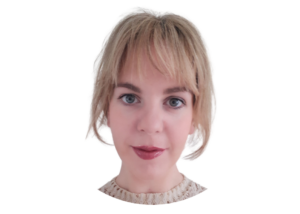
European Federation of Neurological Associations (EFNA)
Dr. Orla Galvin came to patient advocacy with a PhD in Medicine and background in drug discovery and design in both academic and industry environments. Transitioning to advocacy work at the umbrella patient organisation Retina International, Orla led high impact, multi-stakeholder socio-economic studies, patient preference studies, and accessibility studies across the globe assessing both rare and common conditions.
Orla is an internationally invited speaker to both research and clinical learned societies (for example EURORDIS, EU Retina, ERN-EYE), patient organisations, and industries on topics such as:
She is currently Executive Director of the European Federation of Neurological Associations (EFNA).

GAMIAN-Europe

EUREGHA
Marco is a Policy and Project Officer at EUREGHA, the reference network for European Regional and Local Health Authorities.
He assists the Secretariat in monitoring EU health policy and legislative files and developments of health policies at the regional level, and he takes care of the implementation of EU-funded projects, especially in the framework of Horizon 2020 and Horizon Europe, such as BOOST (mental health, H2020), PERISCOPE (Covid-19 response, H2020), Health InnoFacilitator (innovation procurement, HE), and BeWell (digital and green skills, Erasmus+).
He holds a Master’s degree in International Relations and Diplomatic Affairs from the University of Bologna, focusing on EU studies.

Vall d’Hebron University Hospital
Patricia Pozo-Rosich MD PhD, is a specialist in Neurology.
She is Head of Section of the Neurology Department, Director of Headache and Craniofacial Pain Clinical Unit and the Migraine Adaptive Brain Center at the Vall d’Hebron University Hospital in Barcelona, Spain; Coordinator of the Brain, Mind & Behaviour eCORE and Group Leader and Principal Investigator of the Headache Research Laboratory at the Vall d’Hebron Institute of Research (VHIR), which belongs to the Universitat Autonoma of Barcelona (UAB).
She is the past Coordinator of the Spanish Headache Study Group of the Spanish Neurological Society (cefaleas.sen.es), past member of the Council of the European Headache Federation, past trustee member of the International Headache Society.
She is a member of the Scientific Advisory Board of the Fundación Lilly Spain.
She is the Editor for Headache for Revista de Neurologia, an Associate Editor of Cephalalgia, Headache, Neurologia, Frontiers in Neurology (Headache Medicine) and a member of the Editorial Advisory Board of The Journal of Headache and Pain.
She has edited Guidelines for the Diagnosis and Treatment of Headache, authored original papers and written a book.
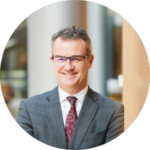
Health & Digital Executive Agency (HaDEA)
Stéphane Hogan is Head of Unit for Health Research at the Health & Digital Executive Agency (HaDEA), on secondment from DG Research and Innovation at the European Commission, which implements the Horizon Europe Health Cluster and Cancer Mission.
Stéphane was previously Head of Unit for Biotechnology for Health, subsequently Head of Unit for Strategy, and more recently Head of Sector for Neuroscience at DG Research and Innovation from 2016-2019.
Stéphane has also represented the European Commission as Science Counsellor at the EU Delegation to the European Union to the African Union in Addis Ababa from 2012-2016, where his role was to foster cooperation in between the EU and Africa, both at policy level and through the Framework programme.
Stéphane holds a degree in genetics and a masters in biotechnology from Trinity College Dublin, as well as an MBA with the Open University in the UK.
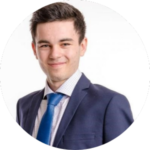
Applied University FH Joanneum
Hannes Hilberger (FHJ) is a dedicated researcher affiliated with the eHealth Institute at the Applied University FH Joanneum. Possessing a master’s degree in eHealth, he is currently enrolled in the doctoral program of “Lifestyle-Related Diseases” at the esteemed Medical University of Graz. His research focus encompasses advancing the domains of federated learning, synthetic data generation, and health informatics. His contributions were recognized when he received the Austrian Health Research Award in the category of “Digitalization and Innovation in the Healthcare Sector” with his thesis titled “Implementation of a Cross-Silo Federated Learning Approach for the Health Sector.” In addition to his academic pursuits, Hannes serves as the lead developer for the mobile application designed for study participants and the clinical trial management system tailored for clinical partners within the ambit of the H2020 project LETHE. He adeptly employs his specialized expertise in Machine Learning, particularly in the sphere of explainability, prediction of risk and progression of cognitive decline as well as Federated Learning, to significantly contribute to the LETHE project’s success. Furthermore, Hannes plays a crucial role in the IMI H2020 project Trials@Home, overseeing the technical implementation and management of the issue-tracking system.

Scuola Superiore Sant’Anna
Prof. Giuseppe Turchetti received his Laurea Degree in Economics from the University of Pisa. He received his PhD in Management from the Scuola Superiore Sant’Anna in Pisa, where he is professor of Economics and Management of Innovation and Healthcare. Fulbright Scholar, he spent several years for research in USA as Visiting Scholar at The Wharton School of the University of Pennsylvania (Philadelphia), at the Illinois Institute of Technology (Chicago) and at the Kellogg School of Management of the Northwestern University (Chicago). He is Co-Founder of the Institute of Management of the Scuola Superiore Sant’Anna (SSSA – Pisa), of the Research Center on Technologies and Services for the Support of Longevity (SSSA – Pisa), of the Research Center on European Transplantation Management (SSSA – Pisa), of the Center of Excellence ENDOCAS (on Computer Assisted Surgery) of the University of Pisa. His main research interests are in the fields of the: organisation, financing and evaluation of healthcare services and health technologies, of the management of innovation, organization and commercialization of medical technologies (pharma, medical devices, e-health), strategic management and marketing in the healthcare sector. His research addresses many therapeutic areas and the wide field of rare diseases. He is working on/coordinating several national and international projects in the area of healthcare technologies and management. He collaborates in several projects within the ERN Program (on a regular basis with ERN ReCONNET), European Commission. He is author/editor of twenty books and of three hundred scholarly papers and book chapters.

Sitra’s Health Data 2030 Project, TEHDAS
Elina works as a Specialist in Sitra’s Health Data 2030 project and Coordination of TEHDAS. Her job involves promoting re-use of health data in Finland and Europe and collaborating with international health ecosystems and organisations. Elina has expertise in the establishment of the European Health Data Space for secondary use, and she has over 10 years of experience in European collaborations in the field of health research. She has worked as a Project Manager and Work Package Leader in various EU-funded research projects in Finland and Sweden, and she has gained experience in research funding and international co-operation during her time at the Research Council of Finland. Elina’s background is in social sciences and her professional interests include societal impact and systems change towards sustainable development, where health and well-being are understood in a broad sense. In addition to her position at Sitra, Elina is affiliated with the Faculty of Medicine at the University of Helsinki.
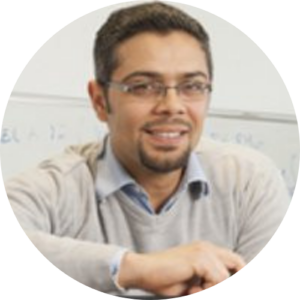
RebrAIn
Biography pending.
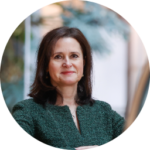
Member of the European Parliament
Radka Maxova has been a Member of the Czech Parliament since 2013, and since 2019, she has been representing the interests of the Czech Republic in the European Parliament. At both the national and European levels, her primary areas of focus are social policy, the rights of individuals with disabilities, equal opportunities, and the protection of vulnerable groups. She is also deeply engaged in health-related issues, including mental health, rare diseases, patient rights, and access to healthcare for all. Currently, she serves as the Vice-Chair of the Committee on Women’s Rights and Gender Equality (FEMM) and is a substitute member of the Committee on the Environment, Public Health and Food Safety (ENVI), as well as the Subcommittee on Public Health (SANT). She is also a member of the Parliamentary Disability Intergroup, the MEP Alliance for Mental Health and EU SHD Coalition, dedicated to structural heart diseases.

Hoofd-Stuk
Rising above the storm of migraines, I’ve found strength and resilience. With a degree in office management, 15 years full-time employment and over a decade of successful entrepreneurship, I’ve taken control of my destiny. Now working as a volunteer at Hoofd-Stuk, I’m seeking to reconnect with the power of teamwork, I’m ready to bring my skills and passion to a collaborative environment. Let’s create something incredible together, while never letting migraines define us.
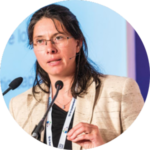
DG Research & Innovation
Hélène Le Borgne is Policy officer on research on rare diseases at the Directorate-General for Research & Innovation in the European Commission since January 2020 (unit ‘Health innovations and ecosystems’). In this position, Hélène supports policy work on rare diseases such as preparations with Member States’ representatives for the future European Partnership on Rare Diseases under Horizon Europe and follow-up of current ongoing projects such as the European Joint Programme co-fund on Rare Diseases (EJP RD), the Coordination and Support Action ERICA for European Reference Networks (ERNs) or public-private projects such as Screen4Care, under the Innovative Medicines Initiative (IMI).
Prior to that Hélène worked in Germany and in the French public sector (for academia, student life, youth and sports) and joined in 2010, as Policy officer, DG SANTE of the European Commission, working on health threats, organ donation and transplantation as well European Reference Networks (ERNs) on rare diseases.
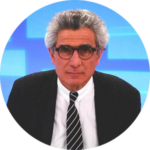
European Brain Foundation
Patrice Boyer is Chair of the EBF, the immediate past vice-president of the European Brain Council (EBC) and a past President of the European Psychiatric Association (EPA). He is Honorary Professor of Neurosciences and Psychiatry at the University Paris-Diderot (France) and Professor of Psychiatry and post graduate studies (geographical) at the University of Ottawa, Ontario, Canada. He is the founding editor of the journal European Psychiatry, the co-founder of the French Congress of Psychiatry, and a member of the International Scientific Advisory Board of the main foundation for research in neurosciences and psychiatry in France (Fondamental). Trained in neurology and psychiatry, Prof Boyer used to be previously the co-Chairman of the Master and Doctorate courses for Neurobiology at the Universities of Paris 5 and Paris 7 and the advisor for psychiatry in the then newly created INSERM thematic institute (ITMO Neurosciences).
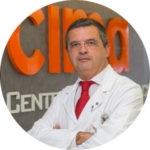
International Brain Research Organization Pan-European Committee
José L. Lanciego’s current research focuses on gene therapy approaches for neurodegenerative diseases using non-human primate models. He is the Chair of the International Brain Research Organization Pan-European Committee, a Board Member of the European Brain Council and the International Basal Ganglia Society Council. He has published 132 papers with an h index of 46. In September 2019, he has co-founded Handl Therapeutics B.V. for pushing forward the development of novel therapies for Parkinson’s disease.

Portuguese MEP, S&D
Sara Cerdas is a Portuguese medical doctor and, since July of 2019, a Member of the European Parliament. She is a member of the Committee on the Environment, Public Health and Food Safety (ENVI), the Committee on Transport and Tourism (TRAN) and S&D coordinator of the Sub-Committee on Public Health (SANT). She was also vice-president of the Special Committee on Beating Cancer (BECA) and S&D coordinator of the Special Committee on COVID-19 (COVI). Currently, MEP Cerdas is shadow rapporteur of the proposal for Regulation for the European Health Data Space and main rapporteur of the INI report on Mental Health.
She holds a master’s degree in Medicine from the University of Lisbon, a postgraduate degree in traveler’s medicine from NOVA University Lisbon and a master’s degree in Public Health from the Umeå University.
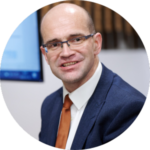
Permanent Representation of Hungary to the EU
Csaba Kontor has been working as health attaché since 2015. During this period he participated at all the Council discussions in health matters (e.g. medical devices, health technology assessment, health union package and covid related dossiers). Currently he is following the discussion on the current dossiers such as regulations on European Health Dataspace and Substances of Human Origin. Besides he is in charge of the negotiations on the pharmaceutical package. Beforehand he worked in the ministry responsible for health as deputy head of the pharmaceutical department.

European Youth Forum
Policy officer for social and economic inclusion at the European Youth with a particular focus on fair working conditions and access to social protection for young people.

Boehringer Ingelheim
Vanessa leads BI’s strategic engagements with the mental health community, aiming to shine a light on chronic and complex conditions such as schizophrenia, PTSD and bipolar disorder, and involving these patients and carers in the development of future treatments. She has previous experience in developing successful advocacy campaigns on different health policy issues in Brussels and Berlin, and has also worked with global organizations, such as the World Ovarian Cancer Coalition. Her passion for patient advocacy is motivated by her brother, who lives with a rare chromosomal disorder.
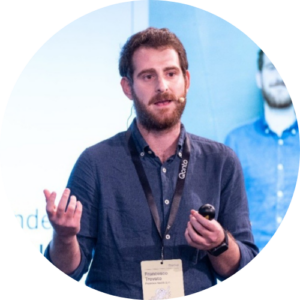
Paperbox
Francesco Trovato CEO & Co-founder of Paperbox, Industrial Engineer from Politecnico di Torino, and MBA from CDI Italia, Forbes U30 Italia, Francesco has had extensive experience in both industrial and digital sectors, with a focus on consumer wellbeing solutions, new digital family trends, and the gaming market.
In 2022, together with co-founders Francesco Garosci and Giacomo Pratesi, Francesco founded Paperbox, a company dedicated to unlocking the cognitive potential of children with neurodivergent conditions, even at the preschool age, ensuring a healthy and efficient neurodevelopmental path.
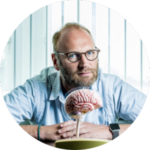
Belgian Headache Society
Prof. Dr. Jan Versijpt (born 1972) studied medicine at the University of Ghent, Belgium. After his medical studies he did a PhD in Alzheimer’s disease and neuroimaging. He then pursued in Nuclear Medicine to graduate as a licensed practitioner specialist in Nuclear Medicine. Afterwards he started a second specialty being Neurology, this in Antwerp (Belgium) and Groningen (the Netherlands). Since November 2008 he works as a Neurologist at the University Hospital in Brussels (Belgium) where he is the coordinating physician of the Clinic for Head and Facial Pain and the Memory Clinic. He is (co-)author of more than 80 publications in international peer-reviewed journals. He is the current president of the Belgian Headache Society and board member of the European Headache Federation.

RTW Charitable Foundation
Juan Carlos López is Managing Director, Research Grants, at the RTW Charitable Foundation. A native of Oaxaca, Mexico, Juan Carlos obtained his Ph.D. degree from Columbia University (New York) in the laboratory of Nobel Laureate Eric Kandel and carried out postdoctoral research at the Instituto Cajal (Madrid). In 2000, Juan Carlos moved to London to launch the journal Nature Reviews Neuroscience, subsequently becoming its Chief Editor. Four years later, he returned to New York as Chief Editor of the prestigious journal Nature Medicine. In 2014, Juan Carlos joined Hoffmann-La Roche as Head of Academic Relations and Collaborations, leading a team in charge of fostering scientific interactions between the company and academic institutions worldwide. After leaving Roche, Juan Carlos founded Haystack Science, a consulting firm specialized in editorial services and science commercialization. In 2020, Juan Carlos returned to the pharmaceutical industry as Director of Academic Research Collaborations at Bristol Myers Squibb. Throughout his career, Juan Carlos has served on the Boards of multiple organizations in the non-profit and biotechnology sectors, most recently on the Board of Directors of Keystone Symposia.

European Brain Council
Vinciane Quoidbach is Research Project Manager – Public Health and Policy for the Value of Treatment for Brain Disorders Study at the European Brain Council.
Vinciane holds a Master Degree in Hospital and Healthcare Management from Solvay Brussels School of Economics and Management and a Postgraduate Diploma in Public Health Management from Manchester Business School. She also holds a Master Degree in Political Sciences and European Studies from University of Antwerp. Prior to this position, Vinciane worked in both public and private sector, at national and international level. She served the Belgian Federal Public Service Health, and the Federal Minister of Health Cabinet as Advisor in charge of public health policy and regulations development in the area of Cancer, Chronic Diseases and Rare Diseases as well as the Biopharmaceutical Company AbbVie as Health Initiatives Manager. She also worked for the World Health Organization in Geneva, Swizterland as Technical Officer, Non communicable diseases and mental health cluster and the United Nations Development Programme in Pretoria, South Africa as Technical Officer, Social development department).
Vinciane is also a staff member at the Belgian Centre for Evidence-Based Medicine (CEBAM) at KULeuven.
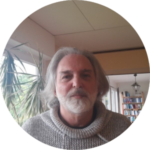
ALAN Maladies Rares
Antoni Montserrat Moliner (born in Barcelona, Catalonia). He was responsible for the policies on rare diseases and cancer at the Public Health Directorate of the European Commission from 2004 to 2017, where he initiated the Commission’s Communication, the Council’s Recommendation on rare diseases and the creation of the EUCERD and other expert committees on RD as well as their implementation and some of the Joint Actions in different areas (rare cancers, national plans, registers, etc.). He’s always Active Senior on Public Health for the European Commission.
As a person with extensive international experience in rare diseases and being himself affected by a rare disease, he joined ALAN Maladies Rares’s Board of Directors in Luxembourg in 2018 to contribute within his areas of expertise and became Vice President of ALAN in 2023. He was appointed as member of the Steering Committee of the National Plan for Rare Diseases (CNMR) and Supervisor for the creation of the Luxembourg register of RD and became Vice President of the CNMR in 2021.
He’s also member of the Scientific Committee of the FEDER Foundation in Spain. Member of the EURORDIS Woking Group on Newborn Screening. He does activities of advice for several organisations and companies in the field of RD.
MBA Essentials from the London School of Economics and Political Science and MBA on Innovation and Leadership from the Solvay Brussels School on Management.
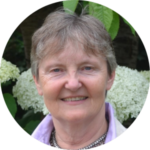
ERA-Net NEURON
Marlies Dorlöchter, PhD, is the coordinator of the ERA-Net NEURON, the “Network of European funding for Neuroscience research”. She initiated in 2007 this network of funding organizations from altogether 28 countries working together to jointly promote research into the brain and its disorders, mental and neurological. She is affiliated with the DLR-PT in Bonn, Germany, a project management agency acting on behalf of the German Federal Ministry of Education and Research. She is in charge of a number of funding programmes at national and international levels in the area of brain disorders. In this regard, she is leading the Coordination and Support Action BrainHealth that aims to prepare a future European Partnership on Brain Health. Marlies Dorlöchter is a neurobiologist by training and worked after her doctoral studies on various neuroscientific topics at universities in Bonn, Los Angeles, Shanghai, and Aachen.
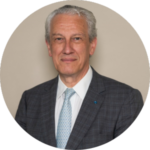
European Academy of Neurology
Paul Boon is senior full professor of neurology and Director of Neuroscience at Ghent University, Belgium. He is also chair of the Department of Neurology and Chair of the Division of Head, Movement and Senses, as well as professor of Neuromodulation, at Eindhoven University of Technology. As a board member and former chair of the EAN Programme Committee, he has actively contributed to the annual EAN congresses. He has also previously served as co-chair of the EAN Scientific Panel on Epilepsy, member of the European Journal of Neurology Editorial Board, and as a member of the EAN Scientific Committee. He is a Fellow of the European Academy of Neurology (FEAN).
Prof. Boon’s main neurological interests are clinical epilepsy, neurological sleep disorders, quantitative EEG and MEG analysis, neuromodulation and functional neuroimaging. He founded the 4Brain Laboratory for Clinical and Experimental Neurophysiology, Neurobiology and Neuropsychology at Ghent University.
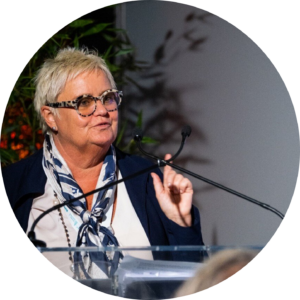
Director, Directorate to ‘People: Health & Society’, Directorate-General for Research and Innovation, European Commission
Irene Norstedt works at the European Commission where she is the Director responsible for the People: Health and Society Directorate within the DG for Research and Innovation.
The People Directorate works towards the development of a healthy, safe, more equal, free, open and fair society, where the voice of the citizen and different communities are better heard.
Irene has been at the European Commission since 1996, and has worked on various aspects of research in life sciences and particular health research throughout her career in the Commission. Areas of particular interest have been the set up of the public private partnership the Innovative Medicines Initiative (IMI) and the International Rare Diseases Research Consortium (IRDiRC).
Prior to joining the European Commission, she worked for the Swedish life science company Biacore AB and at the Swedish embassy in London.
Irene studied at the Royal Institute of Technology in Stockholm and University of Sussex, and holds a Master of Science (MsC) in Chemical Engineering.

French Ministry of Economy and Finance
Dr. Françoise Roure is an economist, former civil servant in charge of Security and Safety Evaluation of Technologies at Conseil général de l’économie, Ministry of Economy and Finance… As the former Chair of OECD Working Party of Biotechnologies, Nanotechnologies and Converging Technologies, she prepared the adoption of the OECD Recommendation 457 for Responsible Innovation in Neurotechnologies in 2019. She is a member and represents the French Charter Committee for Responsible Development of Neurotechnologies at the Brain Innovations Day

Columbia University Irving Medical Center
Dr. Medalia is a Professor in the Department of Psychiatry at Columbia University Irving Medical Center and Director of Cognitive Health Services for the New York State Office of Mental Health. She is also a member of the Columbia University Academy of Clinical Excellence, and the founding director of the Lieber Recovery and Rehabilitation Clinic, a comprehensive psychiatric rehabilitation program for individuals with persistent mental illness. Professor Medalia has been instrumental in raising awareness about the need to address cognition as a central aspect of health related to functional outcome. She brought the concept of Cognitive Health to the field of Psychiatry and identified the need for the treatment of cognition to embrace an understanding of how motivation and learning interact. She developed the widely used Neuropsychological & Educational Approach to Remediation (NEAR) model of cognitive remediation, which has been disseminated worldwide. In 1998 she started Cognitive Remediation in Psychiatry, the largest annual international conference devoted to addressing cognitive health for people with psychiatric disorders. Professor Medalia is the founding director of www.teachrecovery.com, a website devoted to facilitating training of mental health professionals in cognitive health interventions for people with psychiatric disorders. She is a NIMH funded researcher, prolific author, and the recipient of numerous awards for outstanding leadership in psychiatric rehabilitation.
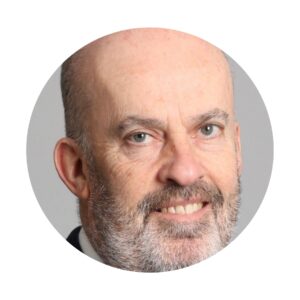
European Federation of Associations of Families of People with Mental Illness (EUFAMI)
John Saunders is the Executive Director at EUFAMI, an organisation of family member associations across Europe. John was the Director of Shine, Supporting People Affected by Mental Ill Health from 2001 until 2021. He previously worked in the field of Autism and Learning Disabilities.
He is Chair of the National Implementation Monitoring Committee, an Irish Government body established to oversee and report on the implementation of its new Mental Health policy – Sharing the Vision.
He was a member of the National Expert Group to review and update Mental Health Services – A Vision for Change, established by the Minister of State at the Department of Health and Children, Ireland, Chair of the second Implementation Monitoring Group, and Chair of the Irish Mental Health Commission.
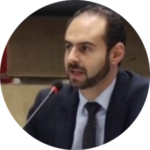
International Institute for Democracy and Electoral Assistance
Dr. Miguel Angel Lara Otaola is a practitioner and scholar with extensive experience in the field of democracy and elections. He has worked for the United Nations Development Programme (UNDP), the Overseas Development Institute in the UK, the Electoral Integrity Project at the Universities of Sydney and Harvard and Mexico’s Electoral Tribunal and National Electoral Institute. He was Head of Mission for Mexico and Central America and is currently Senior Democracy Assessment Specialist for the International Institute for Democracy and Electoral Assistance.
Dr. Lara Otaola holds a PhD in Politics from the University of Sussex, an MSc in Comparative Politics from the London School of Economics and an MPA in Public Administration and Public Policy from the Tecnológico de Monterrey. He has participated in the design and implementation of over 30 technical assistance, training and election observation missions in 17 countries in the Americas, Europe, Asia and Australia. He has delivered over 100 conferences, is a frequent radio and TV commentator and has over 60 publications in outlets including Newsweek, Foreign Affairs Latinoamérica and The Washington Post.
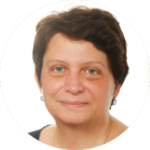
EFPIA
Magda Chlebus is Executive Director Science Policy & Regulatory Affairs at the European Federation of Pharmaceutical Industries and Associations (EFPIA), representing the R&D-based pharmaceutical industry in Europe.
Ms. Chlebus and her team are in charge of following policy and legislative developments that influence the research and regulatory environments for the healthcare industry in Europe. This includes public private collaborations (inter alia the Innovative Medicines Initiative), enabling sensitive technologies and the interface between new science and technology and regulation.
After a Master Degree in Applied Linguistics at University of Warsaw in 1992 and a carrier as translator and teacher, in 1995 she joined EFPIA, the representative voice of R&D-based pharmaceutical industry in Europe.
Her experience covers public and government affairs, including designing and implementing advocacy campaigns on EU legislation as well as implementation of the pharmaceutical legislation in new Member States.

Convergence Partners
Daniel is the Co-Founder and Managing Partner at Convergence Partners, a European HealthTech venture capital firm that actively supports the internationalisation and business development of its portfolio companies in the world’s largest healthcare markets. Convergence currently focuses on investment opportunities in Behavioural Health and is in the process of launching a EUR 100m Brain Health Fund. Daniel has more than 15 years of High tech venture capital investing – and company building experience, focused on sectors that have a positive impact on planet and society. From 2009 to 2017, Daniel was Investment Partner and Investment Committee Member at Jadeberg Partners, a pioneering VC firm in European Cleantech-investing. Prior, Daniel worked for 7 years at Man Group, one of the world’s leading alternative investment management firms, in London, Chicago and Hong Kong, focused on environmental technology investments. Before joining Man Group, Daniel worked at the EU headquarters of Intel Corporation. Daniel holds an MBA and BSc in Business Studies from Bayes Business School, London (formerly Cass Business School) and is a Chartered Financial Analyst (CFA).
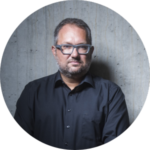
CEO, Epihunter
With more than a decade steering global digital initiatives at Bose, Tim Buckinx is no stranger to the power of technology. But it’s his personal journey as a father to a son living with refractory epilepsy that truly ignited his passion. Driven by this deep personal connection, Tim founded epihunter, a trailblazing digital therapeutics company aimed at transforming lives.
His vision? To leverage the untapped potential of digital technology in diminishing the everyday challenges posed by neurological disorders. Imagine glasses, which don’t cure bad vision but drastically reduce its impact, enabling people to engage fully with the world. Now, what if digital solutions could do the same magic for those grappling with brain disorders? Tim Buckinx believes they can—and he’s on a mission to prove it.

French Ministry of Higher Education & Research
Pascal MAIGNÉ is a project manager at the French Ministry of Higher Education and Research (MESR) and is part of the French delegation participating in the OECD working group on Biotechnologies, Nanotechnologies and Converging Technologies since 2016. Pascal Maigné obtained a PhD in Physics as well as an Habilitation à Diriger des Recherches at Sorbonne University. He subsequently held various research and higher education positions in Canada and France. At MESR, Pascal Maigné has coordinated the development of the French charter for responsible development in neurotechnologies. He is interested in the governance of emerging technologies presenting a strong potential for economic development and a source of benefits for society, but also touching on questions of ethics and social responsibility.

Institut de la Vision
Serge PICAUD has worked in the field of Neurosciences, precisely in vision and ophthalmology. After investigating retinal information processing, his interest has moved to visual restoration in blind patients. In a successful translation to the clinic, his team has validated a photovoltaic and wireless retinal prosthesis both ex vivo and in vivo on the primate retina, paving the way for clinical trials in patients affected by age-related macular degeneration. As an alternative to retinal prosthesis, he has evaluated optogenetic therapy on rodents and primates, opening the path toward clinical trials on blind patients affected by retinitis pigmentosa with a recovery of some visual performances. Moving toward visual restoration at the cortical level for patients with optic neuropathies, the team has provided a proof of concept in rodents for the application of sonogenetic therapy. These novel forms of non-contact and genetic-based brain machine interfaces relies on the expression of either a microbial opsin by gene therapy for optogenetics, or a mechanosensitive ionic channel for sonogenetics to render neurons sensitive to light or ultrasounds, respectively.
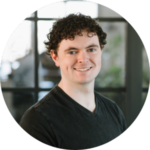
Syntropic Medical
Mark Caffrey is a co-founder and the CEO of Syntropic Medical, a company revolutionising the treatment of Major Depressive Disorder. Mark is an experienced medical device entrepreneur having led the development of several new technologies spanning oncology, medical imaging, and neurotechnology. He spent several years working at the acclaimed Translational Medical Device Lab in Galway, Ireland, working closely with clinicians to identify unmet clinical needs and develop solutions through a patient-centric approach. Having previously been the CTO at both IntellAblate and NeuriTec, Mark is now developing the Syntropic technology alongside Dr. Alessandro Venturino and Prof. Sandra Siegert with the goal of providing an effective solution to patients suffering from treatment resistant depression.

BrainTale
Dr Camille de Solages is the Head of Product at BrainTale. She has over 15 years of experience in the biotech, medical device and e-commerce industries, in both start-up and established companies. She has served as product manager and director in several neurotechnology companies in France and in the US. She holds a PhD. in Neuroscience from Sorbonne University and a Master’s in Engineering from AgroParisTech.

Brightmind.AI
Florian Lerchbammer-Kreith has worked in management consulting for over 5 years at BCG focusing on MedTech, Private Equity and Corporate Finance. He specialized in International Business and Finance, particularly in M&A and valuation and holds an MBA from INSEAD. Florian previously co-founded a system community platform for fertility treatments abroad.
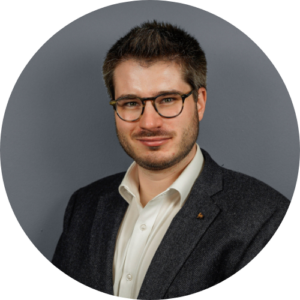
QV Bioelectronics
Christopher is a biomedical engineer with expertise in medical device design, biomaterials, and bioelectronics. In 2018, he completed a PhD in regenerative medicine at The University of Manchester, where his research focused on developing novel graphene bioelectronic devices and using electrical stimuli to control cell behaviour.
A passionate entrepreneur, Christopher is now the CEO of QV Bioelectronics, overseeing the company’s business and technical development objectives. He is a Chartered Engineer (CEng) and was also part of the latest cohort of the Royal Academy of Engineering’s Shott Scale Up Accelerator programme for business leaders in high-growth engineering SMEs.
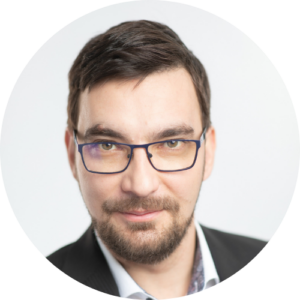
CREATe Therapeutics
Tamás is a pharmaceutical R&D expert and holds a PhD in Neurobiology. He has 15 years of experience in the pharmaceutical industry in various positions: researcher/developer, project manager, research team leader, and business development manager. His experience embraces the full non-clinical R&D process in various types of projects (small molecules, biologics, etc.). He participated several projects in either research or development phase that have later been tested in clinical trials.

Neurocentury
Paweł Świeboda is Founder of NeuroCentury, a brain health hub and advisory company based in Brussels. He is Member of the Steering Committee of the Brain Capital Alliance and the Strategic Council of the European Policy Centre. In August 2023, he had completed his term as Director General of the Human Brain Project and CEO of EBRAINS AISBL. In this capacity, he oversaw the building of the Research Infrastructure for the study of the brain – EBRAINS. He is a contributor to the OECD Neuroscience-Inspired Policy Initiative. In his earlier role, he was Deputy Head and Head of Research of the European Political Strategy Centre at the European Commission. He had served on the European Commission’s Sounding Board on the EU’s Science, Research and Innovation Performance and the Global Agenda Council on Europe of the World Economic Forum. He is an advisor to European and global companies and policy organisations.

European Multiple Sclerosis Platform
Elisabeth Kasilingam is currently serving as the Chief Executive Officer of the European Multiple Sclerosis Platform (EMSP) and as Vice-President of the European Patients’ Forum. In these roles, she is highly committed to working towards better quality of life of patients with MS and other chronic conditions by the implementation of successful, results-oriented projects and policy campaigns and actions. Elisabeth entered the European political arena more than 15 years ago, pursuing her interests in the field of human rights and specialising in the health and social sectors.
In her work with EMSP, Elisabeth has been developing capacity-building programmes to support the further development of national MS patient organisations and health and social advocacy campaigns, as well as engagement activities to develop young patient advocates.
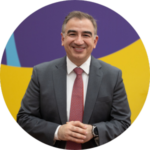
Merck
As Global Business Franchise Head for Neurology and Immunology at Merck Healthcare KGaA, Darmstadt, Germany, Dimitrios is leading a cross-functional team that is responsible for the development, the strategy, and the commercialization of key assets in the relevant disease areas, with a greater focus in Multiple Sclerosis, where Merck aspires to be among the top leaders with the current in market portfolio as well as its pipeline.
Prior to joining Merck, in his most recent role, Dimitrios led the Global Commercial Launch for Kesimpta, as a Global Executive Marketing Director Multiple Sclerosis for Novartis. The Kesimpta launch has been widely assessed as one of the top launches across the pharmaceutical industry in recent years.
Dimitrios has ~25 years of experience in health care, starting his career as a physician and then joined the pharmaceutical industry assuming roles of increasing impact over the past 15 years. He has led cross-functional teams across Commercial, Medical & Development both globally and in multiple countries.
A native of Greece, he is a physician by training, with a Specialty in Internal Medicine from Evangelismos Hospital of Athens. He is continuously looking for opportunities for learning and self-development and for that reason he has recently concluded an executive program in leadership and commercial strategies at Wharton Business School, University of Pennsylvania.

Wise Angle
With an academic background in political economics, Valentina is an expert in European R&I project design and management in the field of public health and healthcare innovation. She has a vast experience in international project management and proposal writing under several R&I funding programmes (FP6, FP7, H2020, Horizon Europe). Her research interests focus on health and social care and cover public health policy design and intervention planning, social innovation and digital transformation of public services. In the last 12 years she has been working as Research Project Manager at different healthcare, research and industry organizations providing consultancy services to public administration bodies and non-profit entities.
Currently, she is the Senior Project Manager in charge of the large EU-wide Coordination and Support Action CORE-MD, led by the European Society of Cardiology, which is reviewing and coordinating research and clinical evidence on high risk medical devices in order to provide expert advice to EU regulators, notified bodies and industry. She is also Dissemination and Communication manager of the ALAMEDA project aiming at developing AI based solution for early risk detection and disease progression monitoring for neurological disorders.
At the European Connected Health Alliance (ECHAlliance), she has been the International Projects Director from 2019 to 2021, the Dissemination and Exploitation leader of the H2020 projects PULSE and SmartWork, and the Dissemination leader of the IMI2 Gravitate-Health project.
She is a registered expert reviewer and proposal evaluator for HaDEA and EISMEA.
In 2018, Valentina founded Wise Angle, a social research and consulting company based in Spain, which has been awarded several R&I grants and service contracts from EU institutions and European organisations. She has recently authored socio-economic studies for the EESC and the EU-OSHA on the human impacts of digital transformation, COVID-19 and mental health in the workplace.

Institut d’Investigacions Biomèdiques August Pi i Sunyer
Mavi Sanchez-Vives, MD, PhD, has been an ICREA Research Professor at the Institute for Biomedical Research August Pi i Sunyer -Hospital Clinic Foundation in Barcelona since 2008, where she leads the Systems Neuroscience group. Previously, she was a professor of physiology at the Faculty of Medicine and research group leader at the Institute of Neurosciences (Miguel Hernandez University-CSIC). She completed her postdoctoral training in the biophysics laboratory at Rockefeller University and in the neurobiology department at Yale University (USA). She has authored over 150 scientific articles. She has been principal investigator on more than 10 European projects, including the Graphene Flagship, where her team worked on new graphene brain interfaces. She led a work package in the Human Brain Project on “Networks underlying cognition and consciousness” She recently obtained an ERC Synergy project. Her main interests in neuroscience are the generation of rhythmic brain activity, brain states, neurotechnology, and neuromodulation.
Since 2004, Mavi has also used virtual reality, originally for sensory perception research and from a neuroscientific perspective. She has been one of the pioneers in researching “embodiment” in virtual bodies and its multiple applications, especially in medicine and psychology. Her team has shown that pain can be modulated through transformations of the virtual body and that virtual embodiment can be a powerful tool for movement rehabilitation. Furthermore, she has led the use of virtual reality for the rehabilitation of violent behaviors in intimate partner violence, an approach currently being used in rehabilitation programs in prisons.
Mavi is one of the co-founders of the company Kiin, which uses virtual reality in the area of diversity and inclusion.
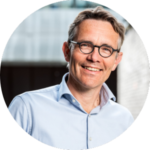
Netherlands Institute for Neuroscience
Pieter R. Roelfsema (MD, PhD) is director of the Netherlands Institute for Neuroscience in Amsterdam. He is professor in Amsterdam and affiliated with the Institute de la Vision in Paris. He received a NWO-VICI award and two ERC-Advanced grants. He studies visual perception, plasticity, memory and consciousness in the visual system of animals, humans, and with neural networks. He develops the neurotechnology for high-bandwidth visual prostheses for blind people, aiming to restore a rudimentary form of sight. Roelfsema coordinates the Dutch neurotechnology initiative NeuroTech-NL. In 2019 he co-founded the start-up company Phosphoenix that aims to develop a visual brain prosthesis.

Directorate-General for Research and Innovation
Joanna DRAKE has been the Deputy Director-General of the European Commission’s Directorate-General (DG) for Research and Innovation (DG RTD) since 2021. In this role, she provides overall assistance to the Director-General in the management of the DG, contributing to the definition, coordination and implementation of strategy and policy orientation. She is also Mission Manager for the EU Mission Cancer.
She was previously Deputy Director-General of DG Environment (2016-2021) where she chaired a cross-cutting Task Force spear-heading strategic positions for the DG on (inter-alia) the post-2020 Commission financial framework negotiations, Brexit co-ordination, the urban agenda and the future-proofing of the EU’s environmental acquis. Between 2010 and 2015 she was director for SME’s and Entrepreneurship in the DG for Internal Market, Industry, Entrepreneurship and SMEs (DG GROW). During her tenure in DG GROW she also led the Commission’s Task Force on The Collaborative Economy, New Business Models And SME’s.
By training, Joanna is a doctor of laws from the University of Malta, where she also lectured full time in the Department of European and Comparative Law. She acquired a post-graduate degree in Advanced European Legal Studies from the College of Europe in Bruges, Belgium. She held various legal and management posts in the private and public sector before joining the European Commission as head of the European Commission Representation in Malta in 2005. She also had a key role in the Malta-EU accession negotiations as member of the Malta-EU Steering and Action Committee.
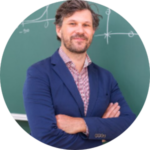
FH Joanneum
Sten Hanke (FHJ) is Assoc Prof. for health IT infrastructure at the eHealth Institute at the Applied University FH Joanneum. He has a master’s degree in electrical engineering and a PhD in medical science. The research focus has been health informatics, personal health, biomedical engineering as well as digital biomarkers. He has over ten years of expertise in coordinating different national and international research projects and initiatives involving academic, industrial and end users. He is a working member if the international ISO/IEEE 11072, European ISO/TC 215 and CEN/TC 251 healthcare and medical device communication working group. In terms of his professorship at the FHJ he is teaching lectures like mHealth, EHR and mIoT. He is currently coordinator of the H2020 project LETHE investigating digital biomarkers for dementia prediction and technical leader of the IMI H2020 project Trials@Home – investigating technology use in decentralized clinical trials. Sten Hanke has published over 100 publications and is well cited.

Italian MS Society – Italian MS Foundation
Paola Zaratin is the Director of Scientific Research for the Italian MS Society and its Foundation. She has over 30 years’ of experience working in Neuroscience research acquired in Public, Private and Patients’ Organizations, and over 15 years of experience in drug discovery and development. Doctor Zaratin’s professional education is on neuronal plasticity mechanisms underlying Multiple Sclerosis and neurodegenerative diseases. As coordinator (2018- 2021) of the EU Responsible Research Innovation H2020 MULTI-ACT project, Paola has led the development of a new research governance model and guidelines to engage patients as key stakeholder in multistakeholder research initiatives. Several international and national multistakeholders initiatives are applying the MULTI-ACT model. Paola is the co-chair of the global Patient Reported Outcomes Initiative for Multiple Sclerosis (PROMS). Paola is author of more than 80 publications (1987-2023).

Innovative Health Initiative
Elisabetta is the most senior scientific staff at IHI. She was born in Italy and trained as DVM, MSc in Animal Laboratory Science and PhD in Molecular Neurobiology first Italy and then in UK. Elisabetta has a solid scientific background acquired working as scientist in prestigious academic institutions in England and Scandinavia. Elisabetta has also large experience in R&I and in scientific management in the private sector, acquired via a series of positions at increasing level of responsibility in the pharma industry and in biotech in Denmark. From 2010 to the kick start of IHI in December 2021, Elisabetta worked at the Innovative Medicine Initiative and has a deep and long experience in alliance management, capacity building, mentoring, stakeholder engagement across the public-private spectrum, fostering and setting up of public-private partnerships, management of complex and large portfolio of international research consortia and on funding mechanisms and processes and administration of European Research programmes.

Vrije Universiteit Brussel
Charlèss Dupont is a registered nurse and graduated from the Vrije Universiteit Brussel in 2019 as MSc in Healthcare Management and Policy. In October 2017 she started working as a research assistant to implement quality indicators into the Flemish palliative care services. As of summer 2019 she is working on the CAPACITY project as a doctoral researcher developing an online advance care planning tool for people with dementia and their informal caregivers.
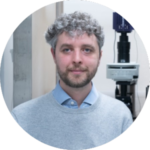
UCL Queen Square Institute of Neurology
Dr Gabriele Lignani is Professor of Translational Neuroscience at UCL Queen Square Institute of Neurology in the Department of Clinical and Experimental Epilepsy. He received his PhD in 2012 in Experimental Neuroscience from the University of Genoa and he did his first postdoc at the Italian Institute of Technology. Then he moved to UCL for his second postdoc and was awarded a Marie-Curie individual fellowship to develop new CRISPR-based editing tools to treat epilepsy. In 2018 he started his own lab as Epilepsy Research UK Emerging Leader to further develop novel gene therapies for epilepsy. He then obtained an MRC New Investigator Award to develop new CRISPR-based technologies and obtained several other discovery and translational grants. He is board member of several committees and Associate editor for Frontiers in Gene Editing and Contributing Editor for Epilepsy Currents; he also leads the Athena Swan initiative for gender balance in his Institute. Recently he has been awarded the Harinarayan Young Scientist Award by ILAE for his research in gene therapy for epilepsy, and the Michael Prize 2023 for the best scientific contribution to progress in the field of experimental epilepsy. The focus of his lab is to develop gene therapy and editing techniques for neurological disorders, to study the role of homeostatic plasticity in epilepsy and understand the basic epileptic mechanisms. He is co-founder of an UCL spin-out company which aims to bring gene therapy for epilepsy in the clinic.

President, GAMIAN-Europe
Péter Kéri was born in Budapest and graduated as a teacher in 1992. He obtained his second degree in Public Relations in 2007. After a brief period of teaching in primary and secondary schools, he pursued a certificate in advanced travel management. Over the course of ten years, he specialized in designing special incentive group travel for multinational companies in Hungary, which allowed him to travel to various countries around the world and gain exposure to diverse cultural environments. During this time, his outspoken blog gained popularity not only within his cultural circles but also across the country.
For several years, Peter has been working at the Hungarian organization Awakenings Foundation, where he is responsible for the foundation’s innovations and projects. In addition to his involvement with self-help groups, he has contributed his own innovations to ensure that people with chronic mental illness in different care systems can access daily assistance, similar to other chronic patients.
He states, “My personal experience of the life events contributed to my late onset psychosocial problems, dealing with mental illness at the age of 43 and my journey to overcome it have helped others learn how to navigate some of life’s most difficult situations.”
Peter has also co-authored numerous studies and research papers and has been honored with the Anti-stigma Award in Hungary.
For more than 5 years, Peter has been actively collaborating with GAMIAN-Europe, dedicated to sharing knowledge and promoting the best models of care, research, and self-help for all individuals. He is President of GAMIAN-Europe and Member of the Board of European Psychiatric Association, Founder of felepules.org the first digital peer-support booking system.
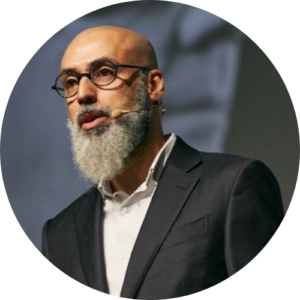
Swiss office of the Confederation of Laboratories for AI Research in Europe (CLAIRE)
Neuroscientist and public speaker in neurotechnologies, artificial intelligence, and responsible innovation. Dr Chavarriaga is senior researcher at the Zürich University of Applied Sciences (ZHAW) and head of the Swiss office of the Confederation of Laboratories for AI Research in Europe (CLAIRE). His work is focused on leveraging neuroscience, AI, and ethics for advancing responsible innovation and governance of human-centered technology.
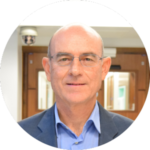
Dubowitz Neuromuscular Centre
Francesco Muntoni is a Professor of Paediatric Neurologist and the Director of the Dubowitz Neuromuscular Centre, at the UCL Great Ormond Street Institute of Child Health and Great Ormond Street Hospital for Children, London, UK. In the Institute and hospital he led the Novel Therapies Programme of the Biomedical Research Centre and between 2008 and 2022 and also led the Developmental Neuroscience Programme between 2008 and 2018.
Since 2008 he is the co-director of the MRC Centre for Neuromuscular Diseases at UCL.
Muntoni has an interest in pathogenesis, deep phenotyping, gene identification for rare neuromuscular conditions and translational research in Duchenne muscular dystrophy, spinal muscular atrophy and congenital myopathies. He is involved in several natural history studies and clinical trials. His research funded by the Department of Health, MRC and the European commission lead to the development and early clinical trials of 2 morpholino antisense oligonucleotides, now approved by FDA, that induce partial correction of the processing defect of the DMD gene in boys with Duchenne muscular dystrophy. He is the UK chief investigator for multiple clinical trials on DMD and SMA, including genetic therapies involving antisense oligonucleotides and AAV delivered transgenes.
In 2022 Muntoni was made director of the Genetic Therapy Accelerator Centre, a new gene therapy translational research partnership, based at Queen Square Institute of Neurology and in close collaboration with the UCL Great Ormond Street Institute of Child Health. This cross-faculty collaboration within UCL will drive forward an exciting evolving area with direct therapeutic benefits for patients with disabling neurological conditions.
In the last few years he obtained several international awards, including the 2022 Ottorino Rossi Award, the World Duchenne Organisation 2022 Leadership Awards and the 2023 European Paediatric Neurology Society Jean Aicardi Award.
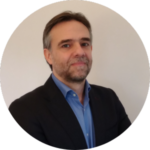
European Innovation Council
Enric Claverol-Tinture oversees the Medical Technologies and Medical Devices portfolio at the EIC, bringing over 20 years of experience in the field. Prior to joining the EIC he was Director General of the Catalonia Science Foundation (FCRi), the Barcelona-based public vehicle supporting research, innovation and science-to-market startups in Catalonia. He brought to FCRi and eventually to EIC previous hands-on experience in medtech startups, fundraising, technology development and commercialization. Enric was in his early career a scientist/entrepreneur, tenured academic head of the neuroengineering program at the Catalonia Bioenginering Institute (IBEC), trained at the California Institute of Technology and Los Alamos National Laboratory (postdoctoral fellow) in the US, and at the University of Southampton in the UK (PhD).

European Migraine & Headache Alliance
Elena Ruiz de la Torre is one of the leading patient advocates and researchers in the world. She is a tireless and passionate champion for people with headache disorders in the workplace and beyond, with her advocacy career beginning in her native Spain, and then expanding to Europe, and now the world. Elena leads the European Migraine and Headache Alliance, a nonprofit patient umbrella group that represents 33 patient groups from across the continent. She also co-led the creation of WHAM, the World Health and Migraine organization, a patient-led coalition open to patient groups around the world. She has co-authored several publications, and her list of current advocacy work is extensive, including the “Eurolight”, “My Migraine Voice Global Survey,” “Migraine at Work”, “access to care”, and the “Migraine Friendly Workplace” projects.
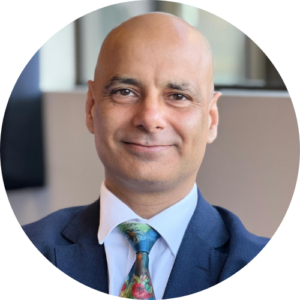
Professor of Paediatric Neurology, Royal Hospital for Children, Glasgow, UK; Board Member, European Paediatric Neurology Society; Board Member, European Brain Council
Sameer is Paediatric Neurologist at the Royal Hospital for Children and Honorary Professor, University of Glasgow. His interests include epilepsy, neurogenetics and innovation. He leads the Paediatric Neurosciences Research Group in the University of Glasgow and is clinical lead of the Scottish Genetic Epilepsy service. He is a Board Member & immediate past President of the European Paediatric Neurology Society (EPNS) and sits on the Board of the European Brain Council. Other roles have included Editor-in-Chief of the European Journal of Paediatric Neurology (2015-21 and Chair of the International League Against Epilepsy (ILAE) Commission on Classification & Terminology (2013-17). He co-designed vCreate Neuro, a smartphone video diagnosis and management web-application. Established in Glasgow in 2020 it is now used by >100 services in the UK and internationally.

Carthera
Frederic is the CEO of Carthera since 2014. He has an engineering background from ENST in Paris and an MBA from EM Lyon. After beginning his career at Siemens Healthcare in Nuclear Medicine and Radiotherapy, he held various management positions over 25 years at international level and has built solid experience in launching new medical technologies. As Business Manager at EDAP TMS, he led the launch of Ablatherm, the first device using therapeutic ultrasound for the treatment of prostate cancer. He was also CEO of Accuray Europe and launched the first CyberKnife robotic radiosurgery systems in Europe. Before joining Carthera, he was the Director of Strategy and Business Development for the Healthcare Incubator of Philips in Eindhoven.

European Medicine Agency
My background is in clinical psychiatry, and I practiced at the hospital in France (Paris) before joining the EMA where I am currently working in the Office for neurological and psychiatric disorders. One of my topics of interest is to try and understand better the various challenges of the clinical drug developments in psychiatry and how new technologies such as digital tools could help, so we try and develop better, safer and more personalised treatments for patients.

University of Padova
Barbara Di Camillo research activity is centred on the development and application of advanced modelling, data mining, and machine learning methods for high-throughput biological data analysis in the field of Bioinformatics and Health Informatics. This includes model/methods development and application in the field of systems biology, reverse engineering, and predictive medicine. In particular, she has been working on omics data studying metagenomics and transcriptomics regulatory networks and cell-cell communication networks from scRNAseq data. She is working on the use of dynamic Bayesian networks to model disease dynamics and the effect of the interaction of different variables (societal, clinical, environmental, and genetic) and their effect on complex clinical phenotype
More at: University of Padova & SysBioBig
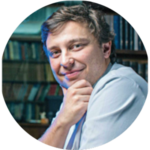
Universidade de Lisboa
Bruno Miranda obtained is Medical degree at the University of Lisbon and his PhD degree in Neuroscience at the University College of London (and as part of the International Neurocience Doctoral Programme at the Champalimaud Foundation). His graduation work was on the computational models and neural signatures for different reinforcement learning strategies which can be used to guide decision-making, under the supervision of Doctor Steven Kennerley and Professor Peter Dayan (2017 Brain Prize). From a clinical perspective he obtained his title of Specialist in Neurology and has undertaken in-depth training in patient-oriented research skills. His clinical research has been centred on cognition and neurophysiology in neurodegenerative and cerebrovascular diseases. At present, he is a researcher and assistant professor at the Lisbon School of Medicine of the University of Lisbon. His current research work is focused on how basic principles of human goal-directed behaviour and decision-making models can provide mechanistic explanations for human-environmental interactions in both health and disease. Moreover, he is actively involved in transdisciplinary collaborations and applications of such neurobiological principles to urban planning (neurourbanism) and architecture (neuroarchitecture). The experimental methods used to address these research questions include detailed behavioural analysis (e.g., biomonitoring and digital health), computational modelling, as well as neurophysiology and neuroimaging techniques. He is the leader of the Neuroscience Laboratory for this project, co-coordinator of the eMOTIONAL Cities project and co-leader of a workgroup in the European Urban Health cluster.

Sciensano
Dr. Irene Kesisoglou (F) is a senior researcher and project manager in the EU Health Information Systems unit at Sciensano since March 2021. She is working and leading tasks in several European projects, such as the HealthData@EU pilot project, the Joint Action Towards the European Health Data Space (TEHDAS) and the HealthyCloud project. She is, therefore, highly involved and has developed an expertise in the establishment of the European Health Data Space for secondary use, metadata and the FAIR principles. Irini holds a BSc in Biology, an MSc and a PhD in Neuroscience (University of Sorbonne Paris, France) since 2020. She has previously worked as a scientist in different academic settings, as a process engineer and manager in a large multinational company, as a trainee at the European Commission in DG GROW and as a project officer at the Paris Brain Institute.

Foundation Lygature
Vera works as a Programme Manager at Foundation Lygature, a not-for-profit foundation based in Utrecht, the Netherlands. Foundation Lygature sets up and manages large public-private partnerships, with the ultimate goal to make a long-lasting beneficial impact to the health of all.
Vera has been with Lygature since 2018, where she has been involved in the general management of several IMI-funded projects focussed on the development of innovative remote monitoring technologies and the discovery and development of novel digital endpoints (RADAR-CNS, RADAR-AD). In RADAR-AD, she coordinates the work package working on regulatory, ethics, and patient engagement. She is also leading a ZonMw-funded project on the regulatory hurdles of and opportunities of remote monitoring technologies in the context of pandemic preparedness. Next to that, she co-leads the patient engagement hub within Lygature.
In her current role she draws on knowledge gained during her work as a Regulatory Affairs Manager at Novartis pharma, where she worked before joining Lygature.
She was originally trained as a Medical Biologist at the Radboud University Nijmegen. After her studies, she obtained a PhD in the field of Molecular mechanisms of health and disease at the University of Groningen.

Universidad Politécnica de Madrid
Maria Fernanda Cabrera received her doctoral degree with distinction in Biomedical Engineering, as well as her Master’s and Bachelor’s degrees in Telecommunication Engineering (with two majors in signal processing and electronics) from Universidad Politecnica de Madrid (UPM). Since 2005, she has been serving as the innovation director of the Life Supporting Technologies research group at Universidad Politecnica de Madrid, where she holds the position of Associate Professor of Biomedical Engineering. Additionally, she holds the roles of Financial Director in the universAAL IoT Alliance and Secretary General of ACTIVAGE.ORG association. From 2014 to 2018, she served as a visiting fellow at the Image and Pervasive Access Lab in Singapore.
In addition to her teaching activities, Maria works as a project coordinator and technical manager in leading research, innovation, and policy initiatives aimed at contributing to the digital transformation of health. Her expertise spans a wide range of applications in the domains of ICT applied to health and social inclusion, including gender and inclusiveness, personalization of services, persuasive design, citizen and data science, digital interventions, open innovation, and e-accessibility. She is a national expert of the European Accessibility Resource Centre AccessibleEU. Currently, she is coordinating a European initiative focused on leveraging big data to support patients with amyotrophic lateral sclerosis and multiple sclerosis, along with their clinicians. She is also involved in another initiative focused on promoting gender equality in science, technology, and innovation.
Maria’s accolades include the UPM Extraordinary PhD Award in 2003, the National Civil Protection Research Award in 2006, and the International Vodafone Foundation Smart Accessibility Award in 2011. She serves as an Editorial Committee Member of the IEEE Open Journal of Engineering in Medicine and Biology, as well as an Invited Editor of the Springer Universal Access in the Information Society. She is a member of the IEEE and Society of Women Engineers, the American Telemedicine Association, and the Spanish Society of Biomedical Engineering. She has an extensive record of service and involvement in various conferences and symposia. She has authored over 100 papers in scientific journals covering a range of related fields.

Fari Institute
Carl Mörch is co-director of FARI – AI for the Common Good Institute (ULB-VUB) and a member of the AI Ethics & Law Board of the Federal initiative AI4Belgium. He is also a member of the Ethics Special Interest Group of CLAIRE and a co-chair of CLAIRE Brussels office.
Carl aims at fostering high-quality applied projects related to AI, Data and Robotics that could serve the Brussels Region and its inhabitants. With FARI, he wants to support initiatives that can reinforce education around these technologies, and could help bridge the gap with civil society. He was in 2020-2021 a postdoctoral fellow at the Université de Montréal and Mila – Québec artificial Intelligence Institute. He was awarded a Postdoctoral Fellowship by the International Observatory on the Societal Impacts of Artificial Intelligence and Digital Technologies (OBVIA) in 2020. He is also a lecturer and adjunct professor at UQÀM (Montréal, Canada). His personal research work is oriented towards the concrete application of high-level ethical principles in applied domains. In general, he is interested in the responsible development of technologies in society, health care (Psychology and Dental Medicine in particular).

City of Brussels
Rémi Foulon has a rich and diverse background in customer service, hotel industry and retail management before joining the city of Brussels in 2017. With a current position as Cultural Mediator for the Museums of the City of Brussels since 2019, Rémi is responsible for accessibility, inclusion, and outreach projects for all 4 museums (Brussels City Museum, Fashion & Lace Museum, GardeRobe MannekenPis, SewerMuseum). This entails creating and developing guided tours and mediation tools for specific publics. He is also in charge of the project Museum on Prescription. Furthermore, Rémi plays a pivotal role in organizing prominent events like the Museum Night Fever or Pride at the Museum, fostering engagement and community participation.

Professor, President, European College of Neuropsychopharmacology
Martien Kas is Professor of Behavioral Neuroscience at the Groningen Institute for Evolutionary Life Sciences at the University of Groningen, the Netherlands. The research of his group focuses on determinants of behavior, especially of behavioral strategies and of biological processes that are essential across species and that are affected in various neuropsychiatric disorders (e.g., social interaction and sensory information processing). By means of cross-species genetic analysis of neurobehavioral traits (of mice and men), they aim to identify genotype-phenotype relationships relevant to the development and treatment of autism spectrum disorders, Alzheimer’s Disease, major depression, eating disorders, and schizophrenia. These studies will lead to the understanding of conserved gene function in regulating essential behavioral strategies and will ultimately improve therapeutic and preventive strategies to contribute to healthy aging. In addition, he is Executive Committee Board member and President of the European College of NeuroPsychopharmacology (ECNP), Editorial board member of Mammalian Genome, and project coordinator of the PRISM1 and PRISM2 projects, two large EU Innovative Medicine Initiative (IMI) projects that aim to unpick the biological reasons underlying social dysfunction, which is a common early symptom of Schizophrenia, Alzheimer’s disease and Major Depressive Disorder.

Master of Ceremony
Lisa Burke is an experienced broadcaster having spent the bulk of her career presenting live television with Sky News, plus BBC, Channel 4, Fox News, many other Sky channels, RTE (Ireland) and RTL (Luxembourg). Her reporting has covered national and international assignments, documentaries and radio. In Luxembourg, Lisa created RTL Today which has now become the biggest English news platform in the country. Now, she hosts and produces a weekly radio show (also available with video) and podcast: ‘The Lisa Burke Show’.
Lisa is in high demand as a host and moderator, covering TED talks, all Luxembourg Space Agency work, finance, health, entrepreneurship, tech, science, European Institution events and many more. She is a public speaking coach, and launched the first Presenting & Debating Society at the University of Luxembourg. Additionally, Lisa is a sought-after voice-over artist. Whilst living in Abu Dhabi for two years, Lisa wrote for The National newspaper.
Other writing includes children’s science books. Lisa has been a science consultant and author with Dorling Kindersley since 2005. She studied Natural Sciences at Cambridge University, gaining a double first. Her specialism was chemistry. Lisa is on the Cambridge University Communications Working Group. She is also a board member for Angel Aid Cares, a Californian-based foundation raising aid for the care-givers of children with rare disease.
Lisa is a trained classical singer and pianist. She has two daughters.
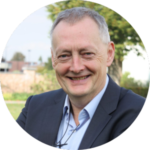
European Psychiatric Association
Geert Dom is the President of the European Psychiatric Association (EPA), he is Professor of psychiatry at the University of Antwerp and Medical Director of the psychiatric center Multiversum, Boechout, Belgium. With teaching interest and research focus on addiction psychiatry and public mental health, Prof. Dom is the Past President of the European Federation of Addiction Societies (EUFAS), the Flemish Association of Psychiatry and of the Belgian Professional Association of Medical Specialists in Psychiatry.
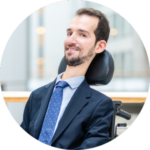
Greek MEP, EPP
Dr. MEP Stelios Kympouropoulos is a Greek psychiatrist and politician and has been serving as a Member of the European Parliament since 2019. He joined the European People’s Party. He is a member of the Committee on Employment and Social Affairs (EMPL), Committee on Petitions (PETI). He is also a Member of the newly established Subcommittee on Public Health (SANT). In addition, he is the EPP coordinator in COVI Committee; a substitute member of the ENVI Committee; REGI Committee and the Subcommittee on Human Right; and the co-chair of the Disability Intergroup of the European Parliament. He holds a master in “Mental Health Promotion – Prevention of Psychiatric Disorders” and a BA in Medicine from the Department of Medicine of the National and Kapodistrian University of Athens. In 2013, he pioneered the organization of the first Greek delegation to the pan-European event “Freedom Drive”, which became the springboard for the creation of the first Independent Living Organization of Greece, “I-Living!”, which is an urban non-profit company run exclusively by individuals with a disability.

Finish MEP, EPP
Aura Salla , PhD, Member of the Finnish Parliament. Before being elected, Salla worked as Managing Public Policy Director, Head of EU Affairs and the office at Meta (previous Facebook) Brussels.
Before joining Facebook, Aura was working in the European Commission as a Foreign Policy and Communications Adviser in the European Political Strategy Centre (EPSC), in-house think thank to President Jean-Claude Juncker. Previously she served as a Member of Cabinet of Jyrki Katainen, European Commission Vice President responsible for Jobs, Growth, Investment and Competitiveness.
Before joining the Commission 2014, she worked in consultancy company Recommended Finland as a Project Manager specialising in Public Affairs and EU Communications and before that as a speechwriter and political adviser in the Finnish Parliament. She also served from 2018-2020 as a Chairwoman of the Party Council of the Coalition Party Finland / the EPP.
Aura is a Doctor of Political Science from Turku University. Her dissertation focused on politicisation of the Europeans Commission during the euro crisis 2009-2014. She has also studied Economics of the European Union at the University of Leipzig, Germany and has been a visiting lecturer on European economics at Harvard University. Since 2017 Aura has been a non resident research fellow in the Circular Economy Research Center at École des Ponts Business School Paris.
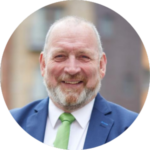
Irish Dementia Working Group
Limerick native Kevin Quaid was diagnosed with Lewy Body Dementia in 2017 aged 53, after being diagnosed firstly with Parkinson’s. He is a member of the Irish Dementia Working Group as well as vice chair of the European Working Group of People with dementia and co founder of Lewy body Ireland.
Kevin is an avid GAA fan and speaks about the fighting spirit of the Limerick hurling team in 2018 and the fact they never gave up. He brings that same spirit to his life with dementia.
Kevin is married to Helena. He has three children, three stepchildren and five grandchildren. This family man is an adventurer who spent time in Australia and loves to travel.
After his diagnosis Kevin realised there was a lack of information about his particular form of dementia and wrote a book called “Lewy Body Dementia, Survival and Me”. He was one of the first patients in the world to write a book about Lewy Body Dementia from the patients point of view as well as his families’ point of view. He has since written a second book called “I am KEVIN not Lewy”. He is now an active advocate and through his work with the Irish Dementia Working Group supported by the Alzheimer Society of Ireland raises awareness about the condition through speaking engagements and media appearances.
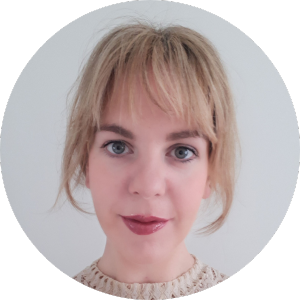
European Federation of Neurological Associations
Dr. Orla Galvin came to patient advocacy with a PhD in Medicine and background in drug discovery and design in both academic and industry environments. Transitioning to advocacy work at the umbrella patient organisation Retina International, Orla led high impact, multi-stakeholder socio-economic studies, patient preference studies, and accessibility studies across the globe assessing both rare and common conditions.
Orla is an internationally invited speaker to both research and clinical learned societies (for example EURORDIS, EU Retina, ERN-EYE), patient organisations, and industries on topics such as: Patient and public involvement in advocacy, research and policy, Research in advocacy and policy/evidence-based advocacy, Education in advocacy, Generation of real-world data, Patient reported outcomes and Health economics.
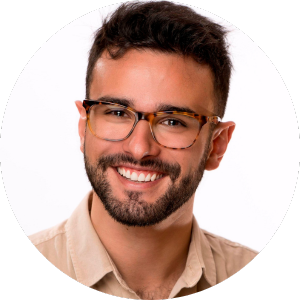
European Brain Council
Fernando Aguzzoli-Peres is a Brazilian journalist and bestselling writer, renowned for his work in the field of Alzheimer’s disease and other dementias. He has authored five books on the subject, targeting both adults and children, which have been published in four countries and sold approximately 500,000 copies.
Fernando is a Global Atlantic Fellow for Equity in Brain Health, at the Global Brain Health Institute – Trinity College Dublin. He is currently the Coordinator of Successful Aging and Dementia at the association Crônicos do Dia a Dia (CDD), an organization dedicated to mitigating the challenges faced by individuals with chronic diseases in Brazil.
Additionally, Fernando holds the position of Communication and Aging Coordinator at the International Longevity Centre Brazil (ILC BR). He is a two-time TEDx speaker, and one of the visionary partners behind the Walking the Talk for Dementia Experience and Symposium. This groundbreaking initiative brought together individuals with dementia, researchers, healthcare professionals, advocates, and policymakers from 25 different nationalities to walk 40 kilometers in Santiago de Compostela. The event aimed to raise awareness about dementia and foster collaborations among diverse participants
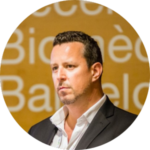
Broadreach Global
Christian is a business and innovation advisor in the biotech, health and pharma sectors, with 20 years strategic advisory, business creation, development and operational experience. His focus is business strategy, financing and business development for start-up and growth companies, and innovation policy for governments, university networks, and health systems. He founded the leading international biotech and health focused platform for connecting technology transfer, licensing and innovation office directors with serial entrepreneurs, industry and investors, over 10 years chairing more than 30 international summits on 5 continents, designed to the build expertise and capacity of tech transfer officers and startup and spinout CEOs to engage effectively with industry and investors. These summits were attended regularly by representatives of over 300 leading medical and life sciences universities and institutes world-wide and hosted by organizations such as the NIH, Wellcome Trust and Institut Pasteur. He was the lead rapporteur for the EC’s 3 year innovation in healthcare initiative, led a successful turn-around of a near bankrupt European biotechnology federation, coordinated the first European level entrepreneur training bootcamp for biotech founders/CEOs, developed the first pan-European biotech investment conference for start-ups in collaboration with the EC and EASDAQ (now Euronext), and convened the working group which led to some of the first formal collaborations and LP investments by large industrial biotechnology companies into venture capital funds.
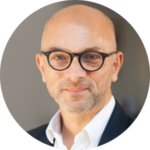
Good Governance Institute and FIPRA International
Dr Usman Khan is a health policy and management professional with more than 25 years experience. In the last decade he has held senior leadership roles in the UK and abroad including that as Executive Director of the European Health Management Association and the European Patients Forum. He is currently a Senior Advisor at the Good Governance Institute, a UK based consultancy and at FIPRA International, a Brussels based European public affairs consultancy. Usman holds three non-executive positions being the Chair of the Motor Neurone Disease Association, an Independent Governor at London Metropolitan University, and an NHS Independent Non-Executive Director at North Central London Integrated Care Board. Usman is also Visiting Professor in Health Management and Policy at KU Leuven, Belgium and teaches at New York University (London). He is a regular public speaker and writer on health policy matters and author most recently of Health Management 2.0 (Emerald Publishing).

European Brain Council
Professor Suzanne L Dickson is a neurobiologist and Professor of Neuroendocrinology at the University of Gothenburg. She graduated with a Ph.D. in Neuroendocrinology from the University of Cambridge in 1993, where she later became Senior Lecturer in Physiology. She is a leading figure in neuroendocrinology and works within many European Union and international organisations and societies to promote research, facilitate grant funding and training of Early Career Scientists. Her research into the neurobiology of appetite aims to unravel neurobiological pathways that respond to orexigenic signals, such as the hormone, ghrelin, and that drive feeding behaviours, not only food intake but also food choice, food anticipation, food reward and food motivation. This work involves mostly preclinical studies and includes behavioural tasks, viral vector mapping, chemogenetics and RNAscope. She is Secretary and Executive Board member of the European College for Neuropsychopharmacology, and also chairs ECNP’s Workshop for Early Career Scientists in Europe. She also is founder and co-chair of ECNP’s nutrition network and EBRA’s BRAINFOOD cluster.

CEO, E-Health Venture
Marius started his career at the Boston Consulting Group, and then set up the digital department of Proximus Luxembourg. Since 2019, he runs Belgium’s specialist health-tech incubator E-Health Venture, which brings together health & care incumbents to support innovative projects.

Startup Scout & Project Officer, imec.istart
Maarten has worked very closely with early-stage digital health companies through his previous role as Regional Manager at BlueHealth Innovation Center, an early-stage Digital Health incubator in Belgium. Currently, he is the start-up scout at imec.istart, a leading tech accelerator for early-stage start-ups in Europe that has supported and invested more than 260 companies across the last 10 years.

Founder of Panakes, Diana has over 20 years of international experience in managing Venture Capital investment funds, through which she invested in over 60 start-ups across Europe. After several years of experience in the strategic consultancy sector at A.T. Kearney, Diana worked as Senior Advisor in the Investment Banking division of Lazard. In 2001 she co-founded 360 Capital Partners, a leading pan-European Venture Capital firm. She is a member of several national and international committees (EU and US) for the selection and promotion of innovative start-ups. She has also co-founded and chaired the International Venture Club, an association that brings together the main European venture capital firms. She is frequently involved as Scientific Advisor to Life Sciences conferences and acting in or chairing juries for the allocation of public funds at Italian, European and US level (i.e. Premio Marzotto, Life Star Awards, EIC H2020 and National Cancer Institute-SBIR initiative).

Frédéric Destrebecq is the Executive Director of the European Brain Council since October 2014. In this capacity, he is responsible for providing strategic direction and leadership while managing the day to day operations of EBC and its ongoing relationships with its member associations and other stakeholders, as well as representing the organisation in various European and national forums.
Fred holds a Master Degree in Political Science and International Relations from the Université Catholique de Louvain (Belgium). He also studied at the Institut d’Etudes Politiques (Paris) and University of Wales College (Cardiff), in the framework of the former EU Socrates exchange programme. Prior to EBC, Fred served the European Union of Medical Specialists (UEMS) as Chief Executive Officer, and previously as Director for European Affairs.
In 2017, more than 300 million people worldwide were estimated to suffer from brain disorders, imposing an economic burden of nearly 900 billion EUR in patient care. Therefore, the urgent need of the hour is to identify creative interventions to heal the brain and cure the mind. The goal of this breakout session is to bring together a world-leading group of panelists to discuss creative interventions and the interface of neuroscience and artificial intelligence to identify therapeutic treatments for brain disorders.
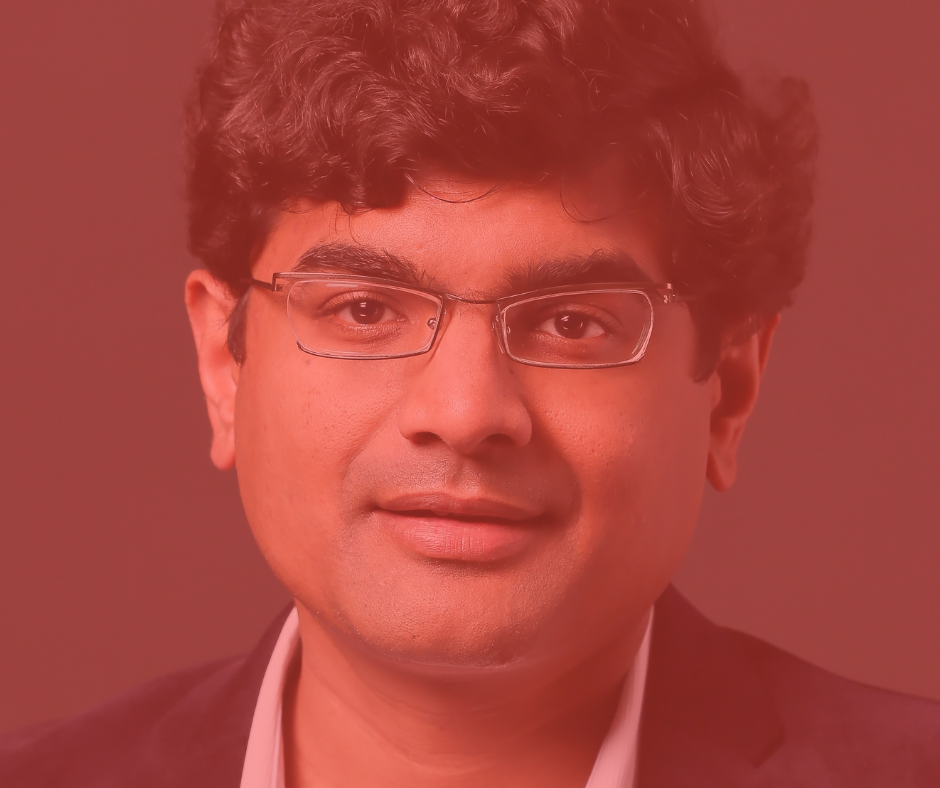
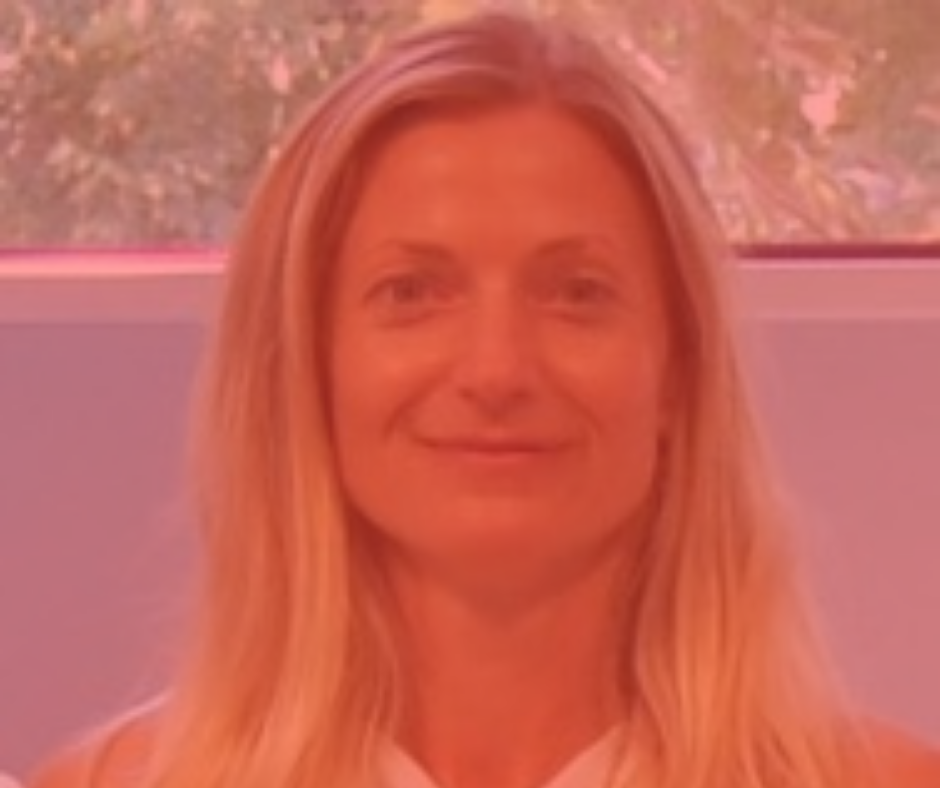
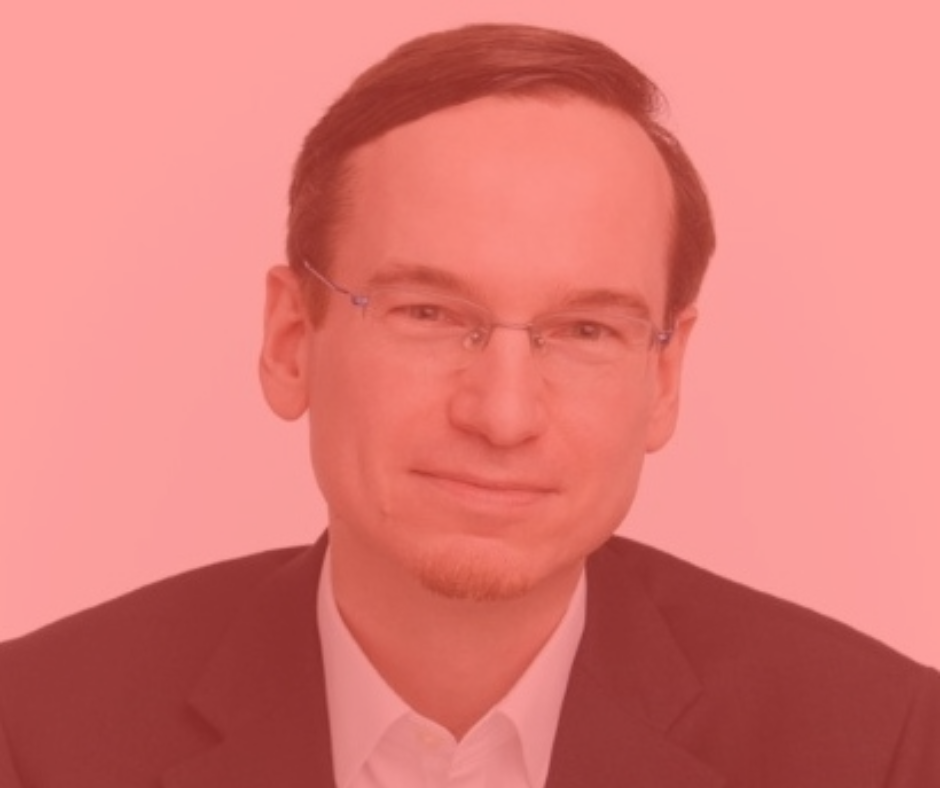
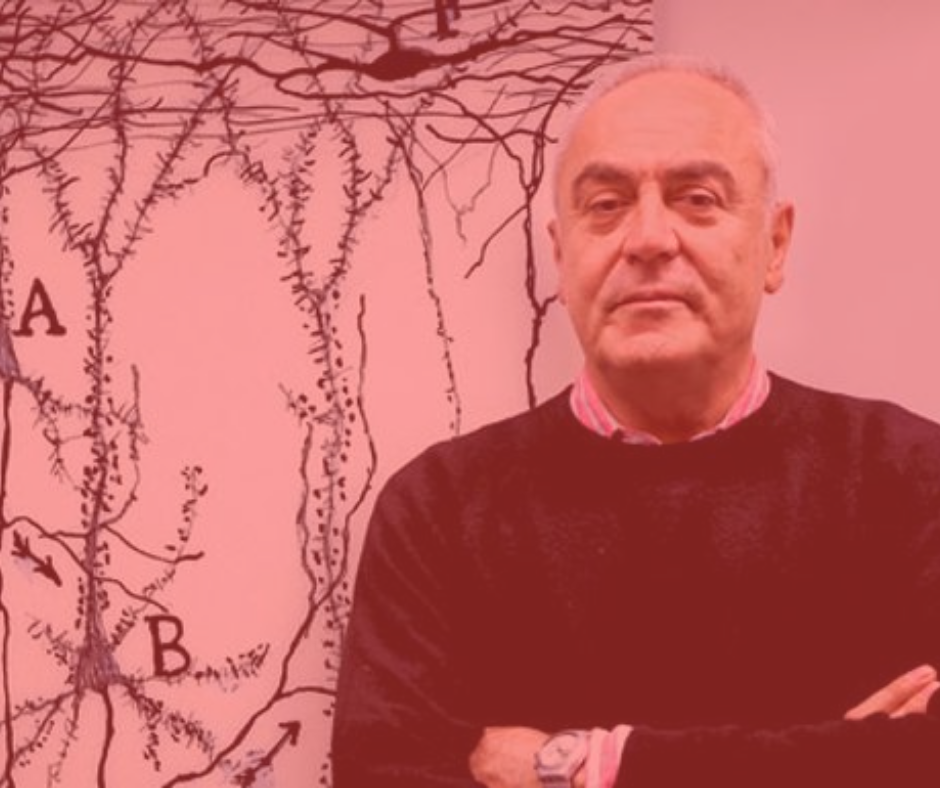
With the increased access to easy-to-use neurostimulation devices for home use, in combination with an increased datastream from users physical and cognitive behaviour, how can we best combine the two to create new cognitive treatment paradigms?
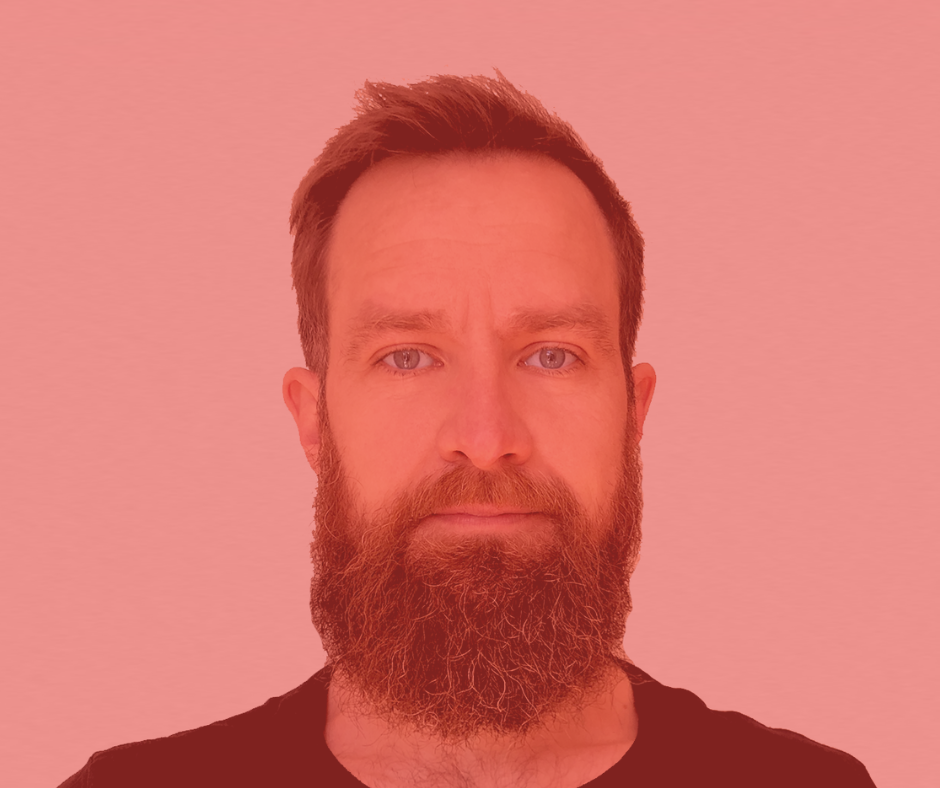
Postoperative delirium (POD) affects 20% of surgical patients over the age of 60, making it the most prevalent post-surgical complication in older patients. It has severe adverse outcomes: doubles the risk of nursing home admissions, increases the risk of mortality by 25%, and often continues into long-term cognitive decline where 38% are still suffering nine months after surgery.
Once the symptoms of POD appear, it’s too late. The key to postoperative delirium is prevention, shown to decrease the incidence by 40%. This talk will present the results of a collaboration spanning 24 hospitals, two universities, and the start-up PIPRA addressing this urgent unmet need. Together, we developed an AI-based software able to identify patients at risk before surgery, allowing for preventive measures to be taken.
Are you a policymaker, clinician, researcher, investor or brain health enthusiast? Join this talk to hear what can be done today and how you can help prevent POD.
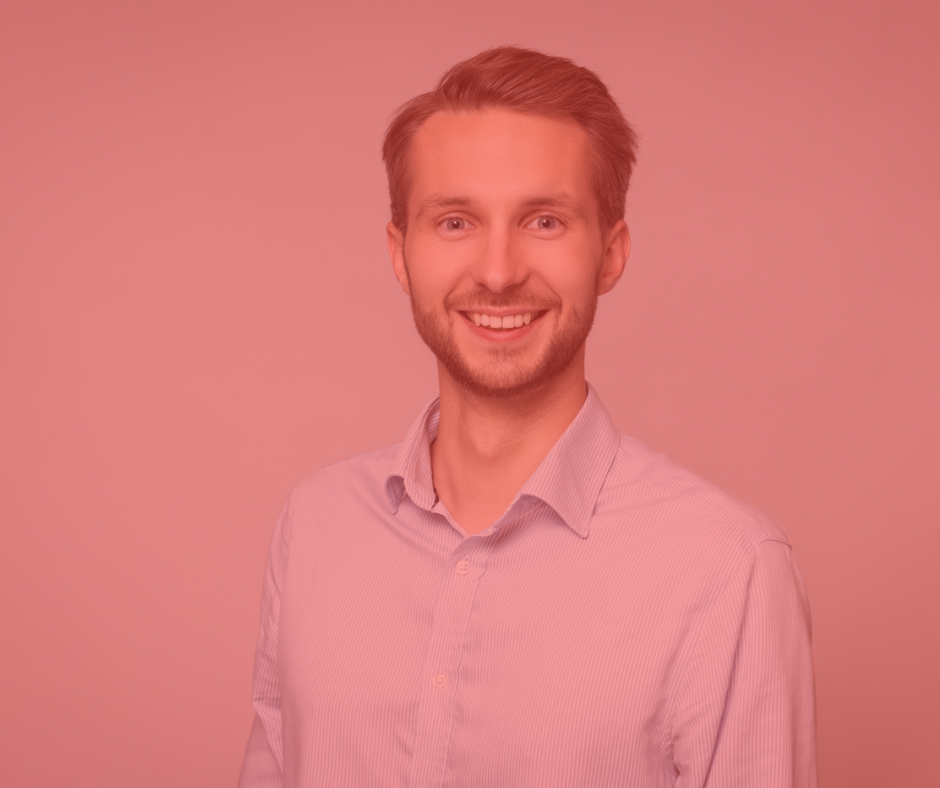
Apart from the recording of electrical brain oscillations using EEG or MEG technology, optical radiation can be used to track cerebral blood flow and oxygenation as a measure of brain activity. Recent progress in sensor technology, miniaturisation, and user-friendliness have made optical brain imaging a scalable technology for D2C and clinical neurotech products. Yet, this technology has received less attention than EEG, where we have already seen a rise in D2C and clinical products on the market. Like EEG, optical brain imaging is easy to use and hardware can be produced at low cost, but it offers additional advantages: more precise localisation of brain activity and higher tolerance to user movements allow for a wider range of product use cases. With companies beginning to exploit these advantages, optical brain imaging is poised to shape the neurotech industry in the near future. This talk will be dedicated to this new trend. We highlight recent advancements in the field with views on applications, such as brain-computer interfaces and neurofeedback, and discuss the role of optical brain imaging in the brain innovation field. What can optical brain imaging already be used for today? What are the limitations? What are potential future applications and products?

Walk With Path will present: “The use of smart insoles to improve gait and mobility in people with neurodegenerative conditions”. Our latest product in development, Path Feel, is a smart pressure-sensing insole which provides patented haptic feedback to the soles of the feet in response to pressure.
This improves sensory perception and proprioception by enhancing the sensation of the ground. Simultaneously, the insoles can analyse gait data to provide personalised care and empower users to take control back in their life via data-driven app and adjoining health care professional online dashboard. Walk With Path aims to understand how to incorporate wearables into care pathways to improve service provision, personalise care and provide tailored patient education.
Walk With Path mandates a patient-centred design process with the mission to improve the quality of life of people living with neurodegenerative conditions, with specific interest in stroke, multiple sclerosis and cerebral palsy populations.
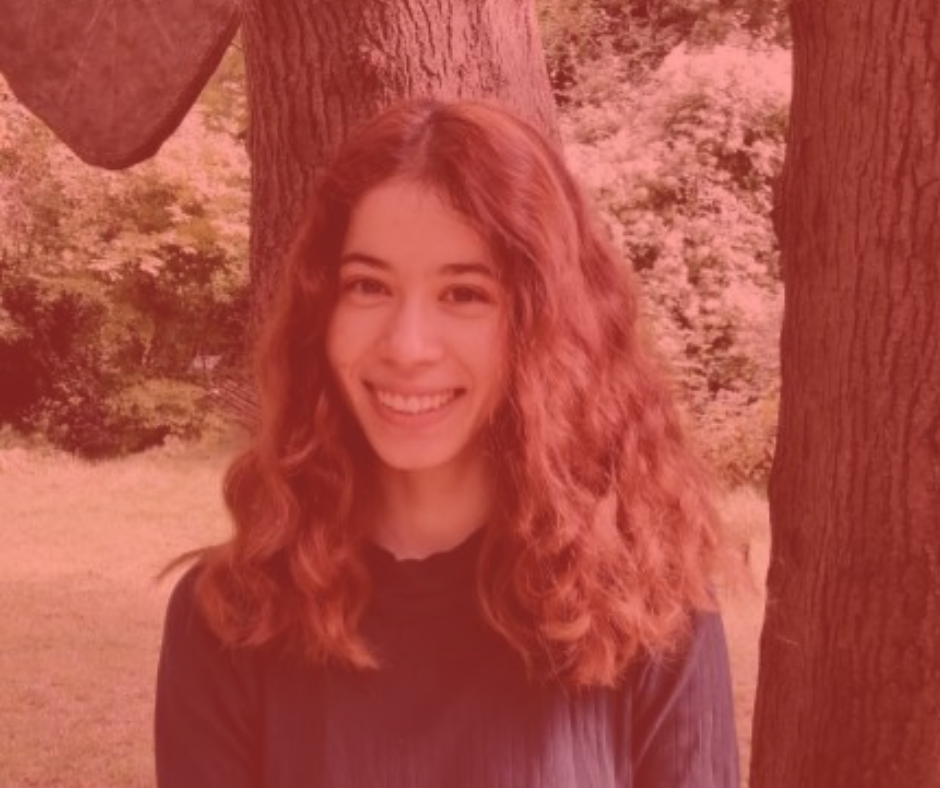

The peer-review system for academic papers has a long yet quite conservative history. Yet, nowadays trends and changes in the speed of scientific processes are challenging the old peer-review system. Today, there is an increased need for speed to publish, yet scientists wish to maintain (at least the appearance of) the rigorous scientific quality of their results. This speed-quality trade-off results in several issues to be solved In my talk I will sketch out a new platform that aims to solve the above-mentioned challenges in a novel way. The idea is to provide a platform for neuroscientists working in the same field to start a study with peer-reviewed methods, upload and share their data and write together scientific papers. The peer-reviewed method would be beneficial for the quality of the research output while the data-sharing process could be beneficial for the pace of the publication process. The last part of the talk will be a brainstorming session about the possibilities of the platform. Feel free to contribute and get some ideas by checking scirec.org!
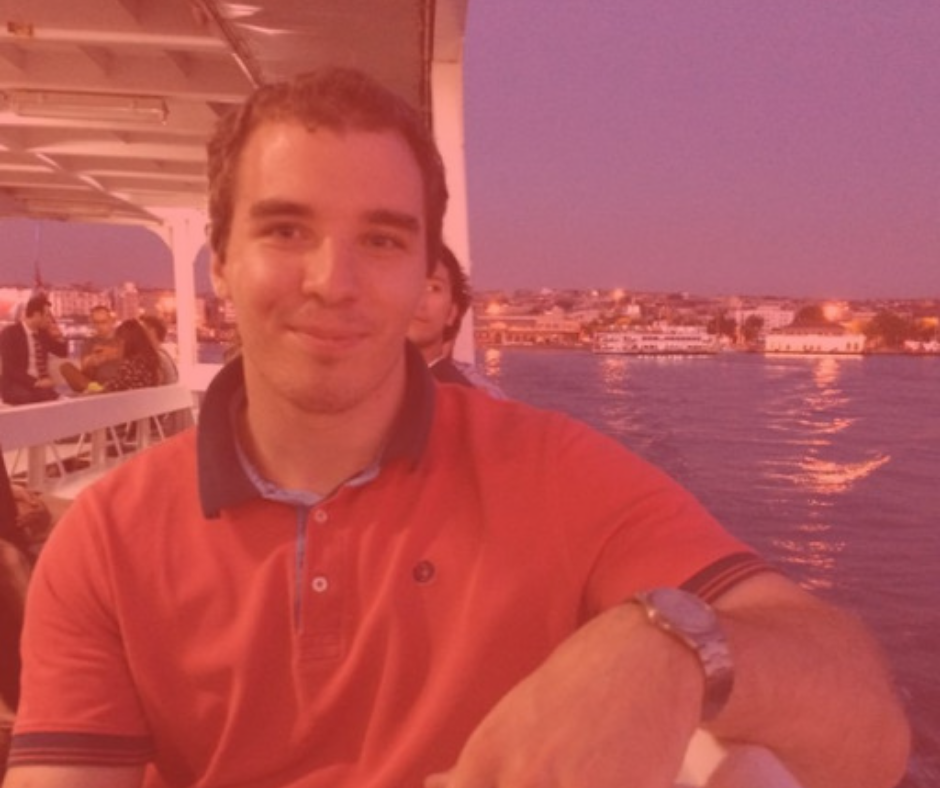
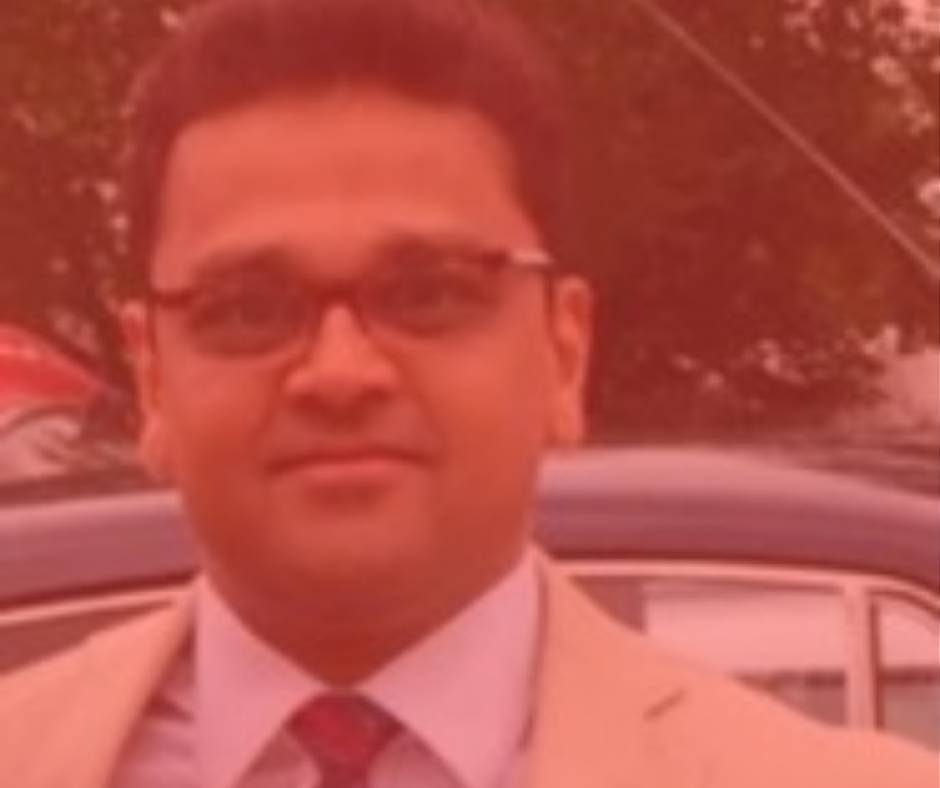
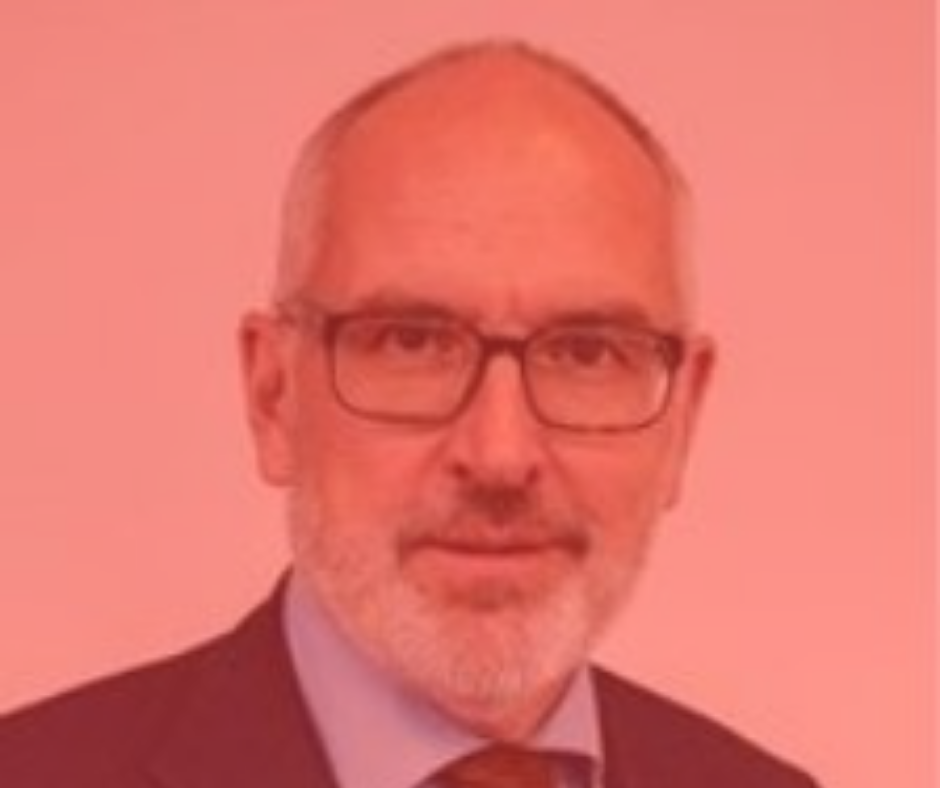
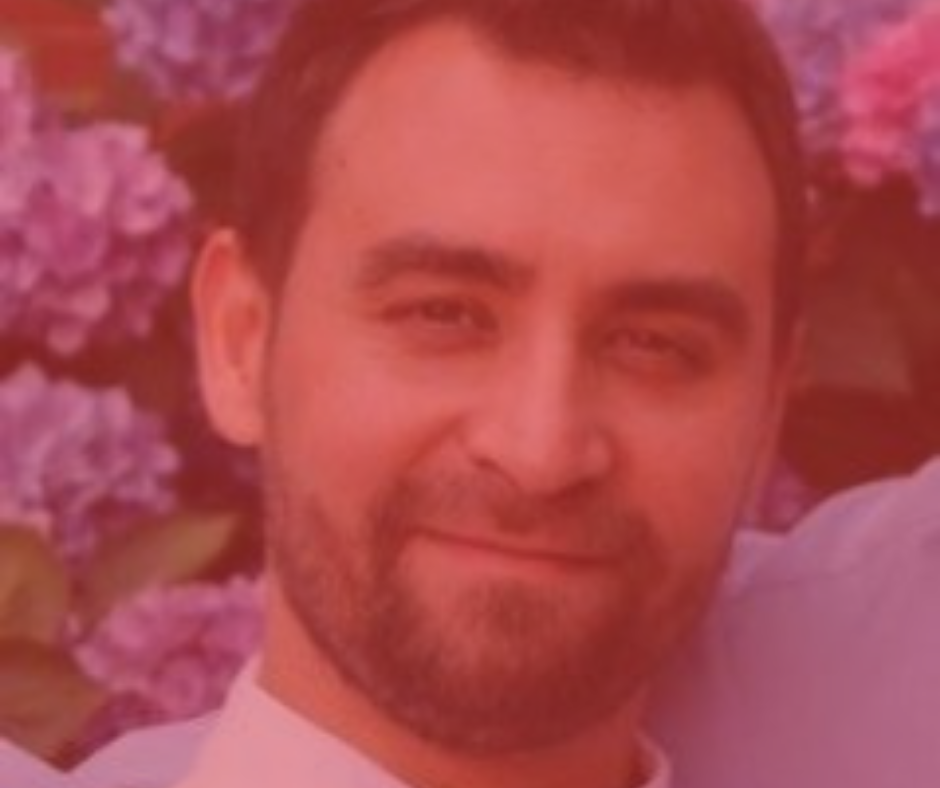
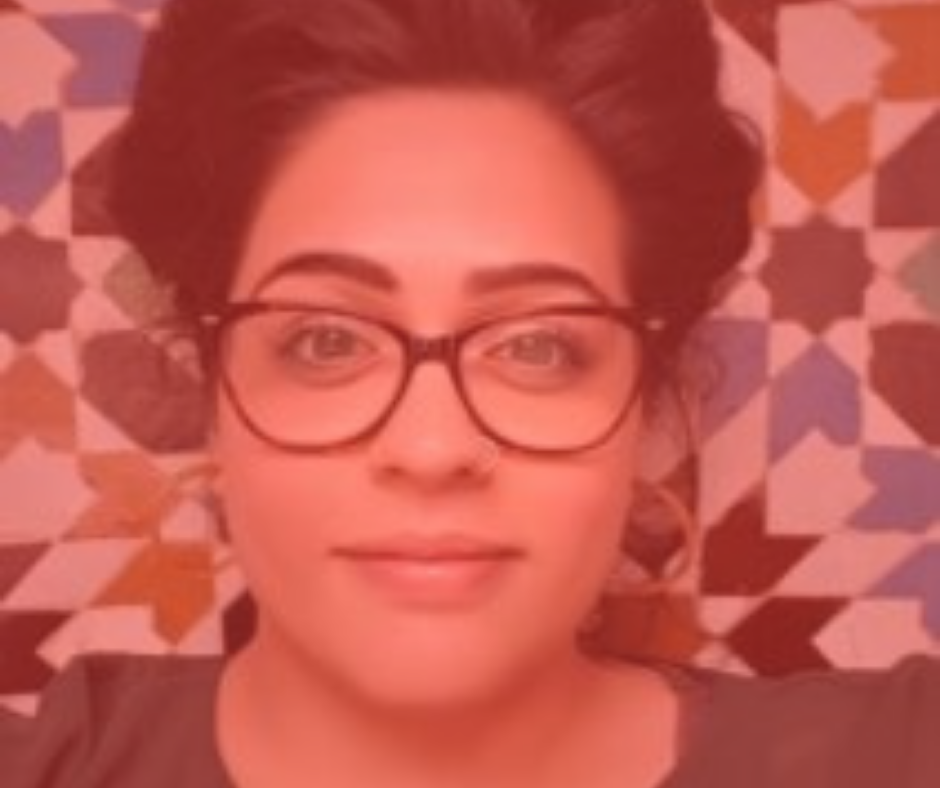
Amyotrophic lateral sclerosis (ALS) is a severe and fatal neurodegenerative disease characterized by an asymptomatic phase of undetermined duration while it takes on average about nine to 12 months for someone to be diagnosed with ALS. The time from the asymptomatic phase to the first notice of symptoms could last for years. However, there is no specific biomarker in the presympomatic phase, and there is no specific test for precise diagnostics in the symptomatic phase. At the early stages, ALS shows high clinical variability in presentation and prognosis and overlapping symptoms with other neurological disorders, so clinicians at that stage tend not to make such diagnosis. All of this leads to a diagnostic delay from several months to years causing progression of the disease that lead to complete patient disability and death without the possibility of successful treatment. Early, precise and more specific diagnosis is needed for adequate and personalized treatment.
We base our approach on decades of our pre-clinical research of ALS patient sera that led us to identify a set of novel biomarkers and a detection technology for early-stage ALS progression. We are developing a portable stand-alone clinical “lab on a chip”, NIMOCHIP® for disruptive in vitro diagnostics of ALS that could be further developed to diagnose other neurological disorders with an inflammatory component (e.g. multiple sclerosis, Parkinson’s disease, Alzheimer’s disease, Huntington’s disease,). NIMOCHIP® contains multiple chambers with seeded living cells (of animal or human – cell line origin) labeled with fluorescent probes, that are treated with nanoliter volumes of patient’s samples (purified immunoglobulins G – IgGs from patient sera).
NIMOCHIP is using “optics on a chip” technology that could measure a set of physiological fluorescence molecular biomarker signatures (intracellular calcium, reactive oxygen species – ROS, pH, ion channel responses). The acquired optical signals are analyzed using specialized software to obtain a personalized biomarker signature and to generate a detailed diagnostic report for the clinician.
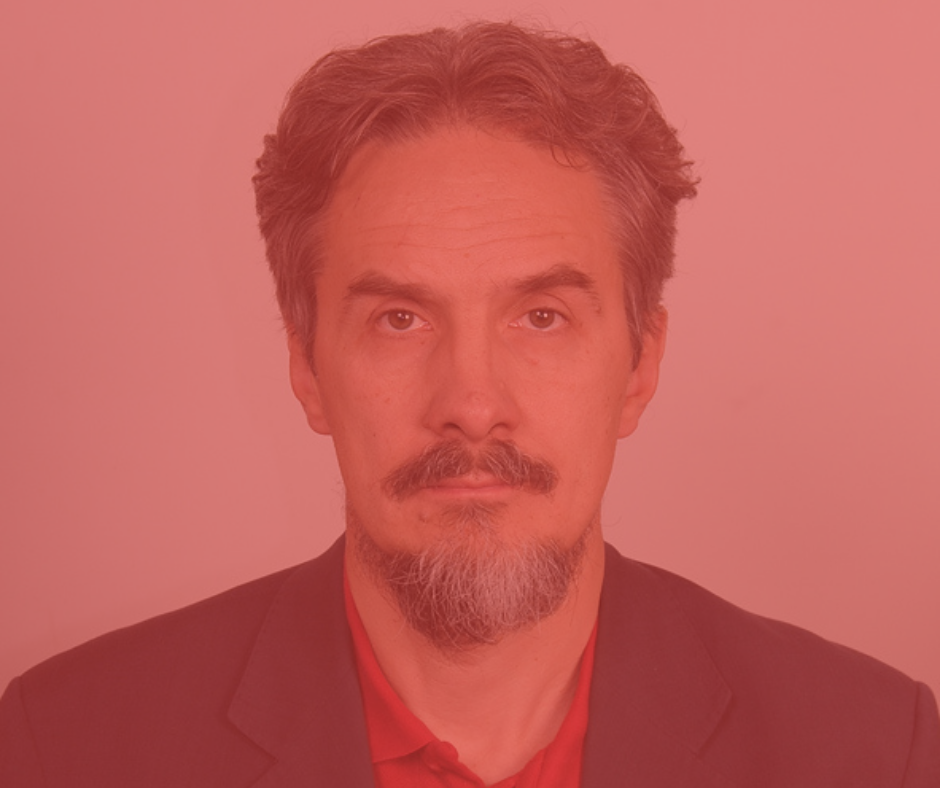
A discussion panel with leading European venture capital investors focused on or actively investing in CNS, neurology, psychiatry and brain related innovations, including both bio-pharma and imaging, AI, medtech and digital technologies. What are their specific investment interests, and why? What are their criteria, and at what stage do they engage and invest? How does this vary according to indication and approach? What data do they want to see and what other factors paly a key role in the decision to invest? How is risk assessed and managed, and are there greater barriers to investment in some areas of brain health than others, and why? Questions from the audience will be encouraged.
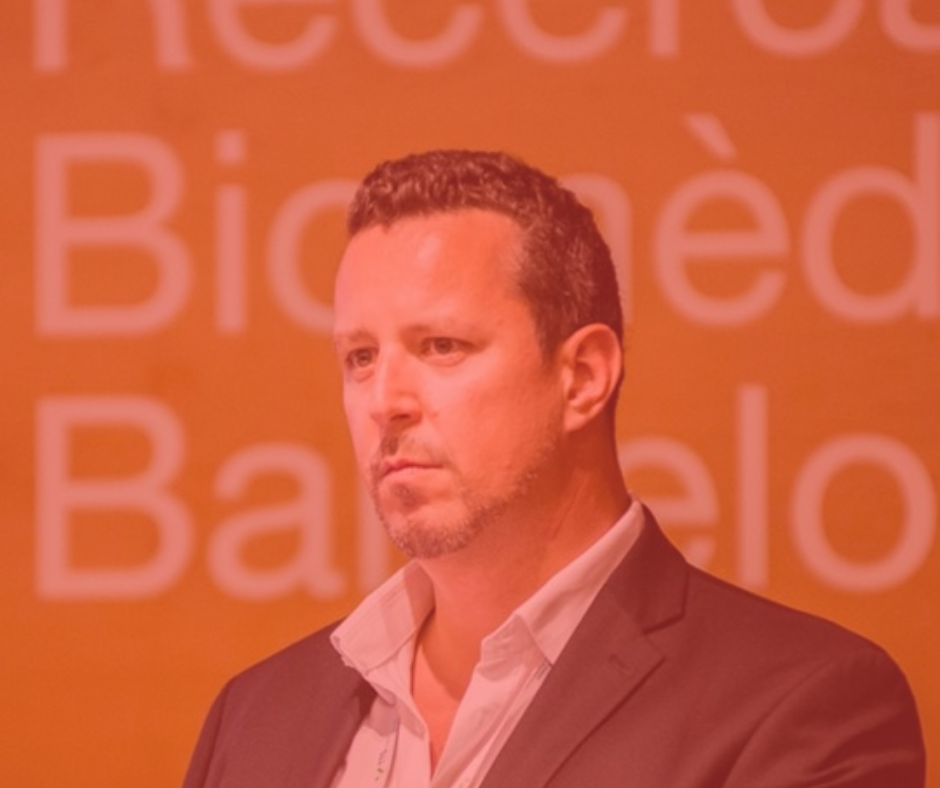

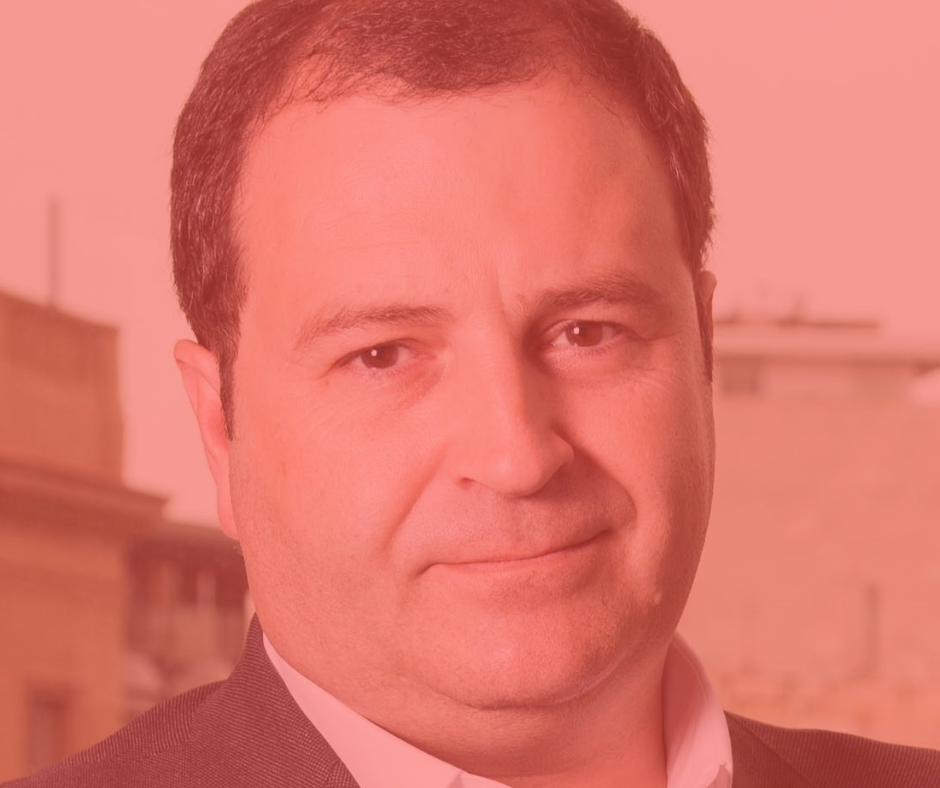
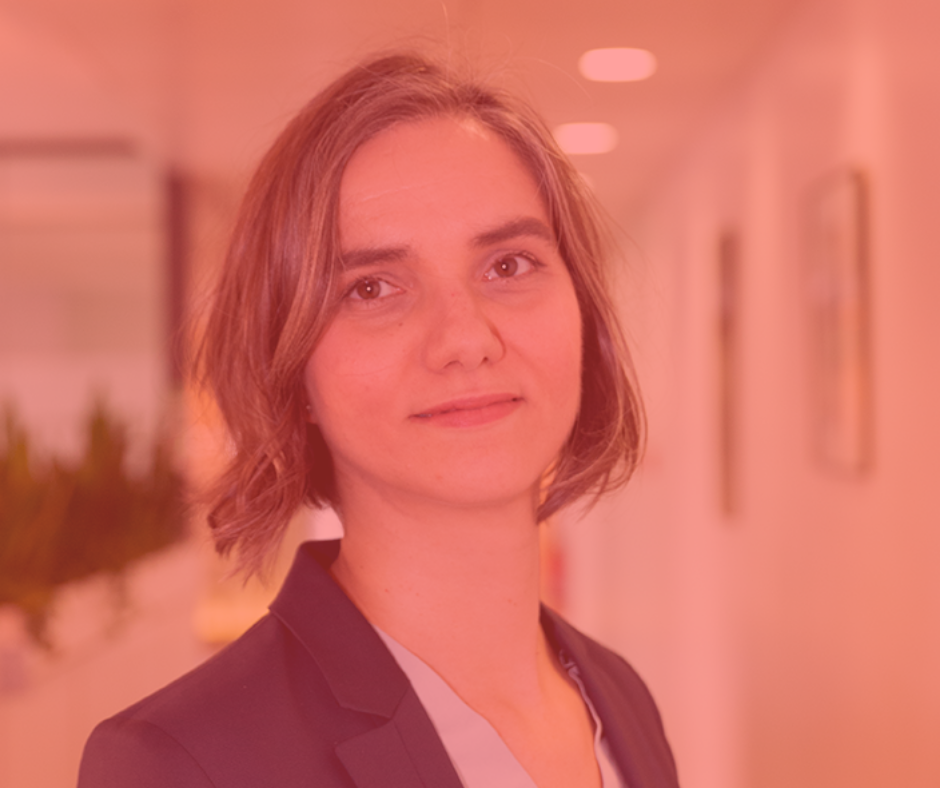
An interactive panel discussion with senior representatives from large healthcare, technology and pharmaceutical companies. Discussion will focus on their application of imaging, Artificial Intelligence and digital technologies in the brain health space, their strategies and research and partnering interests. What are they developing internally and what are the priorities for external R&D and innovation partnering? In what areas are they keen to engage with partners, at what stage, and under what criteria? What areas are considered of greatest potential, and where are the most important challenges? Questions from the audience will be encouraged.

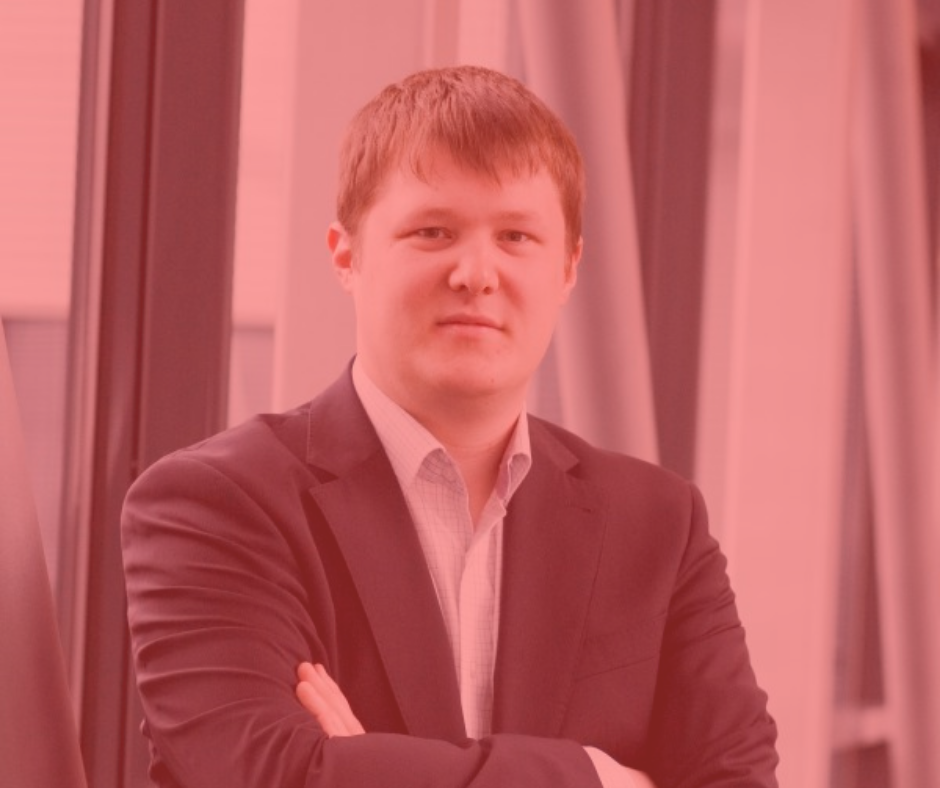

An interactive panel discussion where senior representatives from pharmaceutical companies will discuss their organizations areas of interest in neurology and psychiatry, their priorities for sponsored research, collaboration and partnering, criteria, and the approach to relationship development and collaboration. Special attention will be paid to challenges in the sector and addressing unmet medical needs. Questions from the audience will be encouraged.

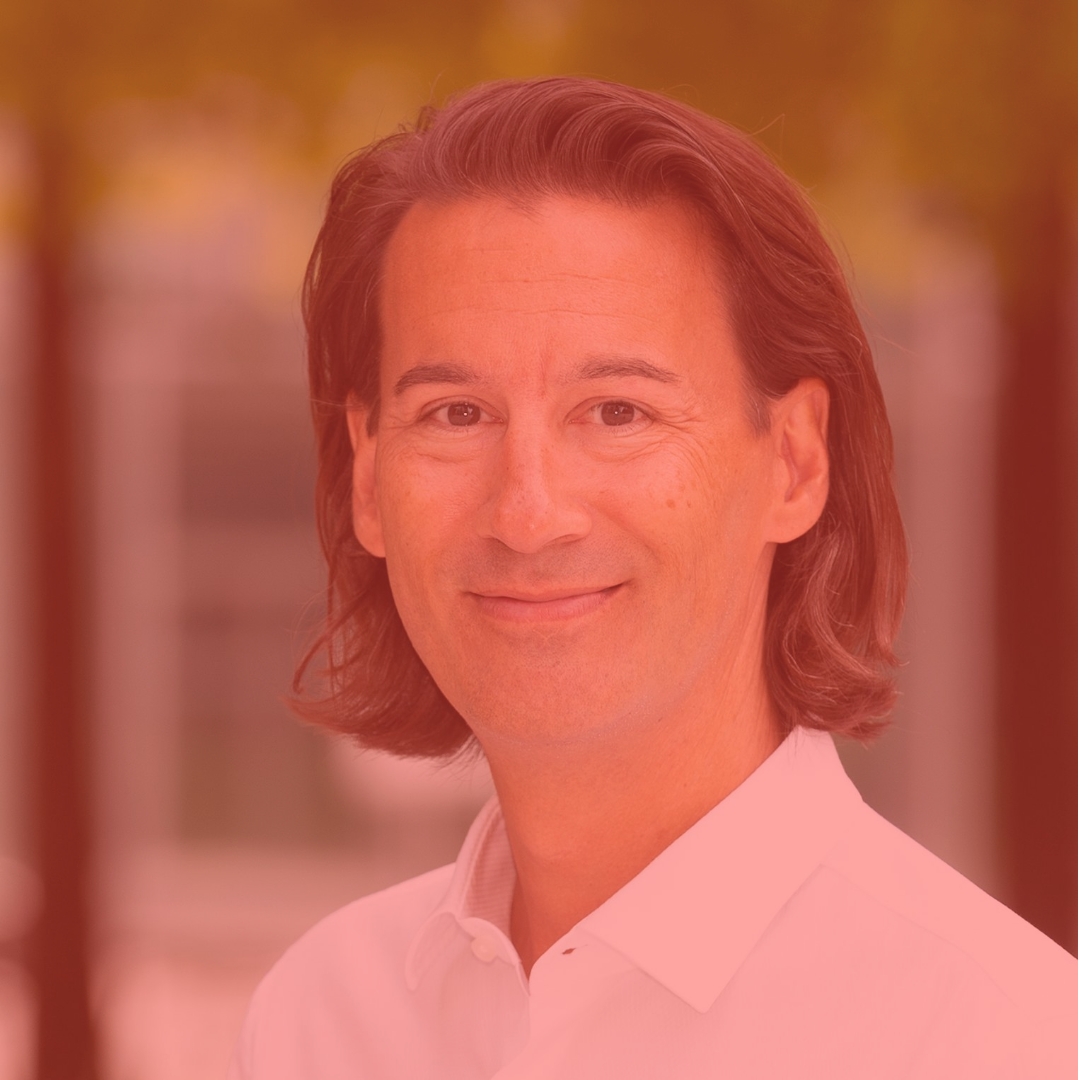
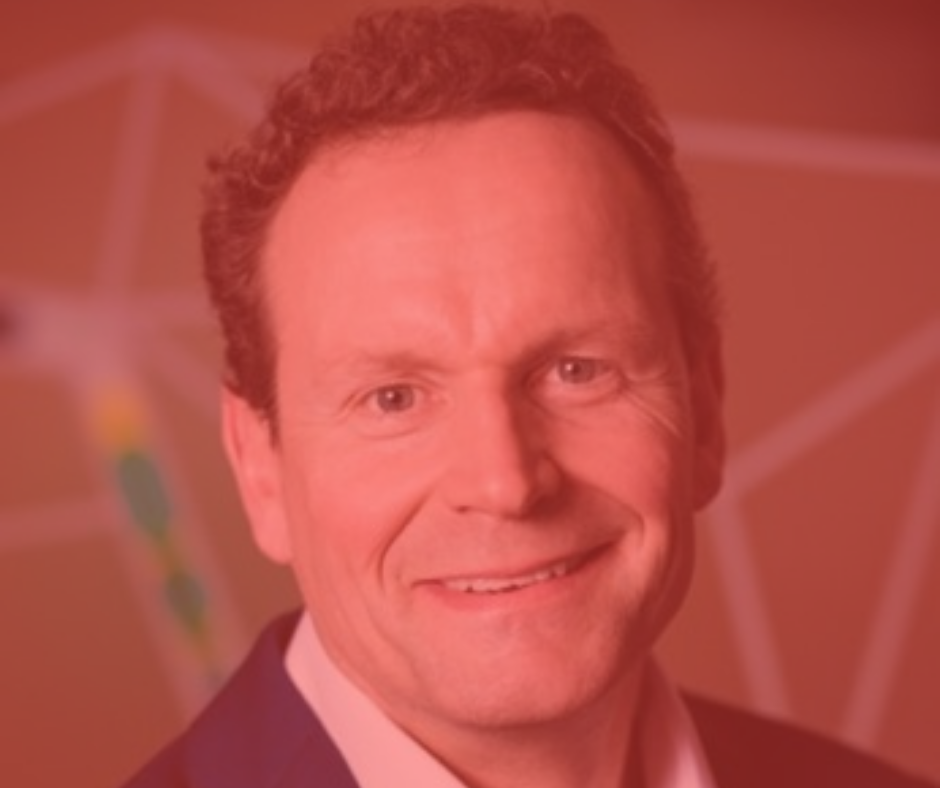
As an entrepreneur, there is a lot that is coming your way: While you’re developing your product and setting up your sales & marketing plan you also need to make sure you have the funds to execute your strategy and build a sustainable business. In this session, we will explore the different fundraising strategies (equity and non-equity) for start-ups.
We will go over pros & cons of different potential elements of the funding mix, take some time to dive deeper into the fundraising process and share some tips & tricks on how to prepare a solid story towards investors.
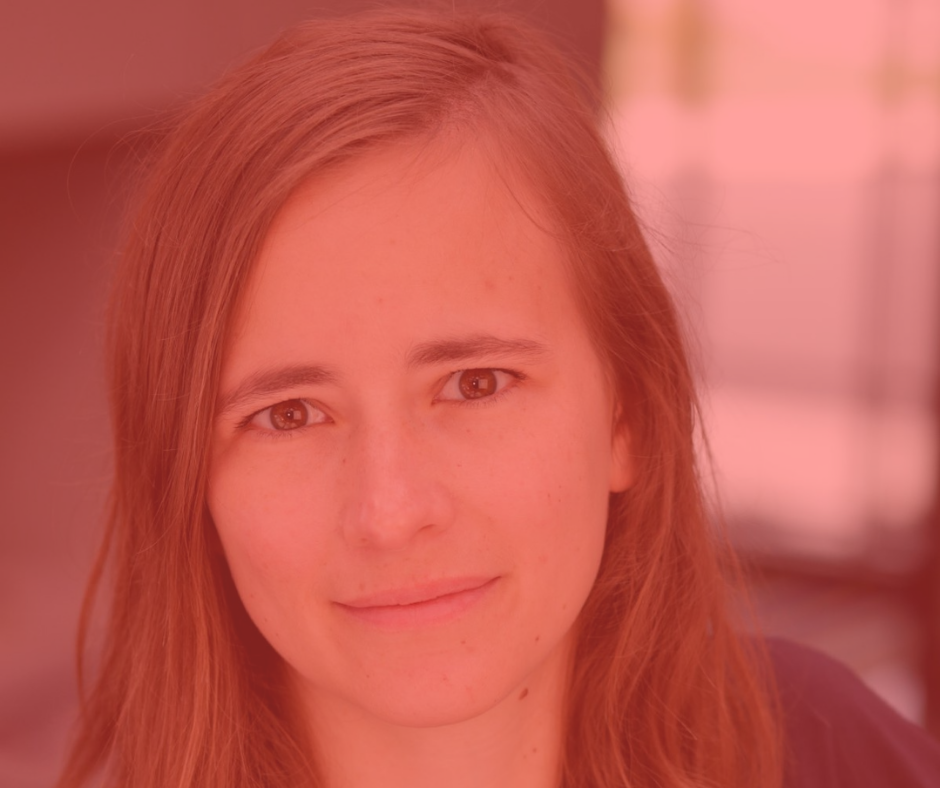
The recent advances in Information and Communication Technologies (ICTs) enabled a growing amount of people worldwide to remotely interact at affordable costs, embracing the possibility to join in complex human activities like neurorehabilitation. During the last decades telemedicine tools have been implemented, which have proven to be a solution for continuity of care in patients at risk of isolation (e.g. people living in remote areas worldwide) and in several clinical conditions (e.g. immunocompromised individuals) showing good adherence and also a positive impact in terms of efficacy in different areas of intervention. Additionally, telerehabilitation can be adapted to multiple clinical conditions and allows individualization of treatment to suit the needs of the patient and the pathology.
The health pandemic caused by SARS-CoV-2 (COVID-19) has limited the access of a large number of patients with acquired brain damage to neurorehabilitation programs [1]. The activities of the rehabilitative team were limited to those strictly necessary: the out-patients’ treatments or those delivered at home by therapists were suspended ante most of in-patients were confined to patient’s room. Noteworthy, beyond physical distancing measures, also changes in healthcare services access regulation are negatively affecting the access to rehabilitative services during the current pandemic [2].
Ensuring the continuity of cure, an adequate treatment intensity and repetition over time are major challenges in neurorehabilitation. Telerehabilitation can potentially enable continuum of care in situations of physical distancing, so it could be an effective alternative to physical intervention and mitigate some negative effects caused by the pandemic. As far as neurorehabilitation is concerned, most of the programmes developed have focused on specific aspects, especially motor aspects such as balance or upper limb, but not on a multi-specialist approach or within a more global framework. Moreover, most of these studies have used selected samples with restricted inclusion criteria (excluding cognitive problems, language, major dependencies…).
The objective of this study was to determine the effectiveness, adherence and usability of a teleneurorehabilitation tool aimed at providing patients with acquired brain injury with clinical assistance during the pandemic.
Methods
All patients older than 18 years old who participated in a face-to-face neurorehabilitation program at the time of confinement were candidates to participate in a teleneurorehabilitation program. An individual intervention was planned for all the participants who accepted to participate in the teleneurorehabilitation program to replicate their face-to-face program, reproducing the contents, duration and frequency of the sessions, as well as their previously assigned therapists. This planning was reviewed weekly. The effectiveness of the program was determined from the change in functional independence, determined with the extended version of the Barthel Index, once the face-to-face activity was resumed. The adherence to the program was assessed by the responsible therapist using a 10-point Likert scale. The usability of the teleneurorehabilitation tool was determined by the participants using an “ad-hoc” questionnaire.
Conclusions
The teleneurorehabilitation intervention was effective at improving the independence of patients with acquired brain injury, and promoted high adherence and usability. These data could be seen as an opportunity to rethink current neurorehabilitative routines, envisioning mixed procedures in which face-to-face sessions are integrated and combined with telerehabilitation.
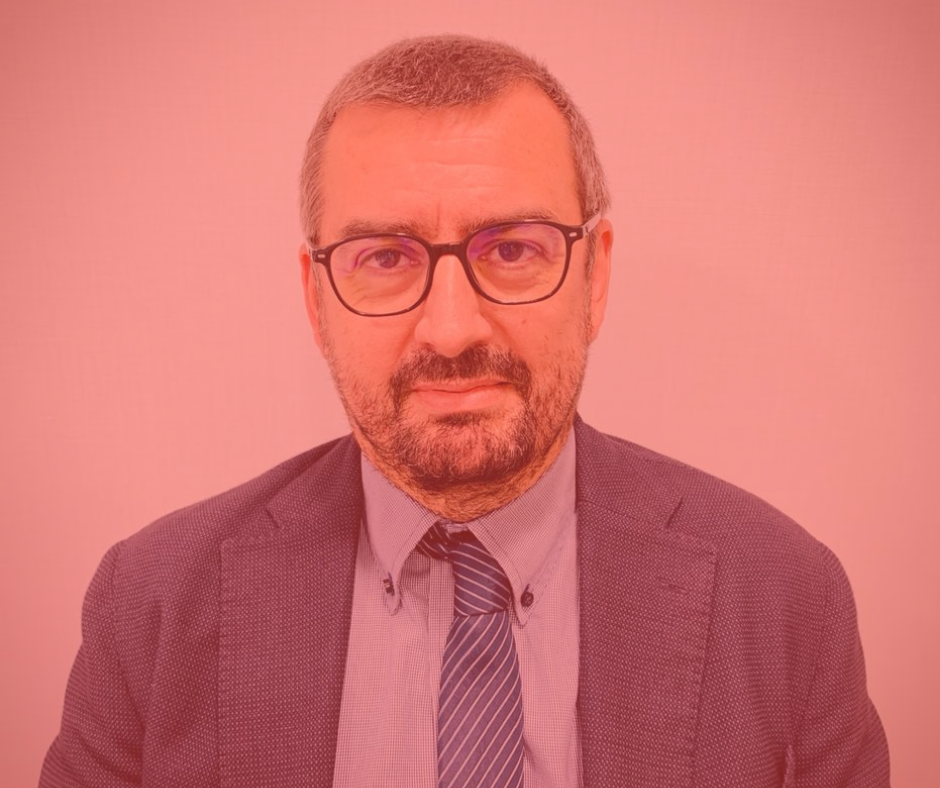
The neurotech market as part of the neuroenhancement trend is rapidly growing and not shy of making big promises: consumer products for home use to boost attention, mood or memory. Gaining and maintaining the trust of consumers is paramount to succeeding in the neurotech market. However, in the scientific disciplines that form the foundation of these products – including Psychology, Neuroscience and Cognitive Science – concerns about the independent replication of research findings are acute. There is currently an evidence gap for both clinical and consumer product development – and filling this gap with trustworthy data requires robust research. Translational efforts in industry can therefore greatly benefit from robust and transparent research practices. Further, the call for responsible innovation and transparent R&D documentation is echoed by recent international policy updates of the European Medical Device Regulation and the U.S. Food and Drug Administration (FDA). Open science research practices seem to offer perfectly suited solutions to address these needs and reconcile innovation with robustness. Yet, their use is currently largely confined to academic communities. How can we close this knowledge gap efficiently and expedite the adoption of more robust research in the consumer market? We aim to engage with key stakeholders in the development of new neurotechnologies through:
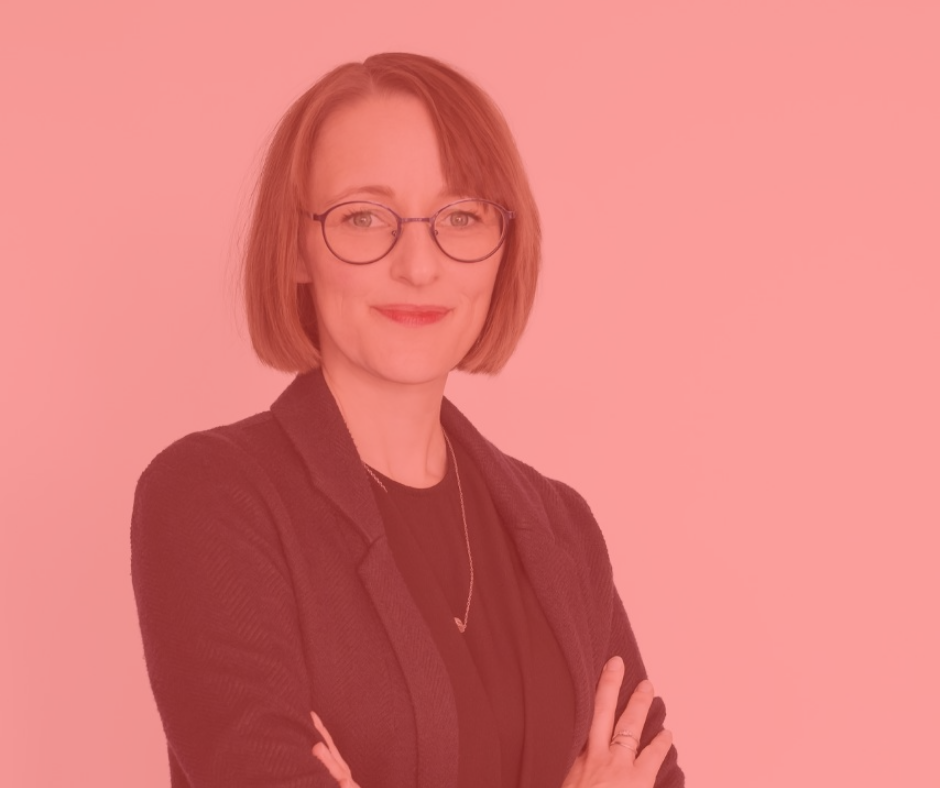
Theoretical neuroscience suggests that consciousness depends on the ability of neural elements to engage in complex activity patterns that are, at once, distributed within a system of interacting cortical areas (integrated) and differentiated in space and time (information-rich) (i.e. brain complexity). Guided by this principle, we have been developing and testing empirical method to assess brain complexity based on a combination of transcranial magnetic stimulation (TMS) and electroencephalography (EEG). Overall, the estimation of brain complexity provides a reliable measuring scale along the unconsciousness/consciousness spectrum and allows a robust assessment of unresponsive individuals (such as locked-in, minimally conscious and vegetative state patients) whose level of consciousness cannot be assessed behaviorally. We are currently collaborating with a company (Nexstim, Finland) and other international partners to transform this strategy in a standardized clinical tool.
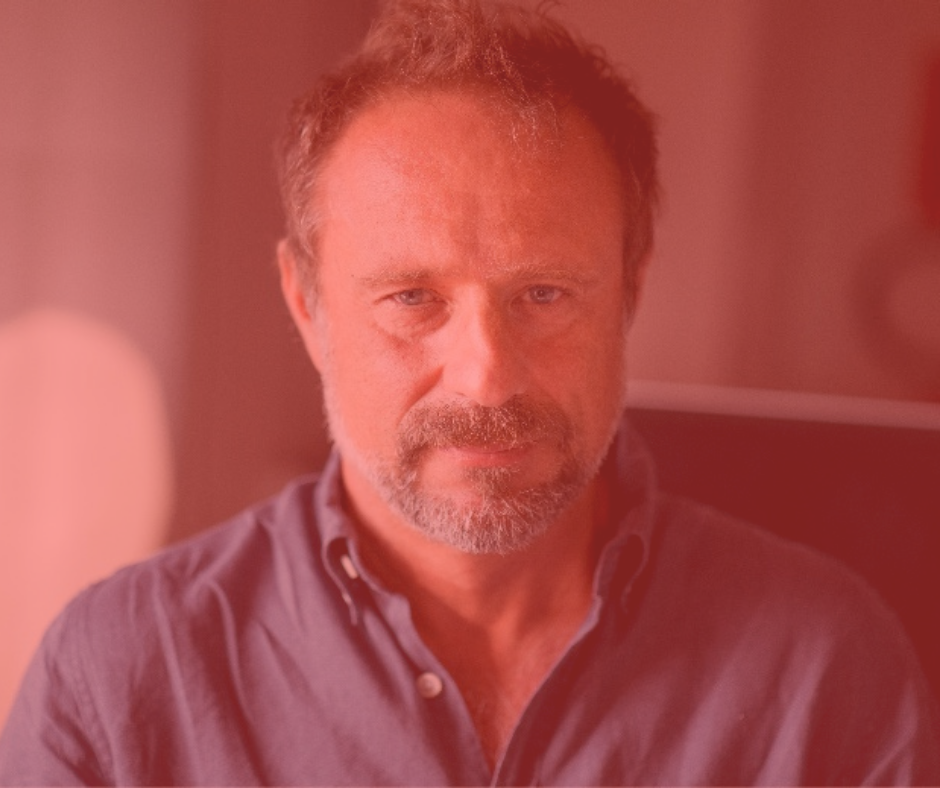
Our objective is a drug correcting cognitive deficits in Alzheimer’s disease (AD). Our strategy is to use Down syndrome (DS) as a ‘back door’ to enter the AD therapeutic field. Cognitive deficits in AD and in DS can indeed be attributed to an excessive production/activity of the DYRK1A protein kinase (gene located on chromosome 21). Consequently, genetic and pharmacological inhibition of DYRK1A correct cognitive deficits in various animal models of AD and DS. These results have encouraged us to screen for, develop and optimize pharmacological inhibitors of DYRK1A for over 15 years. We discovered that Leucettamine B, a natural product extracted from the marine sponge Leucetta microraphis, inhibits DYRK1A with relatively good selectively. Inspired by this initial hit, we first synthesized, optimized and extensively characterized >500 analogues, the Leucettines. Improving the pharmacological properties of these compounds led us to Leucettinibs, a second-generation family of DYRK1A inhibitors (0.5-20 nM IC50, orally available, >560 compounds synthesized, 4 patents filed). Leucettines (ip) and Leucettinibs (p.o.) correct spatial and learning memory deficits observed in various animal models of AD and DS. This strong proof of concept (and data from other groups) supports the idea that pharmacological inhibition of DYRK1A might correct memory deficits in AD and DS patients. Our final clinical drug candidate, Leucettinib-21, was selected following a stringent GO/NO GO decision tree based on multiple in vitro and in vivo safety, pharmacology (ADMET) and IP parameters, strengthening our chance to develop a solid therapeutic drug candidate for the correction of cognitive deficits. The synthesis of a 1.5 kg, GLP batch of Leucettinib-21 is being carried for the regulatory preclinical studies which will start in January 2022.
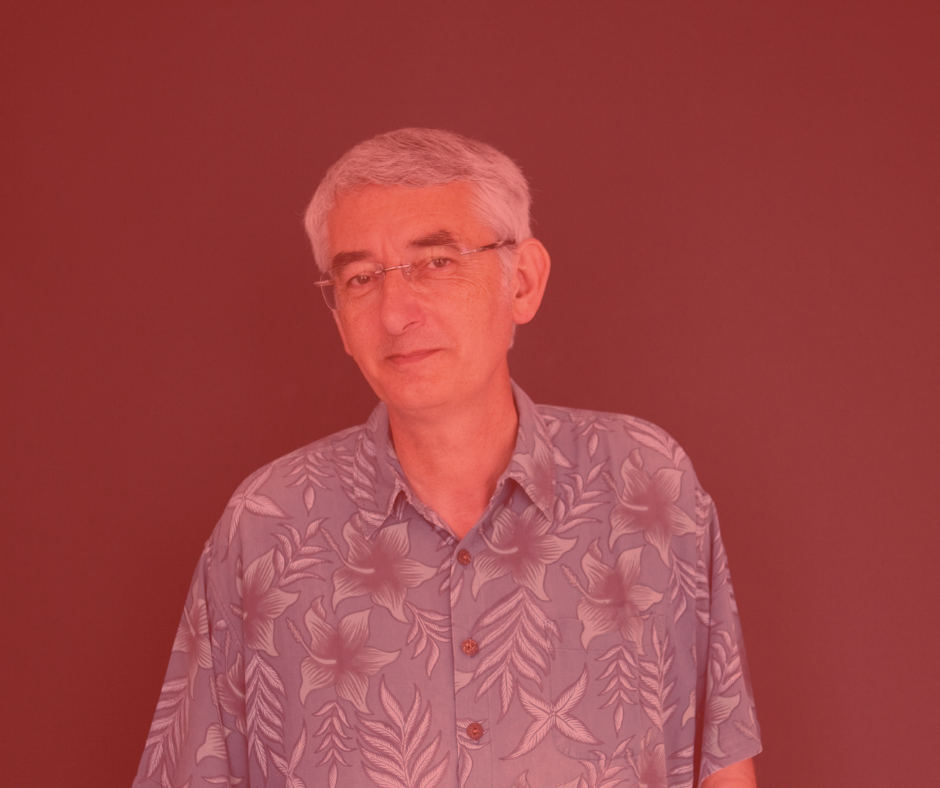
Over the past decade we have demonstrated that the fusion of a patient’s own brain imaging data with computational dynamic models allows building personalized virtual brain models with diagnostic and prognostic performance. Our hybrid approach fuses data-driven with mechanistic modeling techniques and has been successfully applied in aging and stroke research and to clinical applications in epilepsy. Here we illustrate the workflow called Virtual Epileptic Patient (VEP) along the example of drug resistant epilepsy, where the application of machine learning and AI allows the estimation of the epileptogenic zone. A large multisite randomized clinical trial is testing VEP technology in epilepsy surgery patients. The workflow of end-to-end modeling is an integral part of the European neuroinformatics platform EBRAINS and enables neuroscientists worldwide to build and estimate personalized virtual brains. Virtual Brain Technologies (VB-Tech) has recently been created as a spin-off from AMU to exploit virtual brain technology with the mission of commercializing the VEP medical device as a trailblazer of TVB technology and the long-term vision of transversal extension to other diseases including Parkinson, multiple sclerosis, and Alzheimer. VB-Tech will address the market access challenge, for this technology and its future developments, transitioning from an academic prototype to an industrialized and certified medical device, allowing for the patients to benefit from it. VB-Tech will also be committed to adding a strong focus on medical education on top of the commercial objectives, placing the clinician in the center of the project.
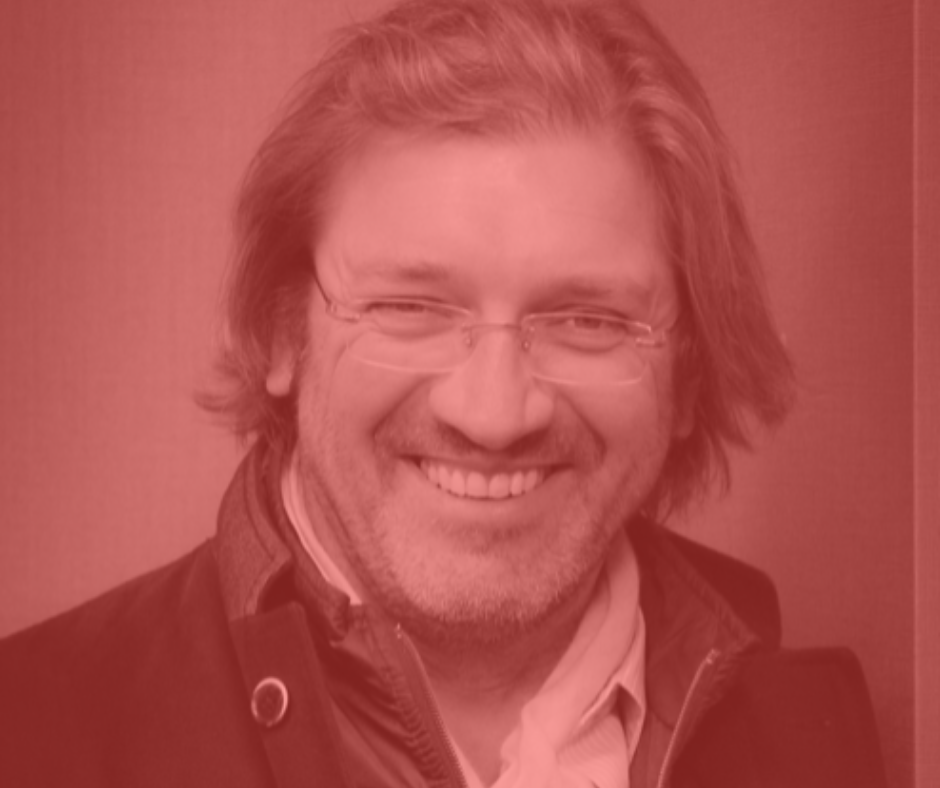
What it takes to make Brain Pacemakers as routine as heart pacemakers and shifting the paradigm for Deep Brain Stimulation surgeries?
Similar to heart pacemakers, DBS is the gold standard for late-stage Parkinson’s treatment with world-wide regulatory approval, but adoption remains limited to ~5% due to patient access, procedure complexity, and cost, delaying and depriving eligible candidates. Diseases of cerebrovascular origins such as refractory hypertension, stroke, Alzheimer’s and vascular dementia rank alongside cancer as one of the greatest healthcare challenges faced by humanity, affecting one in three in later life.
Bioinduction has developed the first miniaturized precisely targeted, adaptive/responsive AI enabled, ‘brain-pacemaker’ called Picostim™, designed to be implanted directly into the skull and making it cosmetically invisible. Being a third of the size of conventional devices, it eliminates the need for tunneling extension wires (that need revision surgeries due to fractures) through neck tissue to a chest incision for the larger conventional batteries.
The elegant streamlined single-stage intra-operative skull integrated implantation workflow enables a safer, simpler, less traumatic, and less painful single-stage surgery, in less than half the time of conventional multi-stage, multi-day intervention, as well as doubling surgical productivity bringing cost savings for the health system, with lower life-cycle cost compared to conventional technologies. The procedure innovation harnesses convergence of state-of-the-art precise image guided planning and navigation enabling improved patient comfort with asleep surgery, an integrated surgical robot assistance, together delivering the future of brain pacemaker interventions.
Smart Picostim™ cranialized DBS platform innovation introduces a patient-centric brain pacemaker innovation together with an elegant single-stage procedure solution that enables paradigm change and introduces the future of brain pacemaker implantation to treat large unmet needs in chronic brain disorders via improved patient experience, increasing patient access, and improving overall outcomes for all the stakeholders.
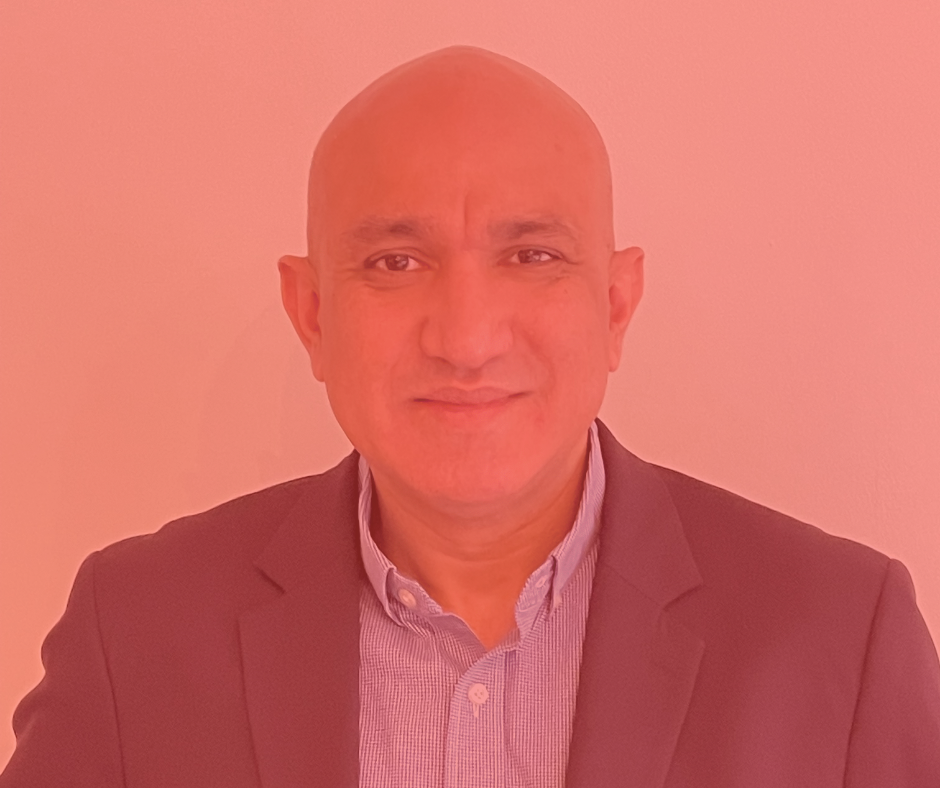
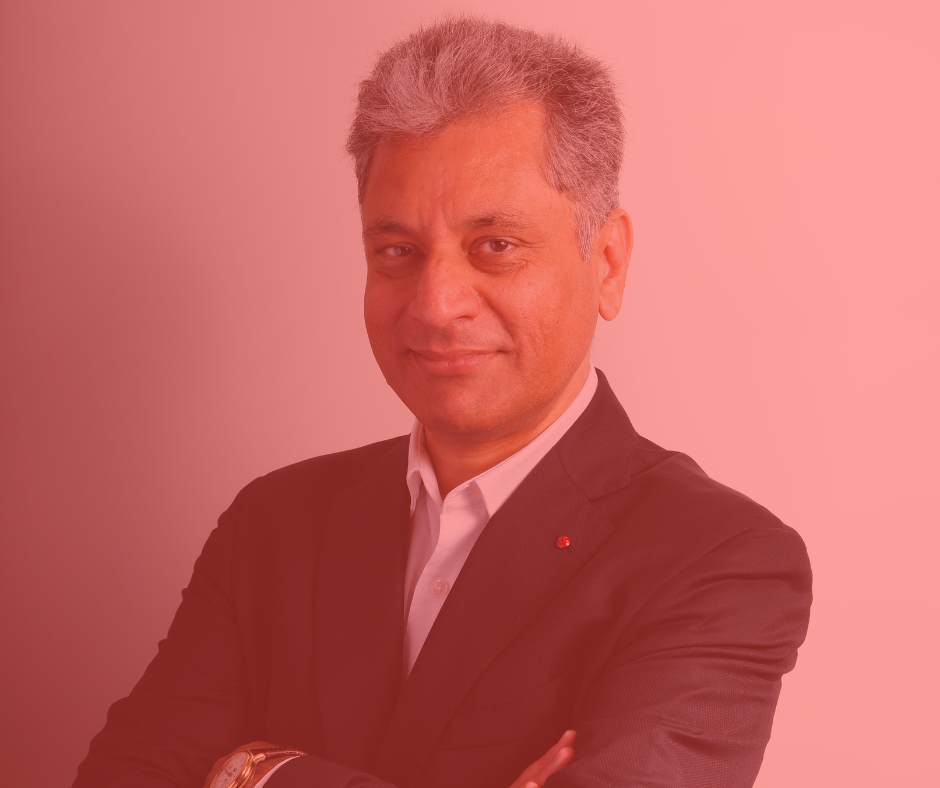
Prior to the COVID-19 pandemic, the European Academy of Neurology had already decided to launch a taskforce on Gender and Diversity in Neurology, with the overall mission to increase awareness and improve knowledge about sex, gender, ethnic and racial differences and disparities in neurological disorders. Indeed, there are several biological, genetic, and epigenetic differences between men and women that can impact epidemiology, clinical manifestation, and treatment of many neurological disorders. Global burden ofneurological diseases affects much more women than men at any age.
Risk factors of stroke differs in women compare to men. Motor and non-motor fluctuations in Parkinson’s disease are not the same between men and women. Precision medicine in neurology needs neurologists to be aware of these differences to improve care and outcome of neurological patients. This session will provide new insights about this new expanding field of medicine applied to neurology.
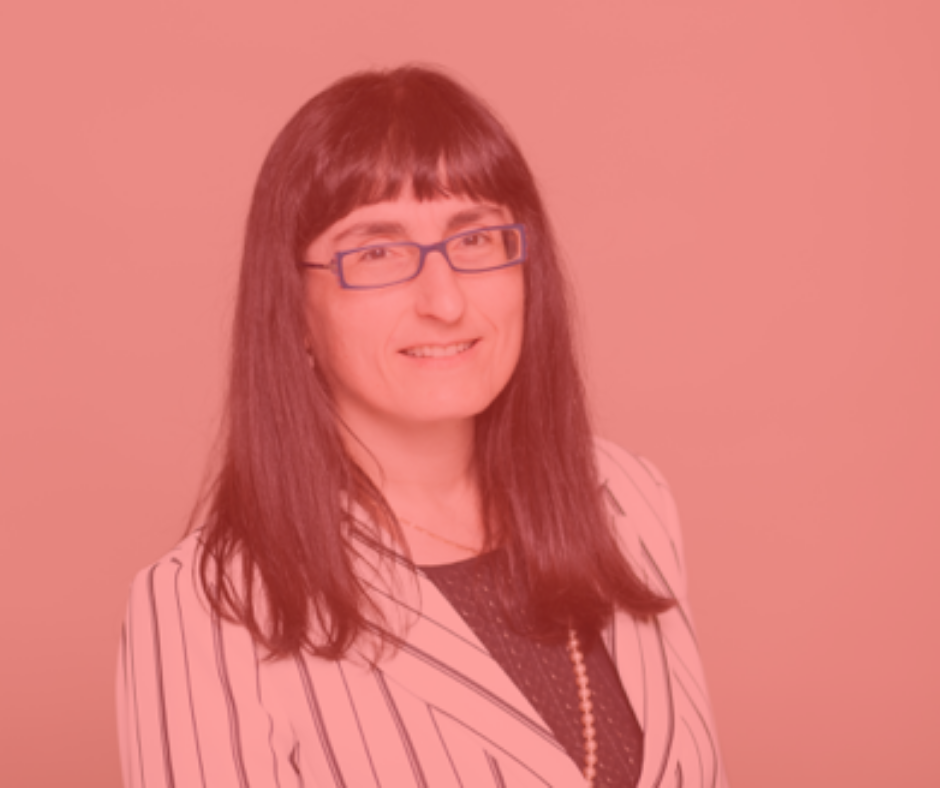
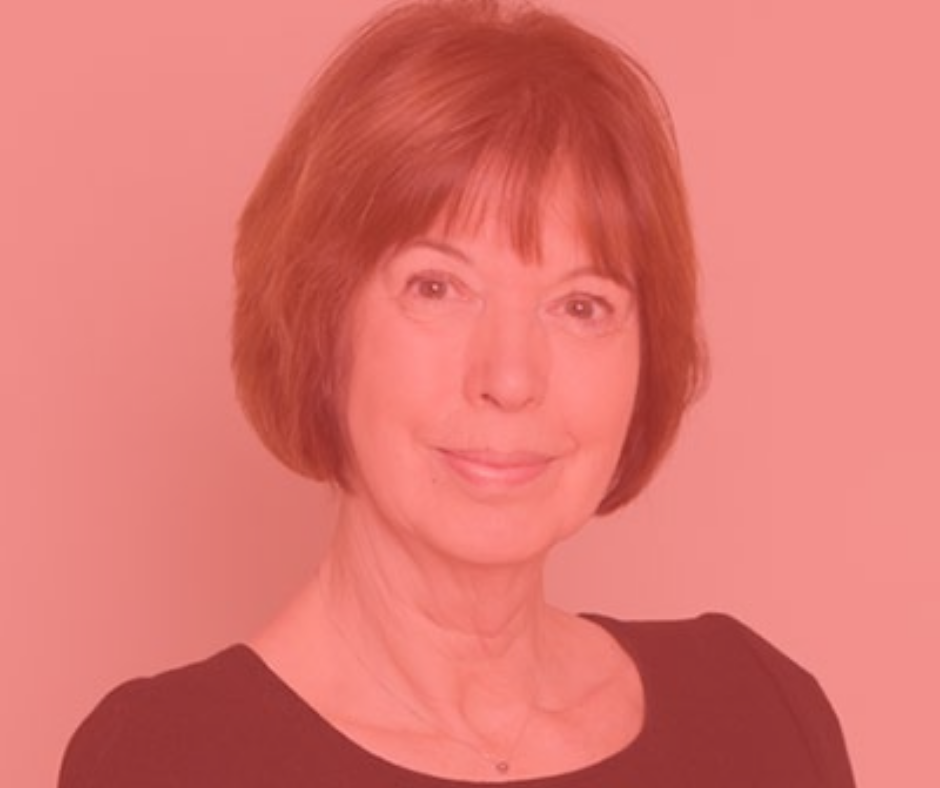

The workplace environment has a great impact on workers’ mental health and well-being, even more if considering the time people spend at work. A good psychosocial work environment can be very beneficial for workers’ mental health, whilst a poor one can have significant negative effects, including experiencing work-related stress, burnout, problems at home,drug and alcohol abuse. The negative effects impact the organizations too, that experience poor overall business performance, increased absenteeism, presenteeism and higher accident and injury rates.
This is the second most frequently reported work-related health problem in Europe, after musculoskeletal disorders.In the context of Industry 4.0, where robots, sensors and automated work are pervasive, conditions are potentially more harmful for workers’ mental health, as they could be exposed either to monotonous and alienating tasks or to very challenging tasks. The progressive adoption of collaborative robots (cobots) in manufacturing SMEs opens the way to a radical organizational and technological transformation, where by design the whole workplace environment could contribute to promote workers’ mental health.
The aim of our session is to show how an enhanced multi-stakeholder engagement takes into account manifold facets affecting mental health and intervenes on technological, relational and organizational aspects of the cobot-based work, fostering investment in research and innovation and facilitating SME business development.The objective is to design workplaces where level of challenge and difficulty of job tasks match with the workers’ abilities, in order to support their motivation and engagement by interacting with cobots in a flexible and personalized way. This will facilitate workers’ positive attitude, promoting good mental health and preventing negative experiences of anxiety or boredom and apathy that eventually lead to mental illnesses. Expected results are the definition of guidelines for the design of a “mental health friendly” manufacturing workplace and a new generation of cobots, the Mindbots.
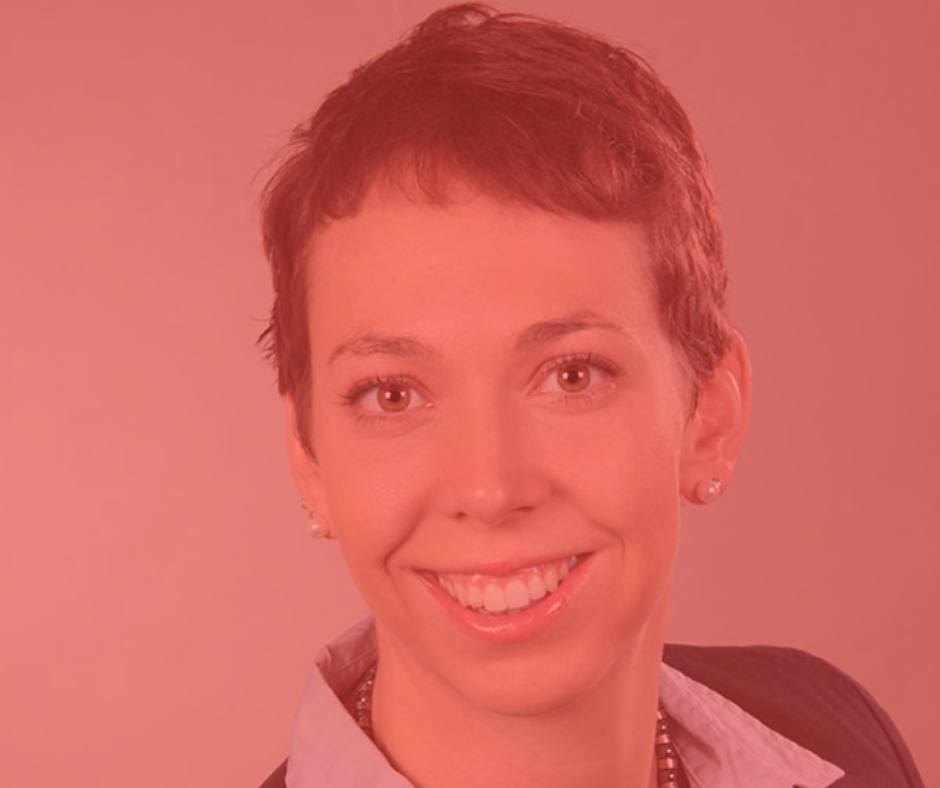
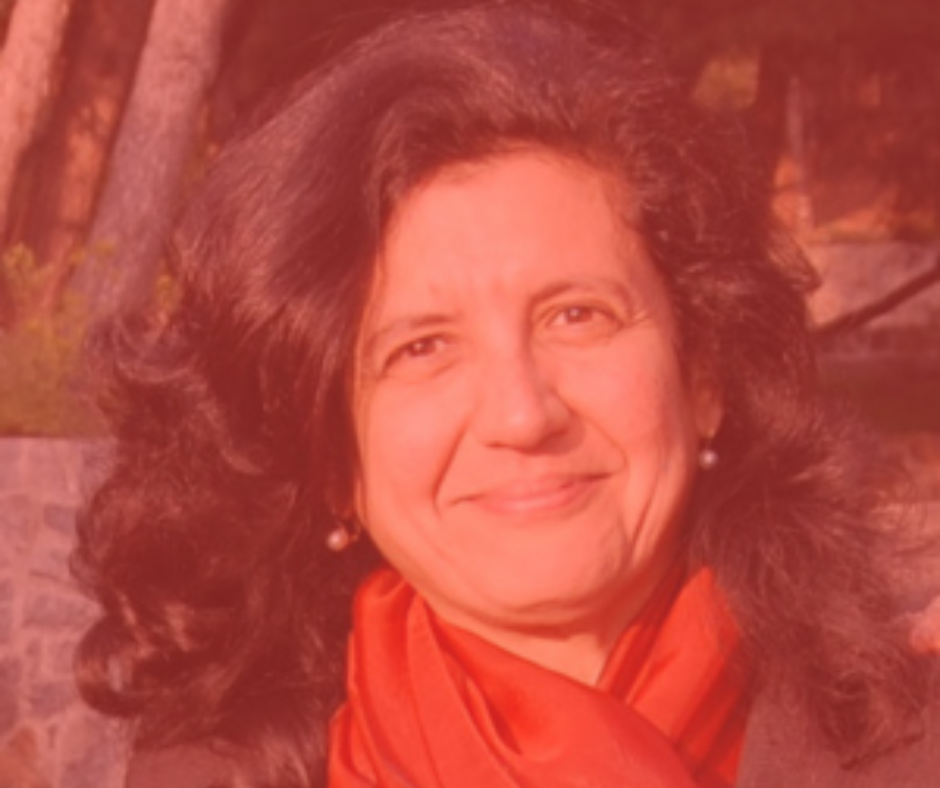
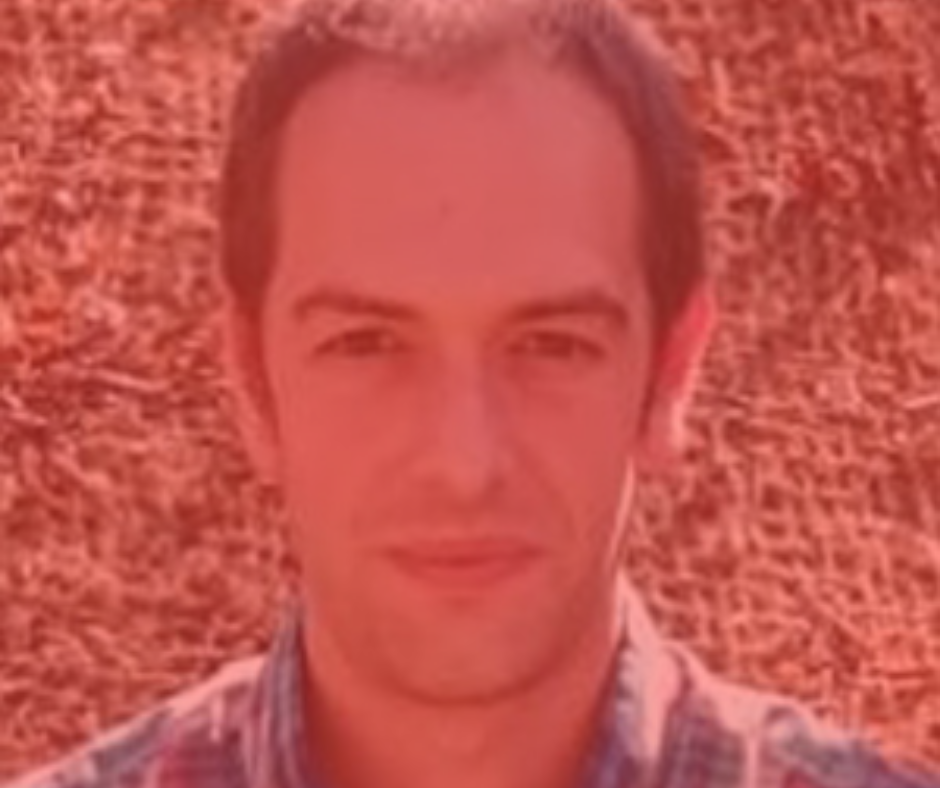
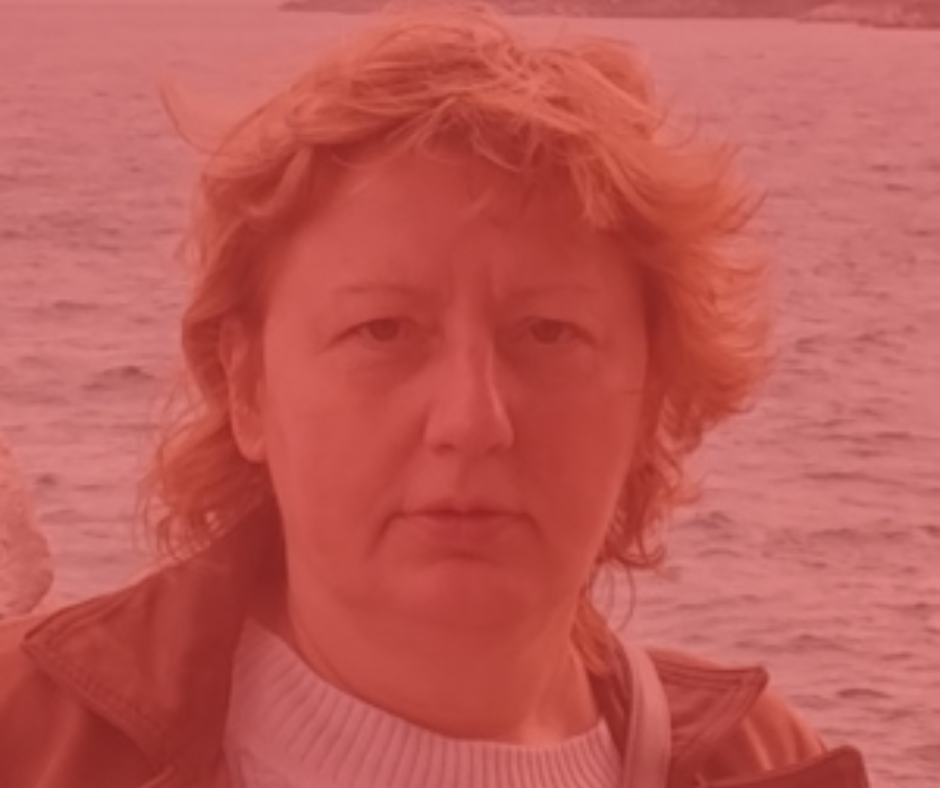
A social and innovative digital business leader with a critical and empathetic mindset, a lot of sense for responsibility and humor. And a touch of non-conformism. Loves the journey towards truly disruptive experiences by smart innovation and agility.
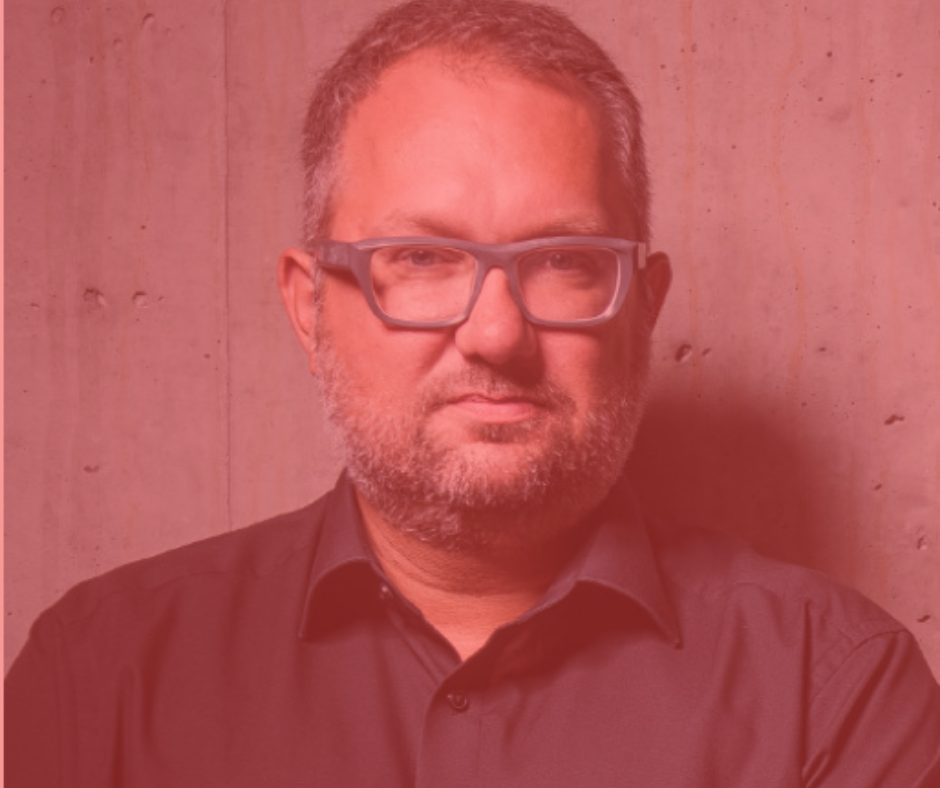
Innovation is all around, also in Healthcare. In order to tackle the challenges, we’ll need an entrepreneurial mindset. What is that mindset? And why do startups sometimes succeed where others fail? In this session we’ll lift a tip of the veil on why startups matter and how organizations – both hospitals and corporates – can benefit from collaborating with them.
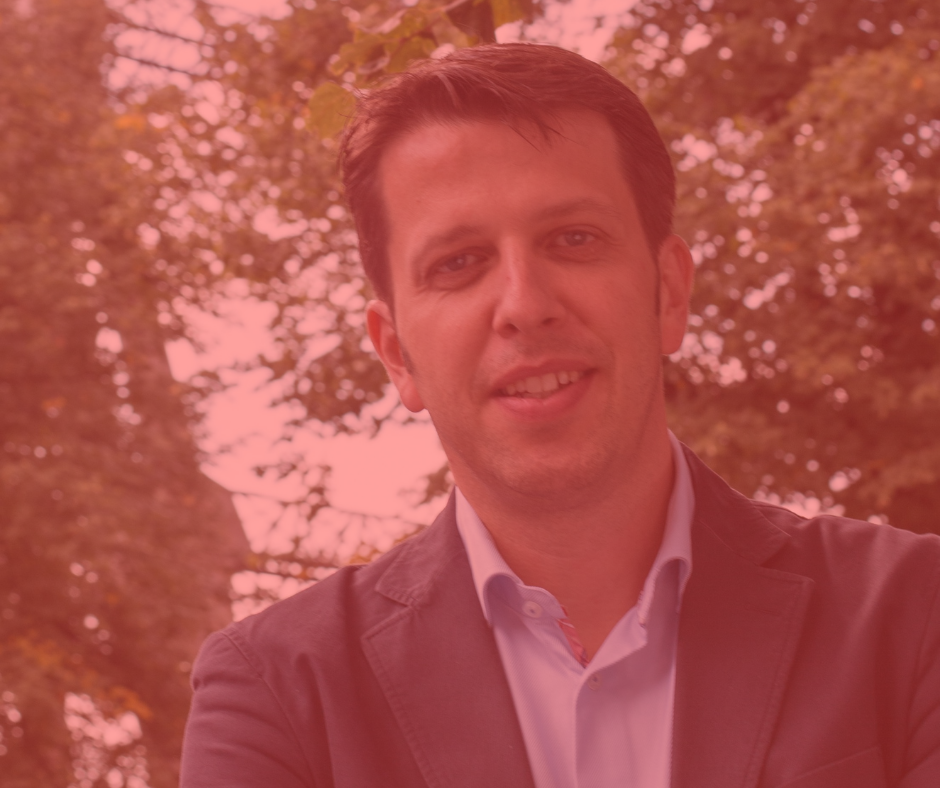
It is estimated that one billion people worldwide live with migraine. The disease is three times more frequent in women, independent of race, culture and socioeconomic status. Prof. Edvinsson will describe his 35-year journey with calcitonin gene-related peptide (CGRP) from discovery to new medication. At the end of the Brain Talk, some recent thoughts on how hormone may be involved in the regulation of CGRP pathway will be shared.

This breakout session will give an in-depth look at the current state and future developments of EEG technology for daily use. Speakers from different backgrounds will present their (consumer) wearable EEG, clinical-grade wearable EEG and implantable EEG, augmented by an overview of the wealth of possibilities daily EEG would bring to people living with a brain disorder. In the first half of the session, each speaker will present the latest development in their field in about 10 minutes. Next, the session will continue with a moderated debate on the future of daily EEG and how this can impact people with a brain disorder.

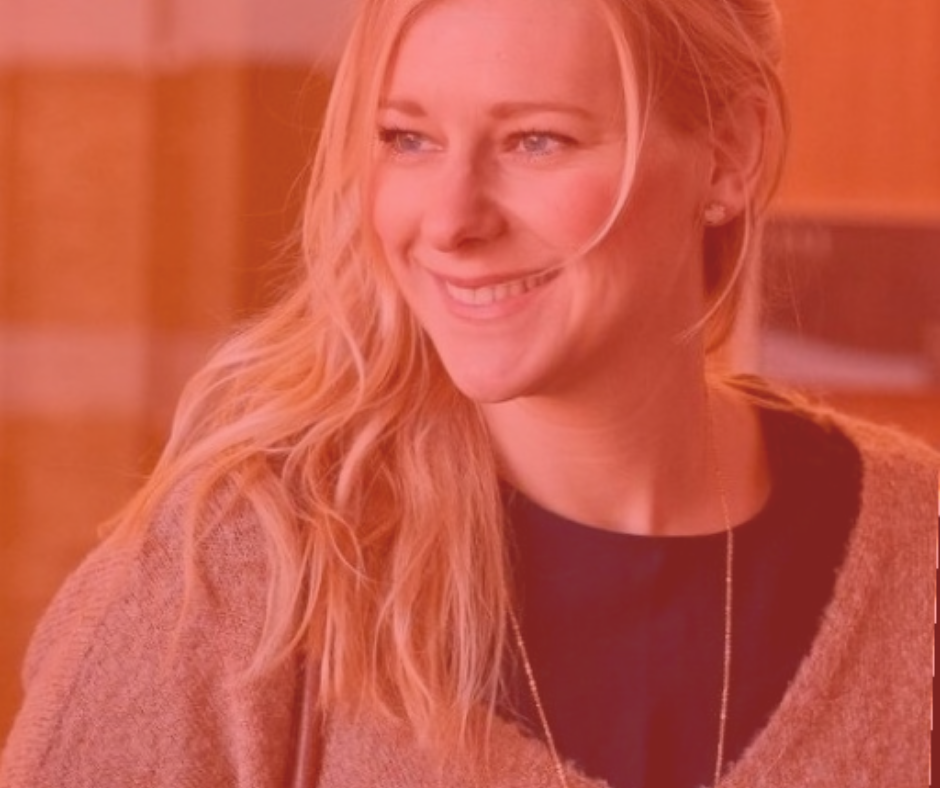


Our session will explore four components of brain capital focused policy and investment innovations.
First, Dr. Harris Eyre will introduce brain capital. Brains are indispensable drivers of human progress. Why not invest more heavily in them? Dr. Eyre will talk about efforts to place brain capital at the center of a new narrative to fuel economic and societal recovery and resilience, along with efforts from the OECD Neuroscience-inspired Policy Initiative.
Second, Erin Smith will discuss women’s brain health innovations. The COVID-19 pandemic has exacerbated global mental health and gender inequalities. To improve women’s brain capital, we must incorporate new data: namely, the perspective and experience of women. Erin will discuss how solutions that consider the experience of women are more likely to create structural change across sectors, from neuroscience and health care to racial equality, public policy, and workplace norms.
Third, Dr. Caroline Montojo will talk about opportunities for public-private partnerships to advance neuroscience within society. Major national investments are being made into neuroscience research and neurotechnology development. New tools and technologies that carry strong ethical, legal, and social implications are rapidly touching upon the public sphere. Increased attention and investment into issues at the intersection of neuroscience and society will be critical. Dr. Montojo will discuss models for partnership between the public and private sectors to strengthen neuroscience’s role within society.
Fourth, Dr. Karen Rommelfanger will explore the competitive edge of neuroethics for neurotech innovators. The world is mobilizing around the allure of unlocking the mysteries of the brain from universities to healthcare and industry start-ups. Neurotechnology is rapidly developing to be applied in wide-ranging contexts. These advances in neuroscience continue to surface thorny ethical issues further complicated by diverse cultural assumptions about brain and mind. In this talk, Dr. Rommelfanger will discuss how neuroethics can be a creative tool to advance and accelerate the most societally impactful global neuroscience innovation.
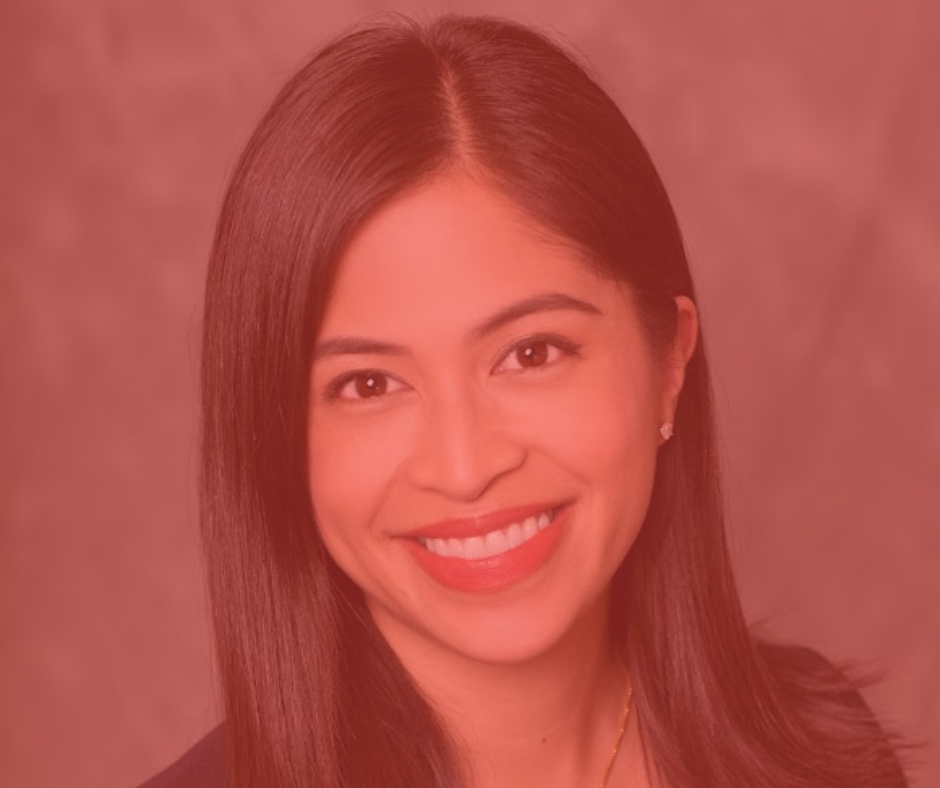
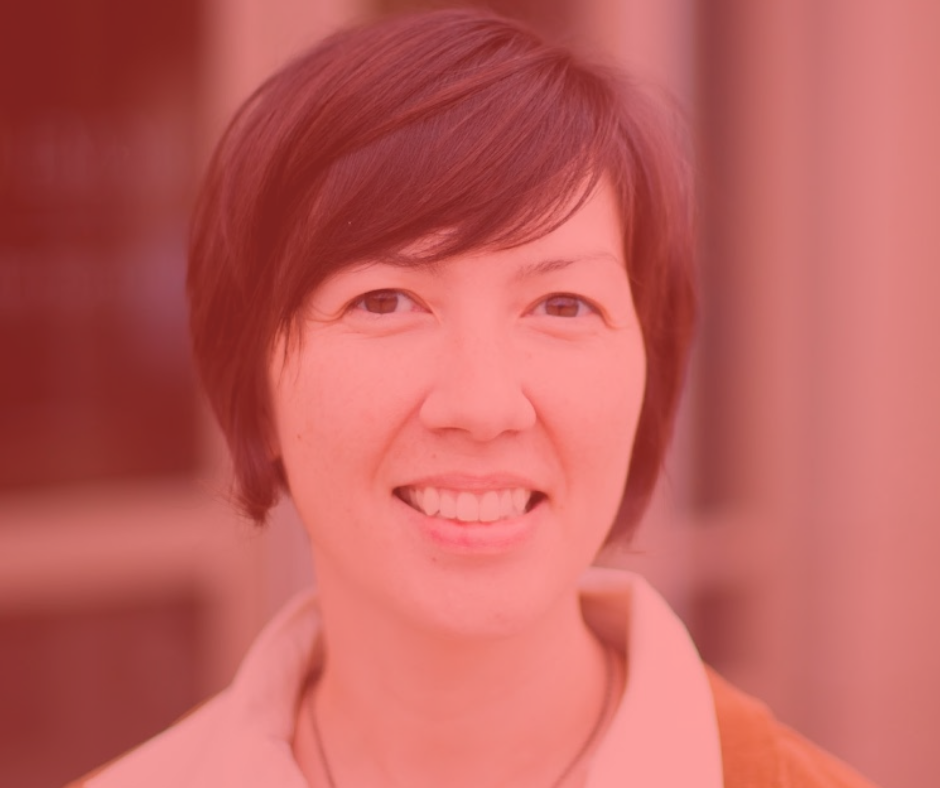
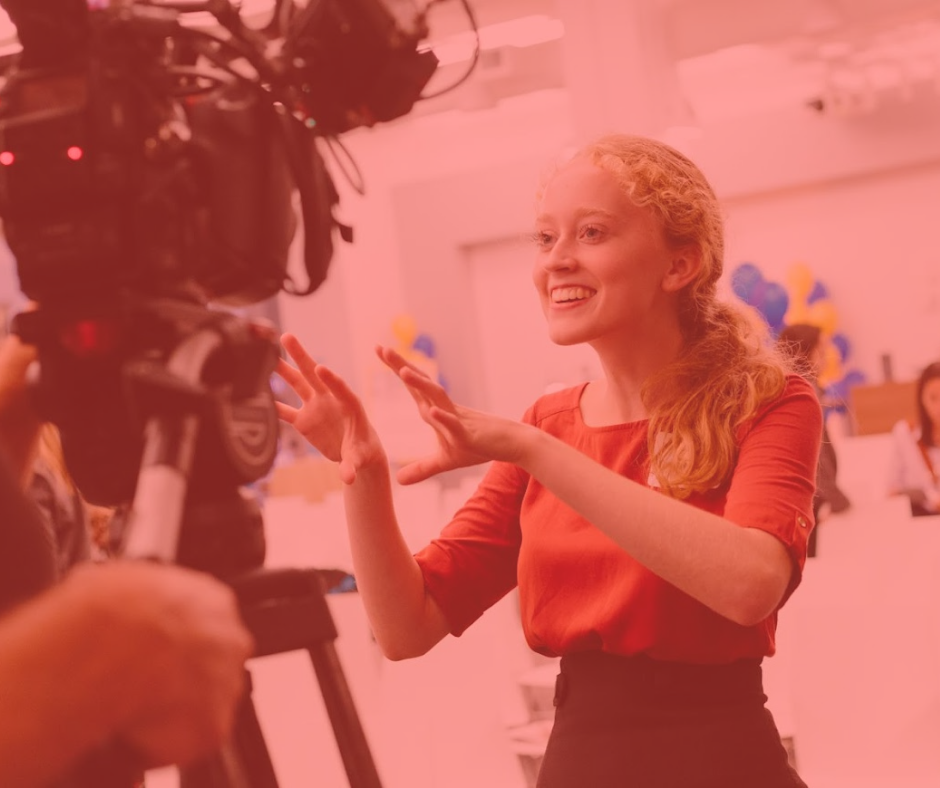
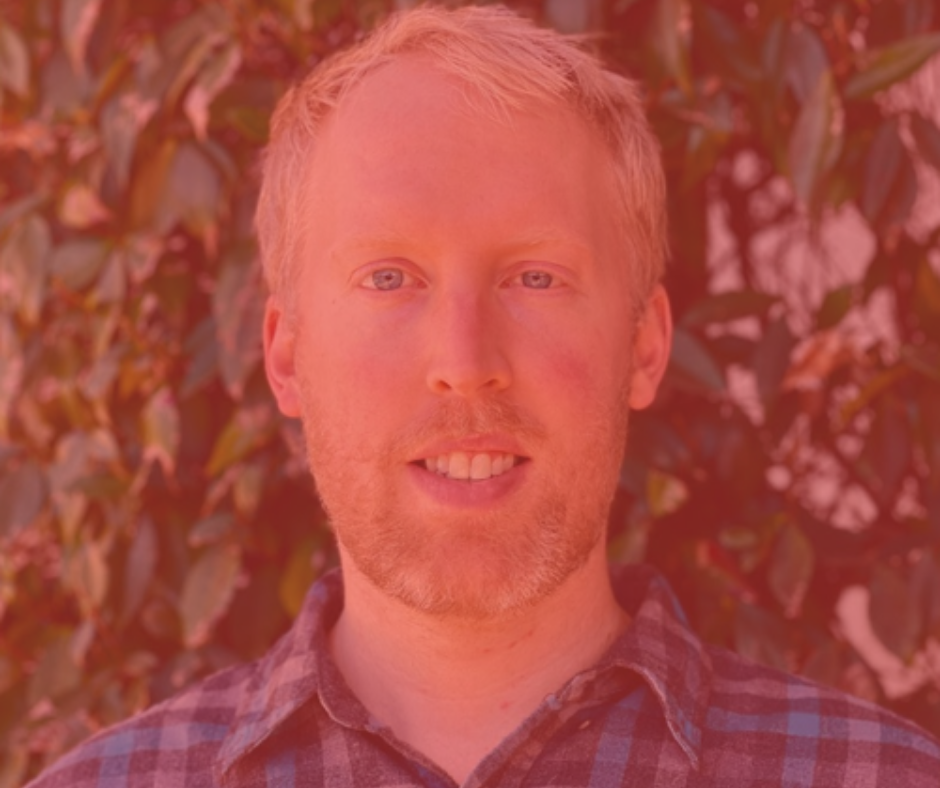
Migraine is affected by 1 billion people worldside, 3 times more frequent in females, independent on race , culture and socioeconomic status. I wiil here describe my journey with CGRP from discovery to new medication. truely a 35 y period. At the end some recent thoughts on how hormones may be involved in the regulation of CGRP pathway.
